Uncategorized
40 famous persuasive speeches you need to hear.

Written by Kai Xin Koh
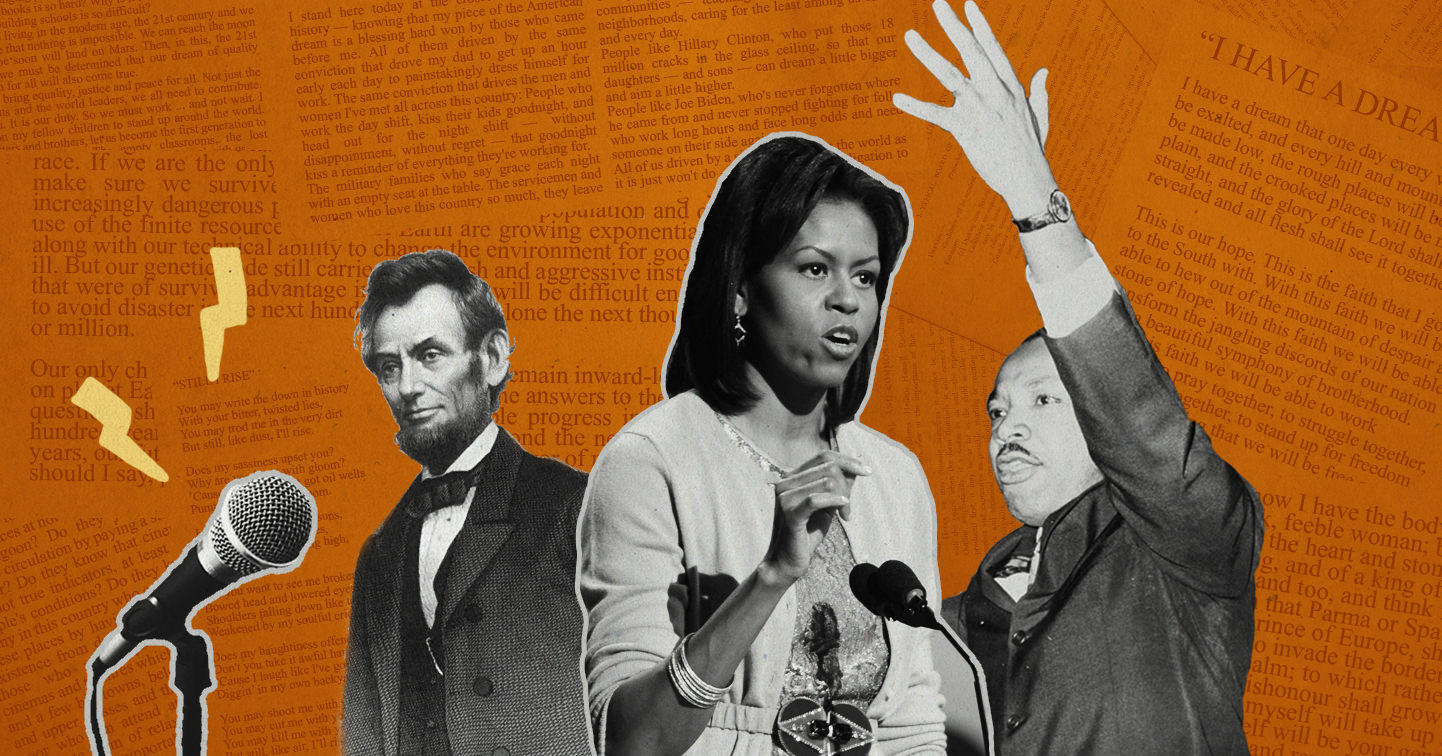
Across eras of calamity and peace in our world’s history, a great many leaders, writers, politicians, theorists, scientists, activists and other revolutionaries have unveiled powerful rousing speeches in their bids for change. In reviewing the plethora of orators across tides of social, political and economic change, we found some truly rousing speeches that brought the world to their feet or to a startling, necessary halt. We’ve chosen 40 of the most impactful speeches we managed to find from agents of change all over the world – a diversity of political campaigns, genders, positionalities and periods of history. You’re sure to find at least a few speeches in this list which will capture you with the sheer power of their words and meaning!
1. I have a dream by MLK
“I have a dream that one day down in Alabama, with its vicious racists, with its governor having his lips dripping with the words of interposition and nullification – one day right there in Alabama little black boys and black girls will be able to join hands with little white boys and white girls as sisters and brothers. I have a dream today. I have a dream that one day every valley shall be exalted, and every hill and mountain shall be made low, the rough places will be made plain, and the crooked places will be made straight, and the glory of the Lord shall be revealed and all flesh shall see it together. This is our hope. This is the faith that I go back to the South with. With this faith we will be able to hew out of the mountain of despair a stone of hope. With this faith we will be able to transform the jangling discords of our nation into a beautiful symphony of brotherhood. With this faith we will be able to work together, to pray together, to struggle together, to go to jail together, to stand up for freedom together, knowing that we will be free one day. This will be the day, this will be the day when all of God’s children will be able to sing with new meaning “My country ’tis of thee, sweet land of liberty, of thee I sing. Land where my father’s died, land of the Pilgrim’s pride, from every mountainside, let freedom ring!”
Unsurprisingly, Martin Luther King’s speech comes up top as the most inspiring speech of all time, especially given the harrowing conditions of African Americans in America at the time. In the post-abolition era when slavery was outlawed constitutionally, African Americans experienced an intense period of backlash from white supremacists who supported slavery where various institutional means were sought to subordinate African American people to positions similar to that of the slavery era. This later came to be known as the times of Jim Crow and segregation, which Martin Luther King powerfully voiced his vision for a day when racial discrimination would be a mere figment, where equality would reign.
2. Tilbury Speech by Queen Elizabeth I
“My loving people, We have been persuaded by some that are careful of our safety, to take heed how we commit our selves to armed multitudes, for fear of treachery; but I assure you I do not desire to live to distrust my faithful and loving people. Let tyrants fear. I have always so behaved myself that, under God, I have placed my chiefest strength and safeguard in the loyal hearts and good-will of my subjects; and therefore I am come amongst you, as you see, at this time, not for my recreation and disport, but being resolved, in the midst and heat of the battle, to live and die amongst you all; to lay down for my God, and for my kingdom, and my people, my honour and my blood, even in the dust. I know I have the body of a weak, feeble woman; but I have the heart and stomach of a king, and of a king of England too, and think foul scorn that Parma or Spain, or any prince of Europe, should dare to invade the borders of my realm; to which rather than any dishonour shall grow by me, I myself will take up arms, I myself will be your general, judge, and rewarder of every one of your virtues in the field. I know already, for your forwardness you have deserved rewards and crowns; and We do assure you on a word of a prince, they shall be duly paid. In the mean time, my lieutenant general shall be in my stead, than whom never prince commanded a more noble or worthy subject; not doubting but by your obedience to my general, by your concord in the camp, and your valour in the field, we shall shortly have a famous victory over these enemies of my God, of my kingdom, and of my people.”
While at war with Spain, Queen Elizabeth I was most renowned for her noble speech rallying the English troops against their comparatively formidable opponent. Using brilliant rhetorical devices like metonymy, meronymy, and other potent metaphors, she voiced her deeply-held commitment as a leader to the battle against the Spanish Armada – convincing the English army to keep holding their ground and upholding the sacrifice of war for the good of their people. Eventually against all odds, she led England to victory despite their underdog status in the conflict with her confident and masterful oratory.
3. Woodrow Wilson, address to Congress (April 2, 1917)
“The world must be made safe for democracy. Its peace must be planted upon the tested foundations of political liberty. We have no selfish ends to serve. We desire no conquest, no dominion. We seek no indemnities for ourselves, no material compensation for the sacrifices we shall freely make. We are but one of the champions of the rights of mankind. We shall be satisfied when those rights have been made as secure as the faith and the freedom of nations can make them. Just because we fight without rancor and without selfish object, seeking nothing for ourselves but what we shall wish to share with all free peoples, we shall, I feel confident, conduct our operations as belligerents without passion and ourselves observe with proud punctilio the principles of right and of fair play we profess to be fighting for. … It will be all the easier for us to conduct ourselves as belligerents in a high spirit of right and fairness because we act without animus, not in enmity toward a people or with the desire to bring any injury or disadvantage upon them, but only in armed opposition to an irresponsible government which has thrown aside all considerations of humanity and of right and is running amuck. We are, let me say again, the sincere friends of the German people, and shall desire nothing so much as the early reestablishment of intimate relations of mutual advantage between us—however hard it may be for them, for the time being, to believe that this is spoken from our hearts. We have borne with their present government through all these bitter months because of that friendship—exercising a patience and forbearance which would otherwise have been impossible. We shall, happily, still have an opportunity to prove that friendship in our daily attitude and actions toward the millions of men and women of German birth and native sympathy who live among us and share our life, and we shall be proud to prove it toward all who are in fact loyal to their neighbors and to the government in the hour of test. They are, most of them, as true and loyal Americans as if they had never known any other fealty or allegiance. They will be prompt to stand with us in rebuking and restraining the few who may be of a different mind and purpose. If there should be disloyalty, it will be dealt with with a firm hand of stern repression; but, if it lifts its head at all, it will lift it only here and there and without countenance except from a lawless and malignant few. It is a distressing and oppressive duty, gentlemen of the Congress, which I have performed in thus addressing you. There are, it may be, many months of fiery trial and sacrifice ahead of us. It is a fearful thing to lead this great peaceful people into war, into the most terrible and disastrous of all wars, civilization itself seeming to be in the balance. But the right is more precious than peace, and we shall fight for the things which we have always carried nearest our hearts—for democracy, for the right of those who submit to authority to have a voice in their own governments, for the rights and liberties of small nations, for a universal dominion of right by such a concert of free peoples as shall bring peace and safety to all nations and make the world itself at last free. To such a task we can dedicate our lives and our fortunes, everything that we are and everything that we have, with the pride of those who know that the day has come when America is privileged to spend her blood and her might for the principles that gave her birth and happiness and the peace which she has treasured. God helping her, she can do no other.”
On April 2, 1917, President Woodrow Wilson of the USA delivered his address to Congress, calling for declaration of war against what was at the time, a belligerent and aggressive Germany in WWI. Despite his isolationism and anti-war position earlier in his tenure as president, he convinced Congress that America had a moral duty to the world to step out of their neutral observer status into an active role of world leadership and stewardship in order to liberate attacked nations from their German aggressors. The idealistic values he preached in his speech left an indelible imprint upon the American spirit and self-conception, forming the moral basis for the country’s people and aspirational visions to this very day.
4. Ain’t I A Woman by Sojourner Truth
“That man over there says that women need to be helped into carriages, and lifted over ditches, and to have the best place everywhere. Nobody ever helps me into carriages, or over mud-puddles, or gives me any best place! And ain’t I a woman? Look at me! Look at my arm! I have ploughed and planted, and gathered into barns, and no man could head me! And ain’t I a woman? I could work as much and eat as much as a man – when I could get it – and bear the lash as well! And ain’t I a woman? I have borne thirteen children, and seen most all sold off to slavery, and when I cried out with my mother’s grief, none but Jesus heard me! And ain’t I a woman? … If the first woman God ever made was strong enough to turn the world upside down all alone, these women together ought to be able to turn it back , and get it right side up again! And now they is asking to do it, the men better let them.”
Hailing from a background of slavery and oppression, Sojourner Truth was one of the most revolutionary advocates for women’s human rights in the 1800s. In spite of the New York Anti-Slavery Law of 1827, her slavemaster refused to free her. As such, she fled, became an itinerant preacher and leading figure in the anti-slavery movement. By the 1850s, she became involved in the women’s rights movement as well. At the 1851 Women’s Rights Convention held in Akron, Ohio, she delivered her illuminating, forceful speech against discrimination of women and African Americans in the post-Civil War era, entrenching her status as one of the most revolutionary abolitionists and women’s rights activists across history.
5. The Gettsyburg Address by Abraham Lincoln
“Fondly do we hope, fervently do we pray, that this mighty scourge of war may speedily pass away. Yet, if God wills that it continue until all the wealth piled by the bondsman’s two hundred and fifty years of unrequited toil shall be sunk, and until every drop of blood drawn with the lash shall be paid by another drawn with the sword, as was said three thousand years ago, so still it must be said “the judgments of the Lord are true and righteous altogether.” With malice toward none, with charity for all, with firmness in the right as God gives us to see the right, let us strive on to finish the work we are in, to bind up the nation’s wounds, to care for him who shall have borne the battle and for his widow and his orphan, to do all which may achieve and cherish a just and lasting peace among ourselves and with all nations.”
President Abraham Lincoln had left the most lasting legacy upon American history for good reason, as one of the presidents with the moral courage to denounce slavery for the national atrocity it was. However, more difficult than standing up for the anti-slavery cause was the task of unifying the country post-abolition despite the looming shadows of a time when white Americans could own and subjugate slaves with impunity over the thousands of Americans who stood for liberation of African Americans from discrimination. He urged Americans to remember their common roots, heritage and the importance of “charity for all”, to ensure a “just and lasting peace” among within the country despite throes of racial division and self-determination.
6. Woman’s Rights to the Suffrage by Susan B Anthony
“For any State to make sex a qualification that must ever result in the disfranchisement of one entire half of the people is to pass a bill of attainder, or an ex post facto law, and is therefore a violation of the supreme law of the land. By it the blessings of liberty are for ever withheld from women and their female posterity. To them this government has no just powers derived from the consent of the governed. To them this government is not a democracy. It is not a republic. It is an odious aristocracy; a hateful oligarchy of sex; the most hateful aristocracy ever established on the face of the globe; an oligarchy of wealth, where the right govern the poor. An oligarchy of learning, where the educated govern the ignorant, or even an oligarchy of race, where the Saxon rules the African, might be endured; but this oligarchy of sex, which makes father, brothers, husband, sons, the oligarchs over the mother and sisters, the wife and daughters of every household–which ordains all men sovereigns, all women subjects, carries dissension, discord and rebellion into every home of the nation. Webster, Worcester and Bouvier all define a citizen to be a person in the United States, entitled to vote and hold office. The only question left to be settled now is: Are women persons? And I hardly believe any of our opponents will have the hardihood to say they are not. Being persons, then, women are citizens; and no State has a right to make any law, or to enforce any old law, that shall abridge their privileges or immunities. Hence, every discrimination against women in the constitutions and laws of the several States is today null and void, precisely as in every one against Negroes.”
Susan B. Anthony was a pivotal leader in the women’s suffrage movement who helped to found the National Woman Suffrage Association with Elizabeth Cady Stanton and fight for the constitutional right for women to vote. She courageously and relentlessly advocated for women’s rights, giving speeches all over the USA to convince people of women’s human rights to choice and the ballot. She is most well known for her act of righteous rebellion in 1872 when she voted in the presidential election illegally, for which she was arrested and tried unsuccessfully. She refused to pay the $100 fine in a bid to reject the demands of the American system she denounced as a ‘hateful oligarchy of sex’, sparking change with her righteous oratory and inspiring many others in the women’s suffrage movement within and beyond America.
7. Vladimir Lenin’s Speech at an International Meeting in Berne, February 8, 1916
“It may sound incredible, especially to Swiss comrades, but it is nevertheless true that in Russia, also, not only bloody tsarism, not only the capitalists, but also a section of the so-called or ex-Socialists say that Russia is fighting a “war of defence,” that Russia is only fighting against German invasion. The whole world knows, however, that for decades tsarism has been oppressing more than a hundred million people belonging to other nationalities in Russia; that for decades Russia has been pursuing a predatory policy towards China, Persia, Armenia and Galicia. Neither Russia, nor Germany, nor any other Great Power has the right to claim that it is waging a “war of defence”; all the Great Powers are waging an imperialist, capitalist war, a predatory war, a war for the oppression of small and foreign nations, a war for the sake of the profits of the capitalists, who are coining golden profits amounting to billions out of the appalling sufferings of the masses, out of the blood of the proletariat. … This again shows you, comrades, that in all countries of the world real preparations are being made to rally the forces of the working class. The horrors of war and the sufferings of the people are incredible. But we must not, and we have no reason whatever, to view the future with despair. The millions of victims who will fall in the war, and as a consequence of the war, will not fall in vain. The millions who are starving, the millions who are sacrificing their lives in the trenches, are not only suffering, they are also gathering strength, are pondering over the real cause of the war, are becoming more determined and are acquiring a clearer revolutionary understanding. Rising discontent of the masses, growing ferment, strikes, demonstrations, protests against the war—all this is taking place in all countries of the world. And this is the guarantee that the European War will be followed by the proletarian revolution against capitalism”
Vladimir Lenin remains to this day one of the most lauded communist revolutionaries in the world who brought the dangers of imperialism and capitalism to light with his rousing speeches condemning capitalist structures of power which inevitably enslave people to lives of misery and class stratification. In his genuine passion for the rights of the working class, he urged fellow comrades to turn the “imperialist war” into a “civil” or class war of the proletariat against the bourgeoisie. He encouraged the development of new revolutionary socialist organisations, solidarity across places in society so people could unite against their capitalist overlords, and criticised nationalism for its divisive effect on the socialist movement. In this speech especially, he lambasts “bloody Tsarism” for its oppression of millions of people of other nationalities in Russia, calling for the working class people to revolt against the Tsarist authority for the proletariat revolution to succeed and liberate them from class oppression.
8. I Have A Dream Speech by Mary Wollstonecraft
“If, I say, for I would not impress by declamation when Reason offers her sober light, if they be really capable of acting like rational creatures, let them not be treated like slaves; or, like the brutes who are dependent on the reason of man, when they associate with him; but cultivate their minds, give them the salutary, sublime curb of principle, and let them attain conscious dignity by feeling themselves only dependent on God. Teach them, in common with man, to submit to necessity, instead of giving, to render them more pleasing, a sex to morals. Further, should experience prove that they cannot attain the same degree of strength of mind, perseverance, and fortitude, let their virtues be the same in kind, though they may vainly struggle for the same degree; and the superiority of man will be equally clear, if not clearer; and truth, as it is a simple principle, which admits of no modification, would be common to both. Nay, the order of society as it is at present regulated would not be inverted, for woman would then only have the rank that reason assigned her, and arts could not be practised to bring the balance even, much less to turn it.”
In her vindication of the rights of women, Mary Wollstonecraft was one of the pioneers of the feminist movement back in 1792 who not only theorised and advocated revolutionarily, but gave speeches that voiced these challenges against a dominantly sexist society intent on classifying women as irrational less-than-human creatures to be enslaved as they were. In this landmark speech, she pronounces her ‘dream’ of a day when women would be treated as the rational, deserving humans they are, who are equal to man in strength and capability. With this speech setting an effective precedent for her call to equalize women before the law, she also went on to champion the provision of equal educational opportunities to women and girls, and persuasively argued against the patriarchal gender norms which prevented women from finding their own lot in life through their being locked into traditional institutions of marriage and motherhood against their will.
9. First Inaugural Speech by Franklin D Roosevelt
“So, first of all, let me assert my firm belief that the only thing we have to fear is…fear itself — nameless, unreasoning, unjustified terror which paralyzes needed efforts to convert retreat into advance. In every dark hour of our national life a leadership of frankness and of vigor has met with that understanding and support of the people themselves which is essential to victory. And I am convinced that you will again give that support to leadership in these critical days. … More important, a host of unemployed citizens face the grim problem of existence, and an equally great number toil with little return. Only a foolish optimist can deny the dark realities of the moment. Our greatest primary task is to put people to work. This is no unsolvable problem if we face it wisely and courageously. There are many ways in which it can be helped, but it can never be helped merely by talking about it. We must act and act quickly. … I am prepared under my constitutional duty to recommend the measures that a stricken Nation in the midst of a stricken world may require. These measures, or such other measures as the Congress may build out of its experience and wisdom, I shall seek, within my constitutional authority, to bring to speedy adoption. But in the event that the Congress shall fail to take one of these two courses, and in the event that the national emergency is still critical, I shall not evade the clear course of duty that will then confront me. I shall ask the Congress for the one remaining instrument to meet the crisis — broad Executive power to wage a war against the emergency, as great as the power that would be given to me if we were in fact invaded by a foreign foe.”
Roosevelt’s famous inaugural speech was delivered in the midst of a period of immense tension and strain under the Great Depression, where he highlighted the need for ‘quick action’ by Congress to prepare for government expansion in his pursuit of reforms to lift the American people out of devastating poverty. In a landslide victory, he certainly consolidated the hopes and will of the American people through this compelling speech.
10. The Hypocrisy of American Slavery by Frederick Douglass
“What to the American slave is your Fourth of July? I answer, a day that reveals to him more than all other days of the year, the gross injustice and cruelty to which he is the constant victim. To him your celebration is a sham; your boasted liberty an unholy license; your national greatness, swelling vanity; your sounds of rejoicing are empty and heartless; your shouts of liberty and equality, hollow mock; your prayers and hymns, your sermons and thanksgivings, with all your religious parade and solemnity, are to him mere bombast, fraud, deception, impiety, and hypocrisy – a thin veil to cover up crimes which would disgrace a nation of savages. There is not a nation of the earth guilty of practices more shocking and bloody than are the people of these United States at this very hour. Go search where you will, roam through all the monarchies and despotisms of the Old World, travel through South America, search out every abuse and when you have found the last, lay your facts by the side of the everyday practices of this nation, and you will say with me that, for revolting barbarity and shameless hypocrisy, America reigns without a rival.”
On 4 July 1852, Frederick Douglass gave this speech in Rochester, New York, highlighting the hypocrisy of celebrating freedom while slavery continues. He exposed the ‘revolting barbarity and shameless hypocrisy’ of slavery which had gone unabolished amidst the comparatively obscene celebration of independence and liberty with his potent speech and passion for the anti-abolition cause. After escaping from slavery, he went on to become a national leader of the abolitionist movement in Massachusetts and New York with his oratory and incisive antislavery writings. To this day, his fierce activism and devotion to exposing virulent racism for what it was has left a lasting legacy upon pro-Black social movements and the overall sociopolitical landscape of America.
11. Still I Rise by Maya Angelou
“You may write me down in history With your bitter, twisted lies, You may trod me in the very dirt But still, like dust, I’ll rise. Does my sassiness upset you? Why are you beset with gloom? ’Cause I walk like I’ve got oil wells Pumping in my living room. Just like moons and like suns, With the certainty of tides, Just like hopes springing high, Still I’ll rise. Did you want to see me broken? Bowed head and lowered eyes? Shoulders falling down like teardrops, Weakened by my soulful cries? Does my haughtiness offend you? Don’t you take it awful hard ’Cause I laugh like I’ve got gold mines Diggin’ in my own backyard. You may shoot me with your words, You may cut me with your eyes, You may kill me with your hatefulness, But still, like air, I’ll rise. Does my sexiness upset you? Does it come as a surprise That I dance like I’ve got diamonds At the meeting of my thighs? Out of the huts of history’s shame I rise Up from a past that’s rooted in pain I rise I’m a black ocean, leaping and wide, Welling and swelling I bear in the tide. Leaving behind nights of terror and fear I rise Into a daybreak that’s wondrously clear I rise Bringing the gifts that my ancestors gave, I am the dream and the hope of the slave. I rise I rise I rise.”
With her iconic poem Still I Rise , Maya Angelou is well-known for uplifting fellow African American women through her empowering novels and poetry and her work as a civil rights activist. Every bit as lyrical on the page, her recitation of Still I Rise continues to give poetry audiences shivers all over the world, inspiring women of colour everywhere to keep the good faith in striving for equality and peace, while radically believing in and empowering themselves to be agents of change. A dramatic reading of the poem will easily showcase the self-belief, strength and punch that it packs in the last stanza on the power of resisting marginalization.
12. Their Finest Hour by Winston Churchill
“What General Weygand called the Battle of France is over. I expect that the Battle of Britain is about to begin. Upon this battle depends the survival of Christian civilization. Upon it depends our own British life, and the long continuity of our institutions and our Empire. The whole fury and might of the enemy must very soon be turned on us. Hitler knows that he will have to break us in this Island or lose the war. If we can stand up to him, all Europe may be free and the life of the world may move forward into broad, sunlit uplands. But if we fail, then the whole world, including the United States, including all that we have known and cared for, will sink into the abyss of a new Dark Age made more sinister, and perhaps more protracted, by the lights of perverted science. Let us therefore brace ourselves to our duties, and so bear ourselves that, if the British Empire and its Commonwealth last for a thousand years, men will still say, “This was their finest hour.””
In the darkest shadows cast by war, few leaders have been able to step up to the mantle and effectively unify millions of citizens for truly sacrificial causes. Winston Churchill was the extraordinary exception – lifting 1940 Britain out of the darkness with his hopeful, convicted rhetoric to galvanise the English amidst bleak, dreary days of war and loss. Through Britain’s standalone position in WWII against the Nazis, he left his legacy by unifying the nation under shared sacrifices of the army and commemorating their courage.
13. A Room of One’s Own by Virginia Woolf
“Life for both sexes – and I looked at them (through a restaurant window while waiting for my lunch to be served), shouldering their way along the pavement – is arduous, difficult, a perpetual struggle. It calls for gigantic courage and strength. More than anything, perhaps, creatures of illusion as we are, it calls for confidence in oneself. Without self-confidence we are babes in the cradle. And how can we generate this imponderable quality, which is yet so invaluable, most quickly? By thinking that other people are inferior to oneself. By feeling that one has some innate superiority – it may be wealth, or rank, a straight nose, or the portrait of a grandfather by Romney – for there is no end to the pathetic devices of the human imagination – over other people. Hence the enormous importance to a patriarch who has to conquer, who has to rule, of feeling that great numbers of people, half the human race indeed, are by nature inferior to himself. It must indeed be one of the great sources of his power….Women have served all these centuries as looking-glasses possessing the magic and delicious power of reflecting the figure of man at twice its natural size. Without that power probably the earth would still be swamp and jungle. The glories of all our wars would be on the remains of mutton bones and bartering flints for sheepskins or whatever simple ornament took our unsophisticated taste. Supermen and Fingers of Destiny would never have existed. The Czar and the Kaiser would never have worn their crowns or lost them. Whatever may be their use in civilised societies, mirrors are essential to all violent and heroic action. That is why Napoleon and Mussolini both insist so emphatically upon the inferiority of women, for if they were not inferior, they would cease to enlarge. That serves to explain in part the necessity that women so often are to men. And it serves to explain how restless they are under her criticism; how impossible it is for her to say to them this book is bad, this picture is feeble, or whatever it may be, without giving far more pain and rousing far more anger than a man would do who gave the same criticism. For if she begins to tell the truth, the figure in the looking-glass shrinks; his fitness in life is diminished. How is he to go on giving judgment, civilising natives, making laws, writing books, dressing up and speechifying at banquets, unless he can see himself at breakfast and at dinner at least twice the size he really is?”
In this transformational speech , Virginia Woolf pronounces her vision that ‘a woman must have money and a room of her own if she is to write fiction’. She calls out the years in which women have been deprived of their own space for individual development through being chained to traditional arrangements or men’s prescriptions – demanding ‘gigantic courage’ and ‘confidence in oneself’ to brave through the onerous struggle of creating change for women’s rights. With her steadfast, stolid rhetoric and radical theorization, she paved the way for many women’s rights activists and writers to forge their own paths against patriarchal authority.
14. Inaugural Address by John F Kennedy
“In the long history of the world, only a few generations have been granted the role of defending freedom in its hour of maximum danger. I do not shrink from this responsibility–I welcome it. I do not believe that any of us would exchange places with any other people or any other generation. The energy, the faith, the devotion which we bring to this endeavor will light our country and all who serve it–and the glow from that fire can truly light the world. And so, my fellow Americans: ask not what your country can do for you–ask what you can do for your country. My fellow citizens of the world: ask not what America will do for you, but what together we can do for the freedom of man. Finally, whether you are citizens of America or citizens of the world, ask of us here the same high standards of strength and sacrifice which we ask of you. With a good conscience our only sure reward, with history the final judge of our deeds, let us go forth to lead the land we love, asking His blessing and His help, but knowing that here on earth God’s work must truly be our own.”
For what is probably the most historically groundbreaking use of parallelism in speech across American history, President JFK placed the weighty task of ‘asking what one can do for their country’ onto the shoulders of each American citizen. Using an air of firmness in his rhetoric by declaring his commitment to his countrymen, he urges each American to do the same for the broader, noble ideal of freedom for all. With his crucial interrogation of a citizen’s moral duty to his nation, President JFK truly made history.
15. Atoms for Peace Speech by Dwight Eisenhower
“To pause there would be to confirm the hopeless finality of a belief that two atomic colossi are doomed malevolently to eye each other indefinitely across a trembling world. To stop there would be to accept helplessly the probability of civilization destroyed, the annihilation of the irreplaceable heritage of mankind handed down to us from generation to generation, and the condemnation of mankind to begin all over again the age-old struggle upward from savagery towards decency, and right, and justice. Surely no sane member of the human race could discover victory in such desolation. Could anyone wish his name to be coupled by history with such human degradation and destruction?Occasional pages of history do record the faces of the “great destroyers”, but the whole book of history reveals mankind’s never-ending quest for peace and mankind’s God-given capacity to build. It is with the book of history, and not with isolated pages, that the United States will ever wish to be identified. My country wants to be constructive,not destructive. It wants agreements, not wars, among nations. It wants itself to live in freedom and in the confidence that the peoples of every other nation enjoy equally the right of choosing their own way of life. So my country’s purpose is to help us to move out of the dark chamber of horrors into the light, to find a way by which the minds of men, the hopes of men, the souls of men everywhere, can move forward towards peace and happiness and well-being.”
On a possibility as frightful and tense as nuclear war, President Eisenhower managed to convey the gravity of the world’s plight in his measured and persuasive speech centred on the greater good of mankind. Using rhetorical devices such as the three-part paratactical syntax which most world leaders are fond of for ingraining their words in the minds of their audience, he centers the discourse of the atomic bomb on those affected by such a world-changing decision in ‘the minds, hopes and souls of men everywhere’ – effectively putting the vivid image of millions of people’s fates at stake in the minds of his audience. Being able to make a topic as heavy and fraught with moral conflict as this as eloquent as he did, Eisenhower definitely ranks among some of the most skilled orators to date.
16. The Transformation of Silence into Language and Action by Audre Lorde
“I was going to die, if not sooner then later, whether or not I had ever spoken myself. My silences had not protected me. Your silence will not protect you. But for every real word spoken, for every attempt I had ever made to speak those truths for which I am still seeking, I had made contact with other women while we examined the words to fit a world in which we all believed, bridging our differences. What are the words you do not have yet? What do you need to say? What are the tyrannies you swallow day by day and attempt to make your own, until you will sicken and die of them, still in silence? Perhaps for some of you here today, I am the face of one of your fears. Because I am a woman, because I am black, because I am myself, a black woman warrior poet doing my work, come to ask you, are you doing yours?”
Revolutionary writer, feminist and civil rights activist Audre Lorde first delivered this phenomenal speech at Lesbian and Literature panel of the Modern Language Association’s December 28, 1977 meeting, which went on to feature permanently in her writings for its sheer wisdom and truth. Her powerful writing and speech about living on the margins of society has enlightened millions of people discriminated across various intersections, confronting them with the reality that they must speak – since their ‘silence will not protect’ them from further marginalization. Through her illuminating words and oratory, she has reminded marginalized persons of the importance of their selfhood and the radical capacity for change they have in a world blighted by prejudice and division.
17. 1965 Cambridge Union Hall Speech by James Baldwin
“What is dangerous here is the turning away from – the turning away from – anything any white American says. The reason for the political hesitation, in spite of the Johnson landslide is that one has been betrayed by American politicians for so long. And I am a grown man and perhaps I can be reasoned with. I certainly hope I can be. But I don’t know, and neither does Martin Luther King, none of us know how to deal with those other people whom the white world has so long ignored, who don’t believe anything the white world says and don’t entirely believe anything I or Martin is saying. And one can’t blame them. You watch what has happened to them in less than twenty years.”
Baldwin’s invitation to the Cambridge Union Hall is best remembered for foregrounding the unflinching differences in white and African Americans’ ‘system of reality’ in everyday life. Raising uncomfortable truths about the insidious nature of racism post-civil war, he provides several nuggets of thought-provoking wisdom on the state of relations between the oppressed and their oppressors, and what is necessary to mediate such relations and destroy the exploitative thread of racist hatred. With great frankness, he admits to not having all the answers but provides hard-hitting wisdom on engagement to guide activists through confounding times nonetheless.
18. I Am Prepared to Die by Nelson Mandela
“Above all, My Lord, we want equal political rights, because without them our disabilities will be permanent. I know this sounds revolutionary to the whites in this country, because the majority of voters will be Africans. This makes the white man fear democracy. But this fear cannot be allowed to stand in the way of the only solution which will guarantee racial harmony and freedom for all. It is not true that the enfranchisement of all will result in racial domination. Political division, based on colour, is entirely artificial and, when it disappears, so will the domination of one colour group by another. The ANC has spent half a century fighting against racialism. When it triumphs as it certainly must, it will not change that policy. This then is what the ANC is fighting. Our struggle is a truly national one. It is a struggle of the African people, inspired by our own suffering and our own experience. It is a struggle for the right to live. During my lifetime I have dedicated my life to this struggle of the African people. I have fought against white domination, and I have fought against black domination. I have cherished the ideal of a democratic and free society in which all persons will live together in harmony and with equal opportunities. It is an ideal for which I hope to live for and to see realised. But, My Lord, if it needs be, it is an ideal for which I am prepared to die.”
Apartheid is still considered one of these most devastating events of world history, and it would not have ended without the crucial effort and words of Nelson Mandela during his courageous political leadership. In this heartbreaking speech , he voices his utter devotion to the fight against institutionalised racism in African society – an ideal for which he was ‘prepared to die for’. Mandela continues to remind us today of his moral conviction in leading, wherein the world would likely to be a better place if all politicians had the same resolve and genuine commitment to human rights and the abolition of oppression as he did.
19. Critique on British Imperialism by General Aung San
“Do they form their observations by seeing the attendances at not very many cinemas and theatres of Rangoon? Do they judge this question of money circulation by paying a stray visit to a local bazaar? Do they know that cinemas and theatres are not true indicators, at least in Burma, of the people’s conditions? Do they know that there are many in this country who cannot think of going to these places by having to struggle for their bare existence from day to day? Do they know that those who nowadays patronise or frequent cinemas and theatres which exist only in Rangoon and a few big towns, belong generally to middle and upper classes and the very few of the many poor who can attend at all are doing so as a desperate form of relaxation just to make them forget their unsupportable existences for the while whatever may be the tomorrow that awaits them?”
Under British colonial rule, one of the most legendary nationalist leaders emerged from the ranks of the thousands of Burmese to boldly lead them towards independence, out of the exploitation and control under the British. General Aung San’s speech criticising British social, political and economic control of Burma continues to be scathing, articulate, and relevant – especially given his necessary goal of uniting the Burmese natives against their common oppressor. He successfully galvanised his people against the British, taking endless risks through nationalist speeches and demonstrations which gradually bore fruit in Burma’s independence.
20. Nobel Lecture by Mother Teresa
“I believe that we are not real social workers. We may be doing social work in the eyes of the people, but we are really contemplatives in the heart of the world. For we are touching the Body Of Christ 24 hours. We have 24 hours in this presence, and so you and I. You too try to bring that presence of God in your family, for the family that prays together stays together. And I think that we in our family don’t need bombs and guns, to destroy to bring peace–just get together, love one another, bring that peace, that joy, that strength of presence of each other in the home. And we will be able to overcome all the evil that is in the world. There is so much suffering, so much hatred, so much misery, and we with our prayer, with our sacrifice are beginning at home. Love begins at home, and it is not how much we do, but how much love we put in the action that we do. It is to God Almighty–how much we do it does not matter, because He is infinite, but how much love we put in that action. How much we do to Him in the person that we are serving.”
In contemporary culture, most people understand Mother Teresa to be the epitome of compassion and kindness. However, if one were to look closer at her speeches from the past, one would discover not merely her altruistic contributions, but her keen heart for social justice and the downtrodden. She wisely and gracefully remarks that ‘love begins at home’ from the individual actions of each person within their private lives, which accumulate into a life of goodness and charity. For this, her speeches served not just consolatory value or momentary relevance, as they still inform the present on how we can live lives worth living.
21. June 9 Speech to Martial Law Units by Deng Xiaoping
“This army still maintains the traditions of our old Red Army. What they crossed this time was in the true sense of the expression a political barrier, a threshold of life and death. This was not easy. This shows that the People’s Army is truly a great wall of iron and steel of the party and state. This shows that no matter how heavy our losses, the army, under the leadership of the party, will always remain the defender of the country, the defender of socialism, and the defender of the public interest. They are a most lovable people. At the same time, we should never forget how cruel our enemies are. We should have not one bit of forgiveness for them. The fact that this incident broke out as it did is very worthy of our pondering. It prompts us cool-headedly to consider the past and the future. Perhaps this bad thing will enable us to go ahead with reform and the open policy at a steadier and better — even a faster — pace, more speedily correct our mistakes, and better develop our strong points.”
Mere days before the 4 June 1989 Tiananmen Square uprising, Chinese Communist Party leader Deng Xiaoping sat with six party elders (senior officials) and the three remaining members of the Politburo Standing Committee, the paramount decision-making body in China’s government. The meeting was organised to discuss the best course of action for restoring social and political order to China, given the sweeping economic reforms that had taken place in the past decade that inevitably resulted in some social resistance from the populace. Deng then gave this astute and well-regarded speech, outlining the political complexities in shutting down student protests given the context of reforms encouraging economic liberalization already taking place, as aligned with the students’ desires. It may not be the most rousing or inflammatory of speeches, but it was certainly persuasive in voicing the importance of taking a strong stand for the economic reforms Deng was implementing to benefit Chinese citizens in the long run. Today, China is an economic superpower, far from its war-torn developing country status before Deng’s leadership – thanks to his foresight in ensuring political stability would allow China to enjoy the fruits of the massive changes they adapted to.
22. Freedom or Death by Emmeline Pankhurst
“You won your freedom in America when you had the revolution, by bloodshed, by sacrificing human life. You won the civil war by the sacrifice of human life when you decided to emancipate the negro. You have left it to women in your land, the men of all civilised countries have left it to women, to work out their own salvation. That is the way in which we women of England are doing. Human life for us is sacred, but we say if any life is to be sacrificed it shall be ours; we won’t do it ourselves, but we will put the enemy in the position where they will have to choose between giving us freedom or giving us death. Now whether you approve of us or whether you do not, you must see that we have brought the question of women’s suffrage into a position where it is of first rate importance, where it can be ignored no longer. Even the most hardened politician will hesitate to take upon himself directly the responsibility of sacrificing the lives of women of undoubted honour, of undoubted earnestness of purpose. That is the political situation as I lay it before you today.”
In 1913 after Suffragette Emily Davison stepped in front of King George V’s horse at the Epsom Derby and suffered fatal injuries, Emmeline Pankhurst delivered her speech to Connecticut as a call to action for people to support the suffragette movement. Her fortitude in delivering such a sobering speech on the state of women’s rights is worth remembering for its invaluable impact and contributions to the rights we enjoy in today’s world.
23. Quit India by Mahatma Gandhi
“We shall either free India or die in the attempt; we shall not live to see the perpetuation of our slavery. Every true Congressman or woman will join the struggle with an inflexible determination not to remain alive to see the country in bondage and slavery. Let that be your pledge. Keep jails out of your consideration. If the Government keep me free, I will not put on the Government the strain of maintaining a large number of prisoners at a time, when it is in trouble. Let every man and woman live every moment of his or her life hereafter in the consciousness that he or she eats or lives for achieving freedom and will die, if need be, to attain that goal. Take a pledge, with God and your own conscience as witness, that you will no longer rest till freedom is achieved and will be prepared to lay down your lives in the attempt to achieve it. He who loses his life will gain it; he who will seek to save it shall lose it. Freedom is not for the coward or the faint-hearted.”
Naturally, the revolutionary activist Gandhi had to appear in this list for his impassioned anti-colonial speeches which rallied Indians towards independence. Famous for leading non-violent demonstrations, his speeches were a key element in gathering Indians of all backgrounds together for the common cause of eliminating their colonial masters. His speeches were resolute, eloquent, and courageous, inspiring the hope and admiration of many not just within India, but around the world.
24. 1974 National Book Award Speech by Adrienne Rich, Alice Walker, Audre Lorde
“The statement I am going to read was prepared by three of the women nominated for the National Book Award for poetry, with the agreement that it would be read by whichever of us, if any, was chosen.We, Audre Lorde, Adrienne Rich, and Alice Walker, together accept this award in the name of all the women whose voices have gone and still go unheard in a patriarchal world, and in the name of those who, like us, have been tolerated as token women in this culture, often at great cost and in great pain. We believe that we can enrich ourselves more in supporting and giving to each other than by competing against each other; and that poetry—if it is poetry—exists in a realm beyond ranking and comparison. We symbolically join together here in refusing the terms of patriarchal competition and declaring that we will share this prize among us, to be used as best we can for women. We appreciate the good faith of the judges for this award, but none of us could accept this money for herself, nor could she let go unquestioned the terms on which poets are given or denied honor and livelihood in this world, especially when they are women. We dedicate this occasion to the struggle for self-determination of all women, of every color, identification, or derived class: the poet, the housewife, the lesbian, the mathematician, the mother, the dishwasher, the pregnant teen-ager, the teacher, the grandmother, the prostitute, the philosopher, the waitress, the women who will understand what we are doing here and those who will not understand yet; the silent women whose voices have been denied us, the articulate women who have given us strength to do our work.”
Adrienne Rich, Audre Lorde, and Alice Walker wrote this joint speech to be delivered by Adrienne Rich at the 1974 National Book Awards, based on their suspicions that the first few African American lesbian women to be nominated for the awards would be snubbed in favour of a white woman nominee. Their suspicions were confirmed, and Adrienne Rich delivered this socially significant speech in solidarity with her fellow nominees, upholding the voices of the ‘silent women whose voices have been denied’.
25. Speech to 20th Congress of the CPSU by Nikita Khruschev
“Considering the question of the cult of an individual, we must first of all show everyone what harm this caused to the interests of our Party. Vladimir Ilyich Lenin had always stressed the Party’s role and significance in the direction of the socialist government of workers and peasants; he saw in this the chief precondition for a successful building of socialism in our country. Pointing to the great responsibility of the Bolshevik Party, as ruling Party of the Soviet state, Lenin called for the most meticulous observance of all norms of Party life; he called for the realization of the principles of collegiality in the direction of the Party and the state. Collegiality of leadership flows from the very nature of our Party, a Party built on the principles of democratic centralism. “This means,” said Lenin, “that all Party matters are accomplished by all Party members – directly or through representatives – who, without any exceptions, are subject to the same rules; in addition, all administrative members, all directing collegia, all holders of Party positions are elective, they must account for their activities and are recallable.””
This speech is possibly the most famed Russian speech for its status as a ‘secret’ speech delivered only to the CPSU at the time, which was eventually revealed to the public. Given the unchallenged political legacy and cult of personality which Stalin left in the Soviet Union, Nikita Khruschev’s speech condemning the authoritarian means Stalin had resorted to to consolidate power as un-socialist was an important mark in Russian history.
26. The Struggle for Human Rights by Eleanor Roosevelt
“It is my belief, and I am sure it is also yours, that the struggle for democracy and freedom is a critical struggle, for their preservation is essential to the great objective of the United Nations to maintain international peace and security. Among free men the end cannot justify the means. We know the patterns of totalitarianism — the single political party, the control of schools, press, radio, the arts, the sciences, and the church to support autocratic authority; these are the age-old patterns against which men have struggled for three thousand years. These are the signs of reaction, retreat, and retrogression. The United Nations must hold fast to the heritage of freedom won by the struggle of its people; it must help us to pass it on to generations to come. The development of the ideal of freedom and its translation into the everyday life of the people in great areas of the earth is the product of the efforts of many peoples. It is the fruit of a long tradition of vigorous thinking and courageous action. No one race and on one people can claim to have done all the work to achieve greater dignity for human beings and great freedom to develop human personality. In each generation and in each country there must be a continuation of the struggle and new steps forward must be taken since this is preeminently a field in which to stand still is to retreat.”
Eleanor Roosevelt has been among the most well-loved First Ladies for good reason – her eloquence and gravitas in delivering every speech convinced everyone of her suitability for the oval office. In this determined and articulate speech , she outlines the fundamental values that form the bedrock of democracy, urging the rest of the world to uphold human rights regardless of national ideology and interests.
27. The Ballot or The Bullet by Malcolm X
“And in this manner, the organizations will increase in number and in quantity and in quality, and by August, it is then our intention to have a black nationalist convention which will consist of delegates from all over the country who are interested in the political, economic and social philosophy of black nationalism. After these delegates convene, we will hold a seminar; we will hold discussions; we will listen to everyone. We want to hear new ideas and new solutions and new answers. And at that time, if we see fit then to form a black nationalist party, we’ll form a black nationalist party. If it’s necessary to form a black nationalist army, we’ll form a black nationalist army. It’ll be the ballot or the bullet. It’ll be liberty or it’ll be death.”
Inarguably, the revolutionary impact Malcolm X’s fearless oratory had was substantial in his time as a radical anti-racist civil rights activist. His speeches’ emancipatory potential put forth his ‘theory of rhetorical action’ where he urges Black Americans to employ both the ballot and the bullet, strategically without being dependent on the other should the conditions of oppression change. A crucial leader in the fight for civil rights, he opened the eyes of thousands of Black Americans, politicising and convincing them of the necessity of fighting for their democratic rights against white supremacists.
28. Living the Revolution by Gloria Steinem
“The challenge to all of us, and to you men and women who are graduating today, is to live a revolution, not to die for one. There has been too much killing, and the weapons are now far too terrible. This revolution has to change consciousness, to upset the injustice of our current hierarchy by refusing to honor it, and to live a life that enforces a new social justice. Because the truth is none of us can be liberated if other groups are not.”
In an unexpected commencement speech delivered at Vassar College in 1970, Gloria Steinem boldly makes a call to action on behalf of marginalized groups in need of liberation to newly graduated students. She proclaimed it the year of Women’s Liberation and forcefully highlighted the need for a social revolution to ‘upset the injustice of the current hierarchy’ in favour of human rights – echoing the hard-hitting motto on social justice, ‘until all of us are free, none of us are free’.
29. The Last Words of Harvey Milk by Harvey Milk
“I cannot prevent some people from feeling angry and frustrated and mad in response to my death, but I hope they will take the frustration and madness and instead of demonstrating or anything of that type, I would hope that they would take the power and I would hope that five, ten, one hundred, a thousand would rise. I would like to see every gay lawyer, every gay architect come out, stand up and let the world know. That would do more to end prejudice overnight than anybody could imagine. I urge them to do that, urge them to come out. Only that way will we start to achieve our rights. … All I ask is for the movement to continue, and if a bullet should enter my brain, let that bullet destroy every closet door…”
As the first openly gay elected official in the history of California, Harvey Milk’s entire political candidature was in itself a radical statement against the homophobic status quo at the time. Given the dangerous times he was in as an openly gay man, he anticipated that he would be assassinated eventually in his political career. As such, these are some of his last words which show the utter devotion he had to campaigning against homophobia while representing the American people, voicing his heartbreaking wish for the bullet that would eventually kill him to ‘destroy every closet door’.
30. Black Power Address at UC Berkeley by Stokely Carmichael
“Now we are now engaged in a psychological struggle in this country, and that is whether or not black people will have the right to use the words they want to use without white people giving their sanction to it; and that we maintain, whether they like it or not, we gonna use the word “Black Power” — and let them address themselves to that; but that we are not going to wait for white people to sanction Black Power. We’re tired waiting; every time black people move in this country, they’re forced to defend their position before they move. It’s time that the people who are supposed to be defending their position do that. That’s white people. They ought to start defending themselves as to why they have oppressed and exploited us.”
A forceful and impressive orator, Stokely Carmichael was among those at the forefront of the civil rights movement, who was a vigorous socialist organizer as well. He led the Black Power movement wherein he gave this urgent, influential speech that propelled Black Americans forward in their fight for constitutional rights in the 1960s.
31. Speech on Vietnam by Lyndon Johnson
“The true peace-keepers are those men who stand out there on the DMZ at this very hour, taking the worst that the enemy can give. The true peace-keepers are the soldiers who are breaking the terrorist’s grip around the villages of Vietnam—the civilians who are bringing medical care and food and education to people who have already suffered a generation of war. And so I report to you that we are going to continue to press forward. Two things we must do. Two things we shall do. First, we must not mislead the enemy. Let him not think that debate and dissent will produce wavering and withdrawal. For I can assure you they won’t. Let him not think that protests will produce surrender. Because they won’t. Let him not think that he will wait us out. For he won’t. Second, we will provide all that our brave men require to do the job that must be done. And that job is going to be done. These gallant men have our prayers-have our thanks—have our heart-felt praise—and our deepest gratitude. Let the world know that the keepers of peace will endure through every trial—and that with the full backing of their countrymen, they are going to prevail.”
During some of the most harrowing periods of human history, the Vietnam War, American soldiers were getting soundly defeated by the Vietnamese in guerrilla warfare. President Lyndon Johnson then issued this dignified, consolatory speech to encourage patriotism and support for the soldiers putting their lives on the line for the nation.
32. A Whisper of AIDS by Mary Fisher
“We may take refuge in our stereotypes, but we cannot hide there long, because HIV asks only one thing of those it attacks. Are you human? And this is the right question. Are you human? Because people with HIV have not entered some alien state of being. They are human. They have not earned cruelty, and they do not deserve meanness. They don’t benefit from being isolated or treated as outcasts. Each of them is exactly what God made: a person; not evil, deserving of our judgment; not victims, longing for our pity people, ready for support and worthy of compassion. We must be consistent if we are to be believed. We cannot love justice and ignore prejudice, love our children and fear to teach them. Whatever our role as parent or policymaker, we must act as eloquently as we speak else we have no integrity. My call to the nation is a plea for awareness. If you believe you are safe, you are in danger. Because I was not hemophiliac, I was not at risk. Because I was not gay, I was not at risk. Because I did not inject drugs, I was not at risk. The lesson history teaches is this: If you believe you are safe, you are at risk. If you do not see this killer stalking your children, look again. There is no family or community, no race or religion, no place left in America that is safe. Until we genuinely embrace this message, we are a nation at risk.”
Back when AIDS research was still undeveloped, the stigma of contracting HIV was even more immense than it is today. A celebrated artist, author and speaker, Mary Fisher became an outspoken activist for those with HIV/AIDS, persuading people to extend compassion to the population with HIV instead of stigmatizing them – as injustice has a way of coming around to people eventually. Her bold act of speaking out for the community regardless of the way they contracted the disease, their sexual orientation or social group, was an influential move in advancing the human rights of those with HIV and spreading awareness on the discrimination they face.
33. Freedom from Fear by Aung San Suu Kyi
“The quintessential revolution is that of the spirit, born of an intellectual conviction of the need for change in those mental attitudes and values which shape the course of a nation’s development. A revolution which aims merely at changing official policies and institutions with a view to an improvement in material conditions has little chance of genuine success. Without a revolution of the spirit, the forces which produced the iniquities of the old order would continue to be operative, posing a constant threat to the process of reform and regeneration. It is not enough merely to call for freedom, democracy and human rights. There has to be a united determination to persevere in the struggle, to make sacrifices in the name of enduring truths, to resist the corrupting influences of desire, ill will, ignorance and fear. Saints, it has been said, are the sinners who go on trying. So free men are the oppressed who go on trying and who in the process make themselves fit to bear the responsibilities and to uphold the disciplines which will maintain a free society. Among the basic freedoms to which men aspire that their lives might be full and uncramped, freedom from fear stands out as both a means and an end. A people who would build a nation in which strong, democratic institutions are firmly established as a guarantee against state-induced power must first learn to liberate their own minds from apathy and fear.”
Famous for her resoluteness and fortitude in campaigning for democracy in Burma despite being put under house arrest by the military government, Aung San Suu Kyi’s speeches have been widely touted as inspirational. In this renowned speech of hers, she delivers a potent message to Burmese to ‘liberate their minds from apathy and fear’ in the struggle for freedom and human rights in the country. To this day, she continues to tirelessly champion the welfare and freedom of Burmese in a state still overcome by vestiges of authoritarian rule.
34. This Is Water by David Foster Wallace
“Our own present culture has harnessed these forces in ways that have yielded extraordinary wealth and comfort and personal freedom. The freedom all to be lords of our tiny skull-sized kingdoms, alone at the centre of all creation. This kind of freedom has much to recommend it. But of course there are all different kinds of freedom, and the kind that is most precious you will not hear much talk about much in the great outside world of wanting and achieving…. The really important kind of freedom involves attention and awareness and discipline, and being able truly to care about other people and to sacrifice for them over and over in myriad petty, unsexy ways every day. That is real freedom. That is being educated, and understanding how to think. The alternative is unconsciousness, the default setting, the rat race, the constant gnawing sense of having had, and lost, some infinite thing.”
Esteemed writer David Foster Wallace gave a remarkably casual yet wise commencement speech at Kenyon College in 2005 on the importance of learning to think beyond attaining a formal education. He encouraged hundreds of students to develop freedom of thought, a heart of sacrificial care for those in need of justice, and a consciousness that would serve them in discerning the right choices to make within a status quo that is easy to fall in line with. His captivating speech on what it meant to truly be ‘educated’ tugged at the hearts of many young and critical minds striving to achieve their dreams and change the world.
35. Questioning the Universe by Stephen Hawking
“This brings me to the last of the big questions: the future of the human race. If we are the only intelligent beings in the galaxy, we should make sure we survive and continue. But we are entering an increasingly dangerous period of our history. Our population and our use of the finite resources of planet Earth are growing exponentially, along with our technical ability to change the environment for good or ill. But our genetic code still carries the selfish and aggressive instincts that were of survival advantage in the past. It will be difficult enough to avoid disaster in the next hundred years, let alone the next thousand or million. Our only chance of long-term survival is not to remain inward-looking on planet Earth, but to spread out into space. The answers to these big questions show that we have made remarkable progress in the last hundred years. But if we want to continue beyond the next hundred years, our future is in space. That is why I am in favor of manned — or should I say, personned — space flight.”
Extraordinary theoretical physicist, cosmologist, and author Stephen Hawking was a considerable influence upon modern physics and scientific research at large, inspiring people regardless of physical ability to aspire towards expanding knowledge in the world. In his speech on Questioning the Universe, he speaks of the emerging currents and issues in the scientific world like that of outer space, raising and answering big questions that have stumped great thinkers for years.
36. 2008 Democratic National Convention Speech by Michelle Obama
“I stand here today at the crosscurrents of that history — knowing that my piece of the American dream is a blessing hard won by those who came before me. All of them driven by the same conviction that drove my dad to get up an hour early each day to painstakingly dress himself for work. The same conviction that drives the men and women I’ve met all across this country: People who work the day shift, kiss their kids goodnight, and head out for the night shift — without disappointment, without regret — that goodnight kiss a reminder of everything they’re working for. The military families who say grace each night with an empty seat at the table. The servicemen and women who love this country so much, they leave those they love most to defend it. The young people across America serving our communities — teaching children, cleaning up neighborhoods, caring for the least among us each and every day. People like Hillary Clinton, who put those 18 million cracks in the glass ceiling, so that our daughters — and sons — can dream a little bigger and aim a little higher. People like Joe Biden, who’s never forgotten where he came from and never stopped fighting for folks who work long hours and face long odds and need someone on their side again. All of us driven by a simple belief that the world as it is just won’t do — that we have an obligation to fight for the world as it should be. That is the thread that connects our hearts. That is the thread that runs through my journey and Barack’s journey and so many other improbable journeys that have brought us here tonight, where the current of history meets this new tide of hope. That is why I love this country.”
Ever the favourite modern First Lady of America, Michelle Obama has delivered an abundance of iconic speeches in her political capacity, never forgetting to foreground the indomitable human spirit embodied in American citizens’ everyday lives and efforts towards a better world. The Obamas might just have been the most articulate couple of rhetoricians of their time, making waves as the first African American president and First Lady while introducing important policies in their period of governance.
37. The Audacity of Hope by Barack Obama
“I’m not talking about blind optimism here — the almost willful ignorance that thinks unemployment will go away if we just don’t think about it, or the health care crisis will solve itself if we just ignore it. That’s not what I’m talking about. I’m talking about something more substantial. It’s the hope of slaves sitting around a fire singing freedom songs; the hope of immigrants setting out for distant shores; the hope of a young naval lieutenant bravely patrolling the Mekong Delta; the hope of a millworker’s son who dares to defy the odds; the hope of a skinny kid with a funny name who believes that America has a place for him, too. Hope — Hope in the face of difficulty. Hope in the face of uncertainty. The audacity of hope! In the end, that is God’s greatest gift to us, the bedrock of this nation. A belief in things not seen. A belief that there are better days ahead.”
Now published into a book, Barack Obama’s heart-capturing personal story of transformational hope was first delivered as a speech on the merits of patriotic optimism and determination put to the mission of concrete change. He has come to be known as one of the most favoured and inspiring presidents in American history, and arguably the most skilled orators ever.
38. “Be Your Own Story” by Toni Morrison
“But I’m not going to talk anymore about the future because I’m hesitant to describe or predict because I’m not even certain that it exists. That is to say, I’m not certain that somehow, perhaps, a burgeoning ménage a trois of political interests, corporate interests and military interests will not prevail and literally annihilate an inhabitable, humane future. Because I don’t think we can any longer rely on separation of powers, free speech, religious tolerance or unchallengeable civil liberties as a matter of course. That is, not while finite humans in the flux of time make decisions of infinite damage. Not while finite humans make infinite claims of virtue and unassailable power that are beyond their competence, if not their reach. So, no happy talk about the future. … Because the past is already in debt to the mismanaged present. And besides, contrary to what you may have heard or learned, the past is not done and it is not over, it’s still in process, which is another way of saying that when it’s critiqued, analyzed, it yields new information about itself. The past is already changing as it is being reexamined, as it is being listened to for deeper resonances. Actually it can be more liberating than any imagined future if you are willing to identify its evasions, its distortions, its lies, and are willing to unleash its secrets.”
Venerated author and professor Toni Morrison delivered an impressively articulate speech at Wellesley College in 2004 to new graduates, bucking the trend by discussing the importance of the past in informing current and future ways of living. With her brilliance and eloquence, she blew the crowd away and renewed in them the capacity for reflection upon using the past as a talisman to guide oneself along the journey of life.
39. Nobel Speech by Malala Yousafzai
“Dear brothers and sisters, the so-called world of adults may understand it, but we children don’t. Why is it that countries which we call “strong” are so powerful in creating wars but so weak in bringing peace? Why is it that giving guns is so easy but giving books is so hard? Why is it that making tanks is so easy, but building schools is so difficult? As we are living in the modern age, the 21st century and we all believe that nothing is impossible. We can reach the moon and maybe soon will land on Mars. Then, in this, the 21st century, we must be determined that our dream of quality education for all will also come true. So let us bring equality, justice and peace for all. Not just the politicians and the world leaders, we all need to contribute. Me. You. It is our duty. So we must work … and not wait. I call upon my fellow children to stand up around the world. Dear sisters and brothers, let us become the first generation to decide to be the last. The empty classrooms, the lost childhoods, wasted potential-let these things end with us.”
At a mere 16 years of age, Malala Yousafzai gave a speech on the severity of the state of human rights across the world, and wowed the world with her passion for justice at her tender age. She displayed tenacity and fearlessness speaking about her survival of an assassination attempt for her activism for gender equality in the field of education. A model of courage to us all, her speech remains an essential one in the fight for human rights in the 21st century.
40. Final Commencement Speech by Michelle Obama
“If you are a person of faith, know that religious diversity is a great American tradition, too. In fact, that’s why people first came to this country — to worship freely. And whether you are Muslim, Christian, Jewish, Hindu, Sikh — these religions are teaching our young people about justice, and compassion, and honesty. So I want our young people to continue to learn and practice those values with pride. You see, our glorious diversity — our diversities of faiths and colors and creeds — that is not a threat to who we are, it makes us who we are. So the young people here and the young people out there: Do not ever let anyone make you feel like you don’t matter, or like you don’t have a place in our American story — because you do. And you have a right to be exactly who you are. But I also want to be very clear: This right isn’t just handed to you. No, this right has to be earned every single day. You cannot take your freedoms for granted. Just like generations who have come before you, you have to do your part to preserve and protect those freedoms. … It is our fundamental belief in the power of hope that has allowed us to rise above the voices of doubt and division, of anger and fear that we have faced in our own lives and in the life of this country. Our hope that if we work hard enough and believe in ourselves, then we can be whatever we dream, regardless of the limitations that others may place on us. The hope that when people see us for who we truly are, maybe, just maybe they, too, will be inspired to rise to their best possible selves.”
Finally, we have yet another speech by Michelle Obama given in her final remarks as First Lady – a tear-inducing event for many Americans and even people around the world. In this emotional end to her political tenure, she gives an empowering, hopeful, expressive speech to young Americans, exhorting them to take hold of its future in all their diversity and work hard at being their best possible selves.
Amidst the bleak era of our current time with Trump as president of the USA, not only Michelle Obama, but all 40 of these amazing speeches can serve as sources of inspiration and hope to everyone – regardless of their identity or ambitions. After hearing these speeches, which one’s your favorite? Let us know in the comments below!
Article Written By: Kai Xin Koh
You may also like….

How To Prepare An Awesome Business Presentation
by Kai Xin Koh
Business presentations are inescapable in today’s world, where entrepreneurship and innovation are at the heart of businesses. With limited...
Sign Up for Winning With Stories!
- First Name *
- Comments This field is for validation purposes and should be left unchanged.
- Accessories
- Facial Hair
Browse all Get Style
- Program Review
Browse all Get Strong
- Relationships
- Social Skills
Browse all Get Social
- Manly Know-How
- Outdoor/Survival
Browse all Get Skilled
in: Character , Featured , Knowledge of Men
Brett & Kate McKay • August 24, 2020 • Last updated: August 25, 2021
The 35 Greatest Speeches in History
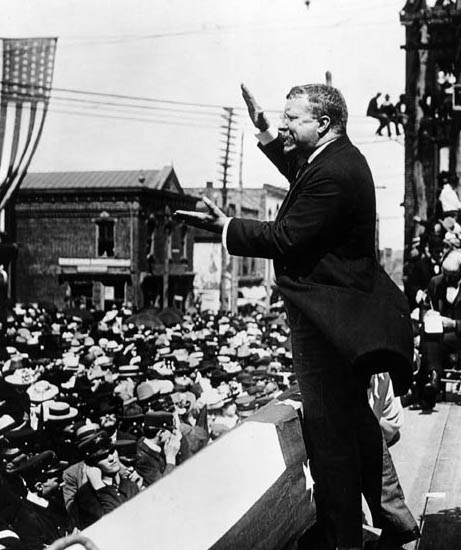
These famous speeches lifted hearts in dark times, gave hope in despair, refined the characters of men, inspired brave feats, gave courage to the weary, honored the dead, and changed the course of history.
How did we compile this list?
Great oratory has three components: style, substance, and impact.
Style: A great speech must be masterfully constructed. The best orators are masters of both the written and spoken word, and use words to create texts that are beautiful to both hear and read.
Substance: A speech may be flowery and charismatically presented, and yet lack any true substance at all. Great oratory must center on a worthy theme; it must appeal to and inspire the audience’s finest values and ideals.
Impact: Great oratory always seeks to persuade the audience of some fact or idea. The very best speeches change hearts and minds and seem as revelatory several decades or centuries removed as when they were first given.
And now for the speeches.
Contents [ hide ]
- 1. Theodore Roosevelt, "Duties of American Citizenship"
- 2. Winston Churchill, "We Shall Fight on the Beaches"
- 3. Lou Gehrig, "Farewell to Baseball Address"
- 4. Demosthenes, "The Third Philippic"
- 5. Chief Joseph, "Surrender Speech"
- 6. John F. Kennedy, "Inauguration Address"
7. Ronald Reagan, "Address to the Nation on the Challenger"
8. "speech of alexander the great", 9. william wilberforce, "abolition speech", 10. theodore roosevelt, "the man with the muck-rake", 11. franklin delano roosevelt, "first inaugural address", 12. charles de gaulle, "the appeal of 18 june", 13. socrates, "apology", 14. george washington, "resignation speech", 15. mahatma gandhi, "quit india", 16. winston churchill, "their finest hour", 17. william faulkner, "nobel prize acceptance speech", 18. dwight d. eisenhower, "farewell address", 19. marcus tullius cicero, "the first oration against catiline", 20. ronald reagan, "remarks at the brandenburg gate", 21. pericles, "funeral oration", 22. general douglas macarthur, "farewell address to congress", 23. theodore roosevelt, "strength and decency", 24. abraham lincoln, "2nd inaugural address", 25. patrick henry, "give me liberty or give me death", 26. ronald reagan, "40th anniversary of d-day".
- 27. John F. Kennedy, "The Decision to Go to the Moon"
28. Frederick Douglass, "What to the Slave is the Fourth of July?"
29. general douglas macarthur, "duty, honor, country", 30. theodore roosevelt, "citizenship in a republic", 31. winston churchill, "blood, sweat, and tears", 32. franklin delano roosevelt, "pearl harbor address to the nation", 33. jesus christ, "the sermon on the mount", 34. martin luther king jr., "i have a dream", 35. abraham lincoln, "the gettysburg address", 1. theodore roosevelt, “duties of american citizenship”.
January 26, 1883; Buffalo , New York
Given while serving as a New York assemblyman, TR's address on the "Duties of American Citizenship" delved into both the theoretical reasons why every man should be involved in politics and the practical means of serving in that capacity. Roosevelt chided those who excused themselves from politics because they were too busy; it was every man's duty to devote some time to maintaining good government.
Worthy Excerpt:
Of course, in one sense, the first essential for a man's being a good citizen is his possession of the home virtues of which we think when we call a man by the emphatic adjective of manly. No man can be a good citizen who is not a good husband and a good father, who is not honest in his dealings with other men and women, faithful to his friends and fearless in the presence of his foes, who has not got a sound heart, a sound mind, and a sound body; exactly as no amount of attention to civil duties will save a nation if the domestic life is undermined, or there is lack of the rude military virtues which alone can assure a country's position in the world. In a free republic the ideal citizen must be one willing and able to take arms for the defense of the flag, exactly as the ideal citizen must be the father of many healthy children. A race must be strong and vigorous; it must be a race of good fighters and good breeders, else its wisdom will come to naught and its virtue be ineffective; and no sweetness and delicacy, no love for and appreciation of beauty in art or literature, no capacity for building up material prosperity can possibly atone for the lack of the great virile virtues. But this is aside from my subject, for what I wish to talk of is the attitude of the American citizen in civic life. It ought to be axiomatic in this country that every man must devote a reasonable share of his time to doing his duty in the Political life of the community. No man has a right to shirk his political duties under whatever plea of pleasure or business; and while such shirking may be pardoned in those of small cleans it is entirely unpardonable in those among whom it is most common--in the people whose circumstances give them freedom in the struggle for life. In so far as the community grows to think rightly, it will likewise grow to regard the young man of means who shirks his duty to the State in time of peace as being only one degree worse than the man who thus shirks it in time of war. A great many of our men in business, or of our young men who are bent on enjoying life (as they have a perfect right to do if only they do not sacrifice other things to enjoyment), rather plume themselves upon being good citizens if they even vote; yet voting is the very least of their duties, Nothing worth gaining is ever gained without effort. You can no more have freedom without striving and suffering for it than you can win success as a banker or a lawyer without labor and effort, without self-denial in youth and the display of a ready and alert intelligence in middle age. The people who say that they have not time to attend to politics are simply saying that they are unfit to live in a free community.
Read full text of speech here .
2. Winston Churchill, “We Shall Fight on the Beaches”
June 4, 1940 ; House of Commons, London
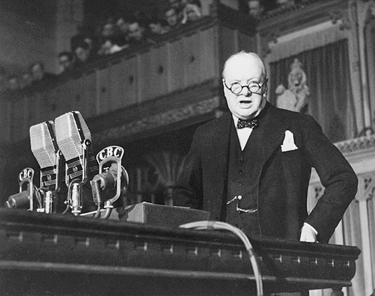
Winston Churchill, one of the greatest orators of the 20th century, was interestingly enough, like Demosthenes and other great orators before him, born with a speech impediment which he worked on until it no longer hindered him. One would never guess this from hearing Churchill's strong and reassuring voice, a voice that would buoy up Britain during some of her darkest hours.
During the Battle of France, Allied Forces became cut off from troops south of the German penetration and perilously trapped at the Dunkirk bridgehead. On May 26, a wholesale evacuation of these troops, dubbed "Operation Dynamo," began. The evacuation was an amazing effort-the RAF kept the Luftwaffe at bay while thousands of ships, from military destroyers to small fishing boats, were used to ferry 338,000 French and British troops to safety, far more than anyone had thought possible. On June 4, Churchill spoke before the House of Commons, giving a report which celebrated the "miraculous deliverance" at Dunkirk, while also seeking to temper a too rosy of view of what was on the whole a "colossal military disaster."
I have, myself, full confidence that if all do their duty, if nothing is neglected, and if the best arrangements are made, as they are being made, we shall prove ourselves once again able to defend our Island home, to ride out the storm of war, and to outlive the menace of tyranny, if necessary for years, if necessary alone. At any rate, that is what we are going to try to do. That is the resolve of His Majesty's Government-every man of them. That is the will of Parliament and the nation. The British Empire and the French Republic, linked together in their cause and in their need, will defend to the death their native soil, aiding each other like good comrades to the utmost of their strength. Even though large tracts of Europe and many old and famous States have fallen or may fall into the grip of the Gestapo and all the odious apparatus of Nazi rule, we shall not flag or fail. We shall go on to the end, we shall fight in France, we shall fight on the seas and oceans, we shall fight with growing confidence and growing strength in the air, we shall defend our Island, whatever the cost may be, we shall fight on the beaches, we shall fight on the landing grounds, we shall fight in the fields and in the streets, we shall fight in the hills; we shall never surrender, and even if, which I do not for a moment believe, this Island or a large part of it were subjugated and starving, then our Empire beyond the seas, armed and guarded by the British Fleet, would carry on the struggle, until, in God's good time, the New World, with all its power and might, steps forth to the rescue and the liberation of the old.
Check out my podcast with Churchill biographer Andrew Roberts .
3. Lou Gehrig, “Farewell to Baseball Address”
July 4, 1939; Yankee Stadium
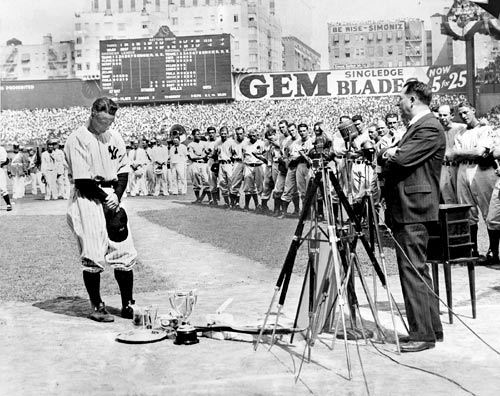
It seemed as if the luminous career of Lou Gehrig would go on forever. The Yankee's first baseman and prodigious slugger was nicknamed the Iron Horse for his durability and commitment to the game. Sadly, his record for suiting up for 2,130 consecutive games came to an end when at age 36, Gehrig was stricken with the crippling disease that now bears his name. On July 4, 1939, the Yankees held a ceremony to honor their teammate and friend. They retired Gehrig's number, spoke of his greatness, and presented him with various gifts, plaques, and trophies. When Gehrig finally addressed the crowd, he did not use the opportunity to wallow in pity. Instead, he spoke of the things he was grateful for and what a lucky guy he was.
Fans, for the past two weeks you have been reading about a bad break I got. Yet today I consider myself the luckiest man on the face of the earth. I have been in ballparks for seventeen years and have never received anything but kindness and encouragement from you fans. Look at these grand men. Which of you wouldn't consider it the highlight of his career to associate with them for even one day? Sure, I'm lucky. Who wouldn't consider it an honor to have known Jacob Ruppert - also the builder of baseball's greatest empire, Ed Barrow - to have spent the next nine years with that wonderful little fellow Miller Huggins - then to have spent the next nine years with that outstanding leader, that smart student of psychology - the best manager in baseball today, Joe McCarthy! Sure, I'm lucky. When the New York Giants, a team you would give your right arm to beat, and vice versa, sends you a gift, that's something! When everybody down to the groundskeepers and those boys in white coats remember you with trophies, that's something. When you have a wonderful mother-in-law who takes sides with you in squabbles against her own daughter, that's something. When you have a father and mother who work all their lives so that you can have an education and build your body, it's a blessing! When you have a wife who has been a tower of strength and shown more courage than you dreamed existed, that's the finest I know. So I close in saying that I might have had a tough break - but I have an awful lot to live for!
4. Demosthenes, “The Third Philippic”
342 B.C.; Athens, Greece
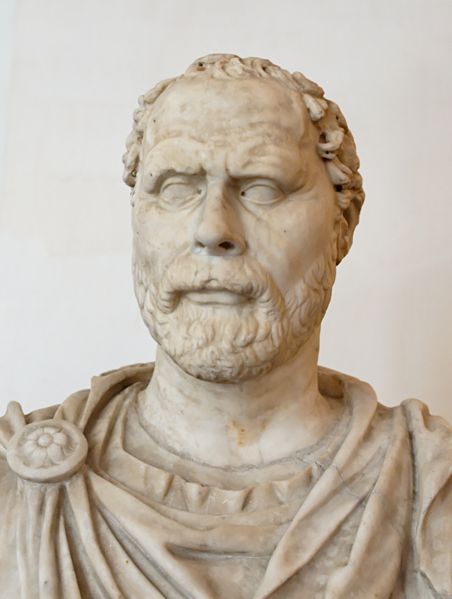
Demosthenes, master statesman and orator, loved his city-state of Athens. He cherished its way of life and abundant freedoms. And he believed in standing strong against anyone who might attempt to infringe on these privileges. This passion, unfortunately, was seldom shared by his fellow Athenians. While Philip the II of Macedon made bolder and bolder incursions into the Greek peninsula, the Athenian people seemed stuck in an apathetic stupor. For years, Demosthenes employed his powerful oratorical skills in attempts to awaken his fellow citizens from sleep to the realization of the imminent danger Philip posed. When Philip advanced on Thrace, the Athenians called an assembly to debate whether or not to finally heed the great orator's advice. Demosthenes was sick of his brethren taking liberty and the Athenian way of life for granted and he boldly called upon them to rise up and take action. After his rousing speech, the assembly all cried out, "To arms! To arms!"
It is this fate, I solemnly assure you, that I dread for you, when the time comes that you make your reckoning, and realize that there is no longer anything that can be done. May you never find yourselves, men of Athens, in such a position! Yet in any case, it were better to die ten thousand deaths, than to do anything out of servility towards Philip [or to sacrifice any of those who speak for your good]. A noble recompense did the people in Oreus receive, for entrusting themselves to Philip's friends, and thrusting Euphraeus aside! And a noble recompense the democracy of Eretria, for driving away your envoys, and surrendering to Cleitarchus! They are slaves, scourged and butchered! A noble clemency did he show to the Olynthians, who elected Lasthenes to command the cavalry, and banished Apollonides! It is folly, and it is cowardice, to cherish hopes like these, to give way to evil counsels, to refuse to do anything that you should do, to listen to the advocates of the enemy's cause, and to fancy that you dwell in so great a city that, whatever happens, you will not suffer any harm.
5. Chief Joseph, “Surrender Speech”
October 5, 1877; Montana Territory
In 1877, the military announced that the Chief Joseph and his tribe of Nez Perce had to move onto a reservation in Idaho or face retribution. Desiring to avoid violence, Chief Joseph advocated peace and cooperation. But fellow tribesmen dissented and killed four white men. Knowing a swift backlash was coming, Joseph and his people began to make their way to Canada, hoping to find amnesty there. The tribe traveled 1700 miles, fighting the pursuing US army along the way. In dire conditions, and after a five day battle, Chief Joseph surrendered to General Nelson A. Miles on Oct. 5, 1877 in the Bear Paw Mountains of Montana Territory, a mere 40 miles from the Canadian border. The Chief knew he was the last of a dying breed, and the moment of surrender was heartbreaking.
Tell General Howard I know his heart. What he told me before, I have it in my heart. I am tired of fighting. Our Chiefs are killed; Looking Glass is dead, Ta Hool Hool Shute is dead. The old men are all dead. It is the young men who say yes or no. He who led on the young men is dead. It is cold, and we have no blankets; the little children are freezing to death. My people, some of them, have run away to the hills, and have no blankets, no food. No one knows where they are - perhaps freezing to death. I want to have time to look for my children, and see how many of them I can find. Maybe I shall find them among the dead. Hear me, my Chiefs! I am tired; my heart is sick and sad. From where the sun now stands I will fight no more forever.
6. John F. Kennedy, “Inauguration Address”
January 20, 1961; Washington, D.C.
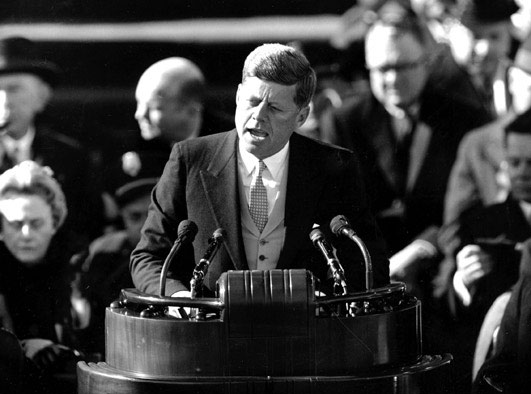
Young, handsome, with a glamorous family in tow, John F. Kennedy embodied the fresh optimism that had marked the post-war decade. On January 20, 1961, Kennedy took the oath of office as the 35th President of the United States. The youngest president in United States history, he was the first man born in the 20th century to hold that office. Listening to his inaugural address, the nation felt that a new era and a "new frontier" were being ushered in.
Can we forge against these enemies a grand and global alliance, North and South, East and West, that can assure a more fruitful life for all mankind? Will you join in that historic effort? In the long history of the world, only a few generations have been granted the role of defending freedom in its hour of maximum danger. I do not shrink from this responsibility -- I welcome it. I do not believe that any of us would exchange places with any other people or any other generation. The energy, the faith, the devotion which we bring to this endeavor will light our country and all who serve it -- and the glow from that fire can truly light the world. And so, my fellow Americans: ask not what your country can do for you -- ask what you can do for your country. My fellow citizens of the world: ask not what America will do for you, but what together we can do for the freedom of man.
Listen to the speech.
January 28, 1986; Washington, D.C.
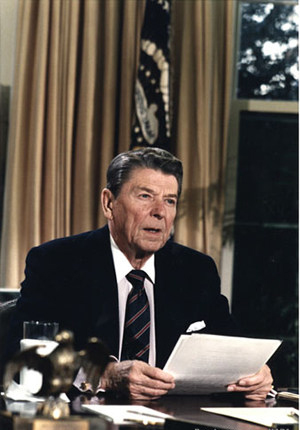
On January 28, 1986, millions of Americans, many of them schoolchildren watching from their classroom desks, tuned in to see 7 Americans, including Christa McAuliffe, a 37 year old schoolteacher and the first ever "civilian astronaut," lift off in the space shuttle Challenger. Just 73 seconds later, the shuttle was consumed in a fireball. All seven aboard perished. These were the first deaths of American astronauts while in flight, and the nation was shocked and heartbroken by the tragedy. Just a few hours after the disaster, President Ronald Reagan took to the radio and airwaves, honoring these "pioneers" and offering comfort and assurance to a rattled people.
We've grown used to wonders in this century. It's hard to dazzle us. But for 25 years the United States space program has been doing just that. We've grown used to the idea of space, and perhaps we forget that we've only just begun. We're still pioneers. They, the members of the Challenger crew, were pioneers. And I want to say something to the school children of America who were watching the live coverage of the shuttle's takeoff. I know it is hard to understand, but sometimes painful things like this happen. It's all part of the process of exploration and discovery. It's all part of taking a chance and expanding man's horizons. The future doesn't belong to the fainthearted; it belongs to the brave. The Challenger crew was pulling us into the future, and we'll continue to follow them...... The crew of the space shuttle Challenger honoured us by the manner in which they lived their lives. We will never forget them, nor the last time we saw them, this morning, as they prepared for the journey and waved goodbye and 'slipped the surly bonds of earth' to 'touch the face of God.'
Check out our podcast with Ronald Regan biographer Bob Sptiz.
326 B.C.; Hydaspes River, India
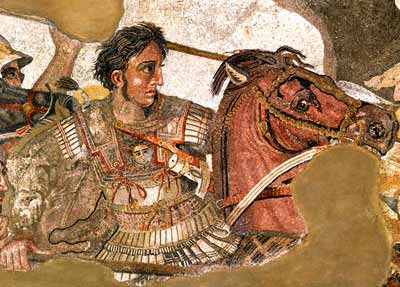
In 335 B.C., Alexander the Great began his campaign to recapture former Greek cities and to expand his empire. After ten years of undefeated battles, Alexander controlled an empire that included Greece, Egypt, and what had been the massive Persian Empire.
That wasn't enough for Xander. He decided to continue his conquest into India. But after ten years of fighting and being away from home, his men lacked the will to take part in another battle, especially against an opponent like King Porus and his army. Alexander used the talent for oration he had developed while studying under Aristotle to infuse his men with the motivation they needed to continue on, to fight and to win.
I could not have blamed you for being the first to lose heart if I, your commander, had not shared in your exhausting marches and your perilous campaigns; it would have been natural enough if you had done all the work merely for others to reap the reward. But it is not so. You and I, gentlemen, have shared the labour and shared the danger, and the rewards are for us all. The conquered territory belongs to you; from your ranks the governors of it are chosen; already the greater part of its treasure passes into your hands, and when all Asia is overrun, then indeed I will go further than the mere satisfaction of our ambitions: the utmost hopes of riches or power which each one of you cherishes will be far surpassed, and whoever wishes to return home will be allowed to go, either with me or without me. I will make those who stay the envy of those who return.
Check out the AoM podcast about the life of Alexander the Great.
May 12, 1789; House of Commons, London
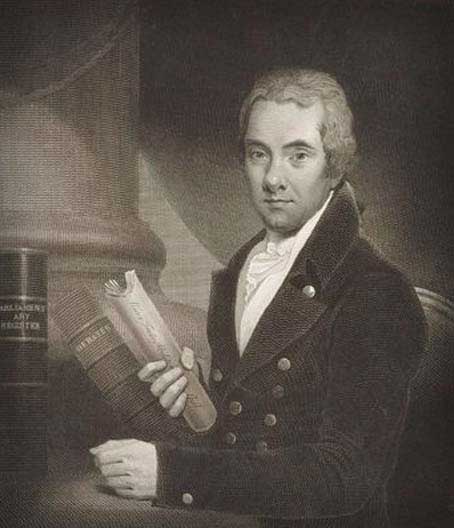
When William Wilberforce, a member of the British Parliament, converted to Christianity, he began to earnestly seek to reform the evils he found within himself and the world around him. One of the glaring moral issues of the day was slavery, and after reading up on the subject and meeting with anti-slavery activists, Wilberforce became convinced that God was calling him to be an abolitionist. Wilberforce decided to concentrate on ending the slave trade rather than slavery itself, reasoning that the abolition of one would logically lead to the demise of the other. On May 12, 1789, Wilberforce made his first speech on the abolition of the slave trade before the House of Commons. He passionately made his case for why the trade was reprehensible and needed to cease. Wilberforce introduced a bill to abolish the trade, but it failed, a result he would become quite familiar with in the ensuing years. Yet Wilberforce never gave up, reintroducing the bill year after year, and the Slave Trade Act was finally passed in 1807.
When I consider the magnitude of the subject which I am to bring before the House-a subject, in which the interests, not of this country, nor of Europe alone, but of the whole world, and of posterity, are involved: and when I think, at the same time, on the weakness of the advocate who has undertaken this great cause-when these reflections press upon my mind, it is impossible for me not to feel both terrified and concerned at my own inadequacy to such a task. But when I reflect, however, on the encouragement which I have had, through the whole course of a long and laborious examination of this question, and how much candour I have experienced, and how conviction has increased within my own mind, in proportion as I have advanced in my labours;-when I reflect, especially, that however averse any gentleman may now be, yet we shall all be of one opinion in the end;-when I turn myself to these thoughts, I take courage-I determine to forget all my other fears, and I march forward with a firmer step in the full assurance that my cause will bear me out, and that I shall be able to justify upon the clearest principles, every resolution in my hand, the avowed end of which is, the total abolition of the slave trade.
April 14, 1906; Washington, D.C.
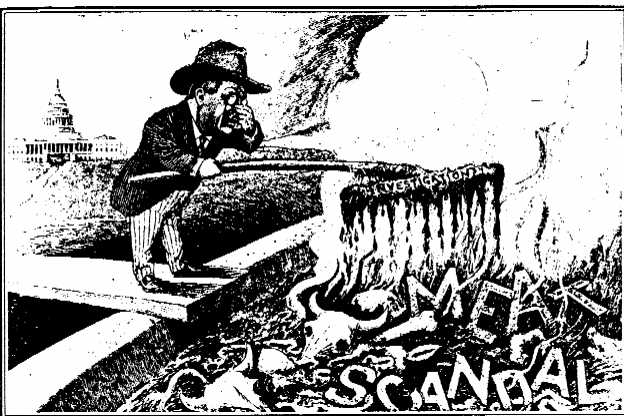
Theodore Roosevelt was president during the Progressive Era, a time of great enthusiasm for reform in government, the economy, and society. TR himself held many progressive ideals, but he also called for moderation, not extremism. The "Man with a Muck-rake" in Pilgrim's Progress never looked heavenward but instead constantly raked the filth at his feet. TR thus dubbed the journalists and activists of the day who were intent on exposing the corruption in society as "muckrakers." He felt that they did a tremendous amount of good, but needed to mitigate their constant pessimism and alarmist tone. He worried that the sensationalism with which these exposes were often presented would make citizens overly cynical and too prone to throw out the baby with the bathwater.
To assail the great and admitted evils of our political and industrial life with such crude and sweeping generalizations as to include decent men in the general condemnation means the searing of the public conscience. There results a general attitude either of cynical belief in and indifference to public corruption or else of a distrustful inability to discriminate between the good and the bad. Either attitude is fraught with untold damage to the country as a whole. The fool who has not sense to discriminate between what is good and what is bad is well-nigh as dangerous as the man who does discriminate and yet chooses the bad. There is nothing more distressing to every good patriot, to every good American, than the hard, scoffing spirit which treats the allegation of dishonesty in a public man as a cause for laughter. Such laughter is worse than the crackling of thorns under a pot, for it denotes not merely the vacant mind, but the heart in which high emotions have been choked before they could grow to fruition.
March 4, 1933; Washington, D.C.
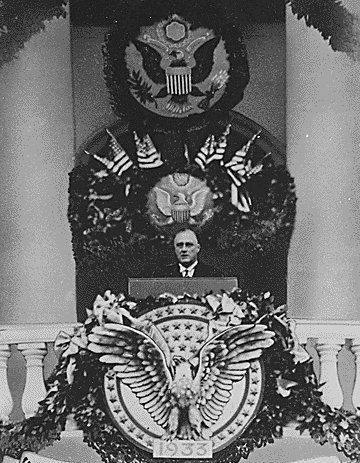
Franklin Delano Roosevelt handily beat incumbent Herbert Hoover in the 1932 presidential election. The country was deep into the Great Depression, and the public felt that Hoover did not fully sympathize with their plight and was not doing enough to alleviate it. No one was quite clear on what FDR's plan was, but as in today's election season, "change" was enough of an idea to power a campaign. In his First Inaugural Address, Roosevelt sought to buoy up the injured psyche of the American people and present his case for why he would need broad executive powers to tackle the Depression.
I am certain that my fellow Americans expect that on my induction into the Presidency I will address them with a candor and a decision which the present situation of our Nation impels. This is preeminently the time to speak the truth, the whole truth, frankly and boldly. Nor need we shrink from honestly facing conditions in our country today. This great Nation will endure as it has endured, will revive and will prosper. So, first of all, let me assert my firm belief that the only thing we have to fear is fear itself-nameless, unreasoning, unjustified terror which paralyzes needed efforts to convert retreat into advance. In every dark hour of our national life a leadership of frankness and vigor has met with that understanding and support of the people themselves which is essential to victory. I am convinced that you will again give that support to leadership in these critical days.
Read the full text here .
June 18, 1940; London
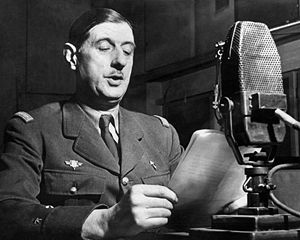
In June of 1940, it was clear that France was losing their country to the German invasion. Refusing to sign an armistice, Prime Minister Paul Reynaud was forced to resign. He was succeeded by Marshal Philippe Petain who made clear his intention to seek an accommodation with Germany. Disgusted with this decision, General Charles de Gaulle, leader of the Free French Forces, escaped to England on June 15. De Gaulle asked for, and obtained permission from Winston Churchill to make a speech on BBC radio. De Gaulle exhorted the French to not give up hope and to continue the fight against the German occupation and the Vichy Regime.
But has the last word been said? Must hope disappear? Is defeat final? No! Believe me, I who am speaking to you with full knowledge of the facts, and who tell you that nothing is lost for France. The same means that overcame us can bring us victory one day. For France is not alone! She is not alone! She is not alone! She has a vast Empire behind her. She can align with the British Empire that holds the sea and continues the fight. She can, like England, use without limit the immense industry of the United States. This war is not limited to the unfortunate territory of our country. This war is not over as a result of the Battle of France. This war is a worldwide war. All the mistakes, all the delays, all the suffering, do not alter the fact that there are, in the world, all the means necessary to crush our enemies one day. Vanquished today by mechanical force, in the future we will be able to overcome by a superior mechanical force. The fate of the world depends on it.
399 B.C.; Athens

Socrates is perhaps the greatest teacher in the history of the Western world. He wandered around Athens engaging in dialogues with his fellow citizens that focused on discovering the truth of all things . He taught his pupils that the "unexamined life is not worth living."
The Athenians saw Socrates as a threat, especially to the Athenian youth. Socrates acquired quite a following among the young men of Athens. He taught these impressionable minds to question everything, even Athenian authority. Eventually, Socrates was arrested and put on trial for corrupting the youth, not believing the gods, and creating new deities.
The "Apology" is Socrates' defense to these charges. Instead of crying and pleading for mercy, Socrates accepts his charges and attempts to persuade the jury with reason. He argued that it was his calling from the gods to seek knowledge and that it was through his questions he uncovered truth. To not fulfill his calling would be blasphemy. In the end, Socrates lost and was sentenced to death by hemlock. Socrates accepted this fate willingly and without grudge against his condemners, thus dying as a martyr for free thinking.
Some one will say: Yes, Socrates, but cannot you hold your tongue, and then you may go into a foreign city, and no one will interfere with you? Now I have great difficulty in making you understand my answer to this. For if I tell you that to do as you say would be a disobedience to the God, and therefore that I cannot hold my tongue, you will not believe that I am serious; and if I say again that daily to discourse about virtue, and of those other things about which you hear me examining myself and others, is the greatest good of man, and that the unexamined life is not worth living, you are still less likely to believe me.
Check out our article on the philosophy of Plato .
December 23, 1784; Annapolis, Maryland
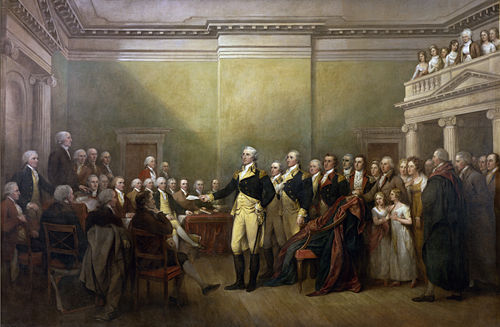
As the Revolutionary War drew to a close, there was much speculation that George Washington, then Major General and Commander-in-Chief, would follow in the footsteps of former world leaders by making a grab for supreme power. Some even wished he would do so, hoping he would become the king of a new nation. Yet Washington knew that such a move would wither the fragile beginnings of the new republic. Looking to the Roman general Cincinnatus an exemplar, Washington rejected the temptations of power and resigned his position as Commander-in-Chief. Choosing the right is almost never easy, and as Washington read his speech in front of the Continental Congress, the great statesman trembled so much that he had to hold the parchment with two hands to keep it steady. "The spectators all wept, and there was hardly a member of Congress who did not drop tears. His voice faltered and sunk, and the whole house felt his agitations." When finished, Washington bolted from the door of the Annapolis State House, mounted his horse, and galloped away into the sunset.
While I repeat my obligations to the Army in general, I should do injustice to my own feelings not to acknowledge in this place the peculiar Services and distinguished merits of the Gentlemen who have been attached to my person during the War. It was impossible the choice of confidential Officers to compose my family should have been more fortunate. Permit me Sir, to recommend in particular those, who have continued in Service to the present moment, as worthy of the favorable notice and patronage of Congress. I consider it an indispensable duty to close this last solemn act of my Official life, by commending the Interests of our dearest Country to the protection of Almighty God, and those who have the superintendence of them, to his holy keeping. Having now finished the work assigned me, I retire from the great theater of Action; and bidding an Affectionate farewell to this August body under whose orders I have so long acted, I here offer my Commission, and take my leave of all the employments of public life.
Check out my podcast about the self-education of George Washington.
August 8, 1942; India

While the battle for freedom and democracy raged across the world, the people of India were engaged in their own fight for liberty. For almost a century, India had been under the direct rule of the British crown, and many Indians had had enough. Mahatma Gandhi and the National Indian Congress pushed for a completely non-violent movement aimed at forcing Britain to "Quit India." Gandhi, pioneer of the tactics of non-violent civil disobedience, called for their use on August 8, 1942 with the passing of the Quit India Resolution demanding complete independence from British rule.
I believe that in the history of the world, there has not been a more genuinely democratic struggle for freedom than ours. I read Carlyle's French Resolution while I was in prison, and Pandit Jawaharlal has told me something about the Russian revolution. But it is my conviction that inasmuch as these struggles were fought with the weapon of violence they failed to realize the democratic ideal. In the democracy which I have envisaged, a democracy established by non-violence, there will be equal freedom for all. Everybody will be his own master. It is to join a struggle for such democracy that I invite you today. Once you realize this you will forget the differences between the Hindus and Muslims, and think of yourselves as Indians only, engaged in the common struggle for independence.
June 18, 1940; House of Commons, London
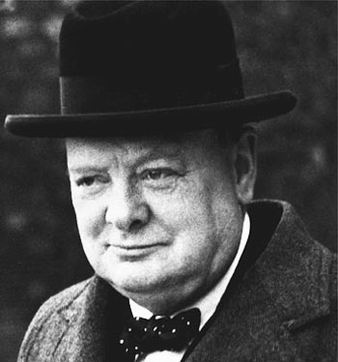
On May 10, 1940, the Germans began their invasion of France. On June 14 Paris fell. In a matter of days, France would surrender and England would stand as Europe's lone bulwark against the twin evils of Fascism and Nazism. At this critical moment, Churchill gave his third and final speech during the Battle of France, once again imparting words meant to bring hope in this dark hour.
What General Weygand called the Battle of France is over. I expect that the Battle of Britain is about to begin. Upon this battle depends the survival of Christian civilization. Upon it depends our own British life, and the long continuity of our institutions and our Empire. The whole fury and might of the enemy must very soon be turned on us. Hitler knows that he will have to break us in this Island or lose the war. If we can stand up to him, all Europe may be free and the life of the world may move forward into broad, sunlit uplands. But if we fail, then the whole world, including the United States, including all that we have known and cared for, will sink into the abyss of a new Dark Age made more sinister, and perhaps more protracted, by the lights of perverted science. Let us therefore brace ourselves to our duties, and so bear ourselves that if the British Empire and its Commonwealth last for a thousand years, men will still say, 'This was their finest hour.'
Check out my podcast about how Churchill led during the Blitz.
December 10, 1950; Stockholm, Sweden
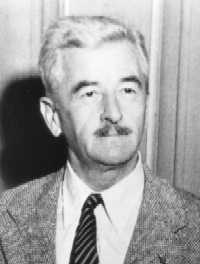
A true master of the written word, William Faulkner did not often make public his gift for the spoken variety. So there was some interest as to what he would say when accepting the Nobel Peace Prize for his "powerful and artistically unique contribution to the modern American novel." The year was 1950, the Soviet Union had tapped the potential of the atomic bomb, and the atmosphere in the the United States crackled with the fear of them using it. Faulkner challenged poets, authors, and all mankind to think beyond the questions of "When will I be blown up?" and instead continue to "create out of the materials of the human spirit something which did not exist before."
I decline to accept the end of man. It is easy enough to say that man is immortal because he will endure: that when the last ding-dong of doom has clanged and faded from the last worthless rock hanging tideless in the last red and dying evening, that even then there will still be one more sound: that of his puny inexhaustible voice, still talking. I refuse to accept this. I believe that man will not merely endure: he will prevail. He is immortal, not because he alone among creatures has an inexhaustible voice, but because he has a soul, a spirit capable of compassion and sacrifice and endurance. The poet's, the writer's, duty is to write about these things. It is his privilege to help man endure by lifting his heart, by reminding him of the courage and honor and hope and pride and compassion and pity and sacrifice which have been the glory of his past. The poet's voice need not merely be the record of man, it can be one of the props, the pillars to help him endure and prevail.
January 17, 1961; Washington, D.C.

The 1950's were a time of ever increasing military spending, as the United States sought to fight communism abroad and prevent it at home. As President Dwight D. Eisenhower left office, more than half of the federal budget was allocated for defense purposes. Eisenhower, former General of the Army, was certainly not opposed to the use of military power to keep the peace. Still, he saw fit to use his "Farewell Address" to warn the nation of the dangers posed by the "military-industrial complex," referring to the relationship between the armed forces, the government, and the suppliers of war materials. Eisenhower was wary of the large role defense spending played in the economy, and understood the political and corporate corruption that could result if the public was not vigilant in checking it.
In the councils of government, we must guard against the acquisition of unwarranted influence, whether sought or unsought, by the military-industrial complex . The potential for the disastrous rise of misplaced power exists and will persist. We must never let the weight of this combination endanger our liberties or democratic processes. We should take nothing for granted. Only an alert and knowledgeable citizenry can compel the proper meshing of the huge industrial and military machinery of defense with our peaceful methods and goals, so that security and liberty may prosper together.
63 BC; Rome
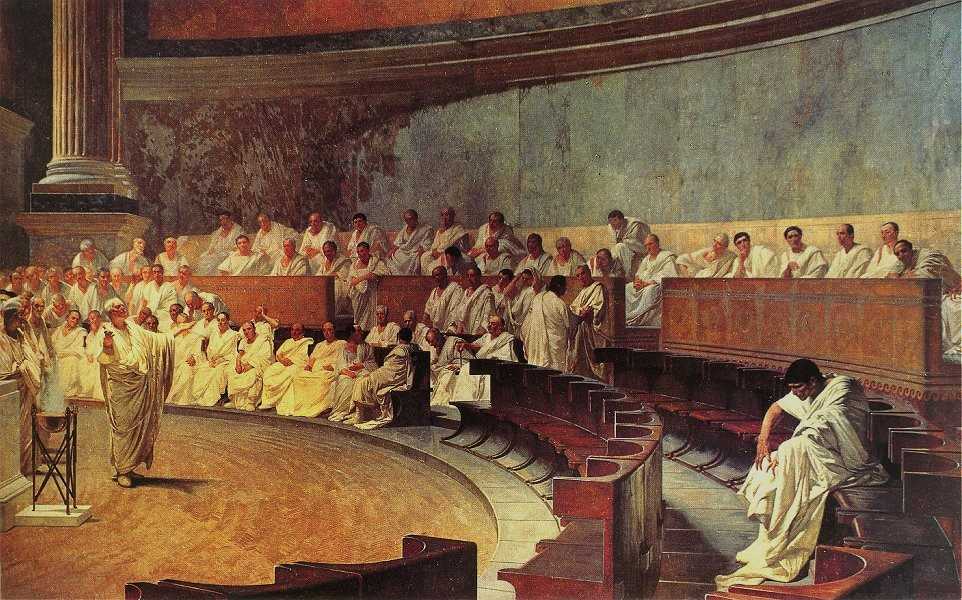
Lucius Sergius Catilina (Catiline to his friends) was a very jealous man. Having once run against Cicero for the position of consul and lost, he became determined to win the next election by any devious method necessary. Plan A was to bribe people to vote for him, and when that didn't work, he decided to go for bust and simply knock Cicero off on election day. This plan was ferreted out by the ever vigilant Cicero, the election was postponed, and the Senate established marital law. When the election finally was held, the murderer-cum-candidate was surprisingly trounced at the polls. Now it was time for Catiline's Plan C: raise an army of co-conspirators, create insurrection throughout Italy, overthrow the government, and slice and dice as many Senators as they could get their coo -ky hands on. But Cicero was again one step ahead and discovered the plan. He called the Senate together for a meeting at the Temple of Jupiter in the Capitol, an orifice only used in times of great crisis. Catiline, who seriously didn't know when he was not welcome, decided to crash the party. With his archenemy in attendance, Cicero began his Catiline Orations, a series of speeches covering how he saved Rome from rebellion, the guilt of Catiline, and the need to whack he and his cronies.
I wish, O conscript fathers, to be merciful; I wish not to appear negligent amid such danger to the state; but I do now accuse myself of remissness and culpable inactivity. A camp is pitched in Italy, at the entrance of Etruria, in hostility to the republic; the number of the enemy increases every day; and yet the general of that camp, the leader of those enemies, we see within the walls-aye, and even in the senate-planning every day some internal injury to the republic. If, O Catiline, I should now order you to be arrested, to be put to death, I should, I suppose, have to fear lest all good men should say that I had acted tardily, rather than that any one should affirm that I acted cruelly. But yet this, which ought to have been done long since, I have good reason for not doing as yet; I will put you to death, then, when there shall be not one person possible to be found so wicked, so abandoned, so like yourself, as not to allow that it has been rightly done. As long as one person exists who can dare to defend you, you shall live; but you shall live as you do now, surrounded by my many and trusty guards, so that you shall not be able to stir one finger against the republic; many eyes and ears shall still observe and watch you, as they have hitherto done, tho you shall not perceive them.
June 12, 1987; Brandenburg Gate, Berlin
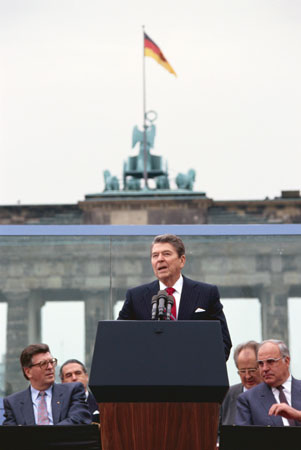
Since the end of World War II, Germany had been a divided country, the West free and democratic, the East under authoritarian communist control. When President Reagan took office, he was committed not only to uniting that country, but to bringing down the entire "Evil Empire." While the importance of Reagan's role in successfully doing so is endlessly debated, it beyond dispute that he exerted some influence in bringing the Cold War to an end. There is no more memorable and symbolic moment of this influence then when Reagan stood at the Berlin wall, the most visible symbol of the "Iron Curtain," and challenged Gorbachev to "tear down this wall!"
We welcome change and openness; for we believe that freedom and security go together, that the advance of human liberty can only strengthen the cause of world peace. There is one sign the Soviets can make that would be unmistakable, that would advance dramatically the cause of freedom and peace. General Secretary Gorbachev, if you seek peace, if you seek prosperity for the Soviet Union and eastern Europe, if you seek liberalization, come here to this gate. Mr. Gorbachev, open this gate. Mr. Gorbachev, tear down this wall!
Listen to speech.
431 BC; Athens

Pericles, master statesman, orator, and general, was truly, as Thuciydies dubbed him, "the first citizen of Athens." Pericles was a product of the Sophists and had been personally tutored by the great philosopher Anaxagoras. His study with the Sophists made Pericles a highly persuasive orator. Through his speeches, he galvanized Athenians to undertake an enormous public works project that created hundreds of temples, including the Pantheon.
Pericles' gift of oration was put to the test during the epic battles of the Peloponnesian War, a civil war between Athens and Sparta. His speeches inspired Athenians to fight to become the number one power in Greece. In February of 431 B.C., Athens had their annual public funeral to honor all those who died in war. Pericles was asked to give the traditional funeral oration. Rather than focus his speech on enumerating the conquests of Athens' fallen heroes, Pericles instead used his funeral oration to laud the glory of Athens itself and inspire the living to make sure the soldiers had not died in vain.
Over 2,000 years later, Pericles' funeral oration inspired Abraham Lincoln's "Gettysburg Address." Like Pericles, Lincoln was a leader during a time of civil war. Like Pericles, Lincoln focused on exhorting the living to live their lives in a way that would make the sacrifice of fallen warriors worthwhile.
So died these men as became Athenians. You, their survivors, must determine to have as unfaltering a resolution in the field, though you may pray that it may have a happier issue. And not contented with ideas derived only from words of the advantages which are bound up with the defense of your country, though these would furnish a valuable text to a speaker even before an audience so alive to them as the present, you must yourselves realize the power of Athens, and feed your eyes upon her from day to day, till love of her fills your hearts; and then, when all her greatness shall break upon you, you must reflect that it was by courage, sense of duty, and a keen feeling of honor in action that men were enabled to win all this, and that no personal failure in an enterprise could make them consent to deprive their country of their valor, but they laid it at her feet as the most glorious contribution that they could offer.
April 19, 1951, Washington; D.C.
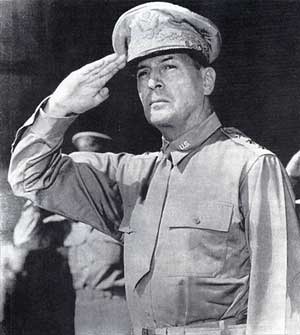
During the Korean War, General MacArthur and President Truman clashed over the threat posed by the Chinese People's Liberation Army and their incursion into Korea. MacArthur continually pressed Truman for permission to bomb bases in Manchuria, believing the war needed to be extended in area and scope. Truman refused the General's requests, arguing that directly drawing China into the war would arouse the Soviet Union to action. MacArthur continued to press his case, and Truman, accusing the General of insubordination, made the decision to relieve MacArthur of his command. After serving for 52 years and in three wars, the General's military career was over. MacArthur returned to the United States and gave this farewell address to Congress.
I am closing my 52 years of military service. When I joined the Army, even before the turn of the century, it was the fulfillment of all of my boyish hopes and dreams. The world has turned over many times since I took the oath on theplain at West Point, and the hopes and dreams have long since vanished, but I still remember the refrain of one of the most popular barrack ballads of that day which proclaimed most proudly that "old soldiers never die; they just fade away." And like the old soldier of that ballad, I now close my military career and just fade away, an old soldier who tried to do his duty as God gave him the light to see that duty. Good Bye.
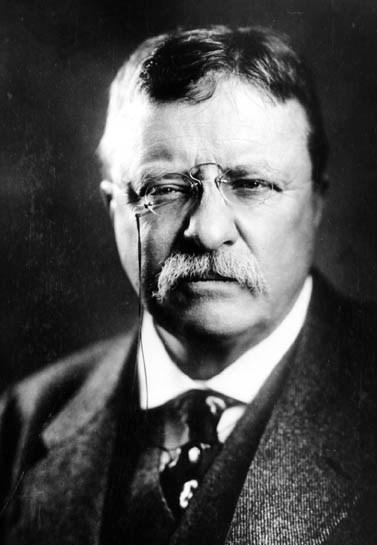
Roosevelt was an advocate of having many children and making sure the next generation would continue to uphold the great virtues of civilization. He was always concerned that young men not be coddled or cowardly, and grow up to live rugged, strenuous, and thoroughly manly lives. But he also strongly believed that being ruggedly manly and being refined in mind and spirit were not incompatible and should in fact go hand and hand. In this speech, he exhorts young men to pursue virtuous manliness. Amen, brother, amen.
It is peculiarly incumbent upon you who have strength to set a right example to others. I ask you to remember that you cannot retain your self-respect if you are loose and foul of tongue, that a man who is to lead a clean and honorable life must inevitably suffer if his speech likewise is not clean and honorable. Every man here knows the temptations that beset all of us in this world. At times any man will slip. I do not expect perfection, but I do expect genuine and sincere effort toward being decent and cleanly in thought, in word, and in deed. As I said at the outset, I hail the work of this society as typifying one of those forces which tend to the betterment and uplifting of our social system. Our whole effort should be toward securing a combination of the strong qualities with those qualities which we term virtues. I expect you to be strong. I would not respect you if you were not. I do not want to see Christianity professed only by weaklings; I want to see it a moving spirit among men of strength. I do not expect you to lose one particle of your strength or courage by being decent. On the contrary, I should hope to see each man who is a member of this society, from his membership in it become all the fitter to do the rough work of the world; all the fitter to work in time of peace; and if, which may Heaven forfend, war should come, all the fitter to fight in time of war. I desire to see in this country the decent men strong and the strong men decent, and until we get that combination in pretty good shape we are not going to be by any means as successful as we should be. There is always a tendency among very young men and among boys who are not quite young men as yet to think that to be wicked is rather smart; to think it shows that they are men. Oh, how often you see some young fellow who boasts that he is going to "see life," meaning by that that he is going to see that part of life which it is a thousandfold better should remain unseen!
March 4, 1865; Washington, D.C.
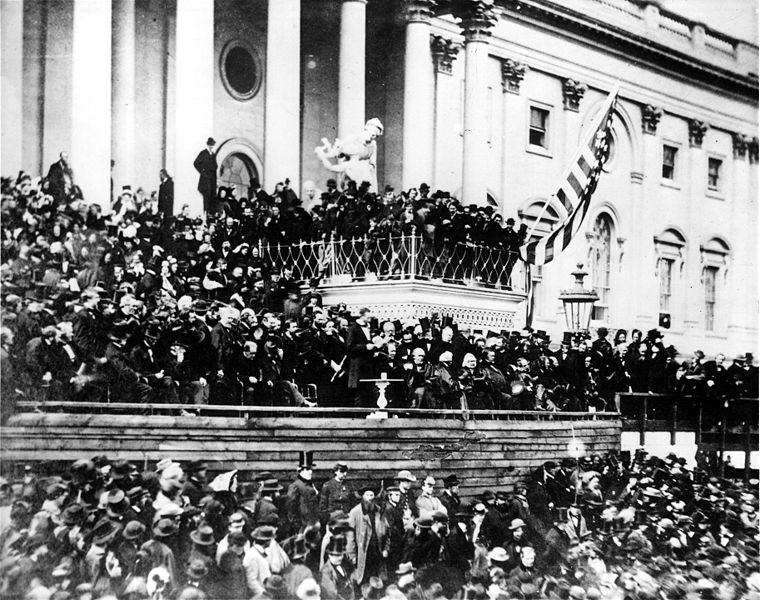
The Union's victory was but a month away as Abraham Lincoln began his second term as president of a bitterly ruptured United States. Like the Gettysburg Address, Lincoln keeps this speech only as long as needful. While there are those who still debate whether the Civil War was truly fought over slavery or not, Lincoln certainly believed so. To him, slavery was a great national sin, and the blood shed during the war was the atoning sacrifice for that evil.
He does not relish the prospect of coming victory; instead, he appeals to his countrymen to remember that the war was truly fought between brothers. When the war was over and the Confederacy forced to return to the Union, Lincoln was prepared to treat the South with relative leniency. He did not believe secession was truly possible, and thus the South had never truly left the Union. Reconstruction would not mean vengeance, but the return home of a terribly errant son.
Fondly do we hope, fervently do we pray, that this mighty scourge of war may speedily pass away. Yet, if God wills that it continue until all the wealth piled by the bondsman's two hundred and fifty years of unrequited toil shall be sunk, and until every drop of blood drawn with the lash shall be paid by another drawn with the sword, as was said three thousand years ago, so still it must be said "the judgments of the Lord are true and righteous altogether." With malice toward none, with charity for all, with firmness in the right as God gives us to see the right, let us strive on to finish the work we are in, to bind up the nation's wounds, to care for him who shall have borne the battle and for his widow and his orphan, to do all which may achieve and cherish a just and lasting peace among ourselves and with all nations.
March 23, 1775; Richmond , VA
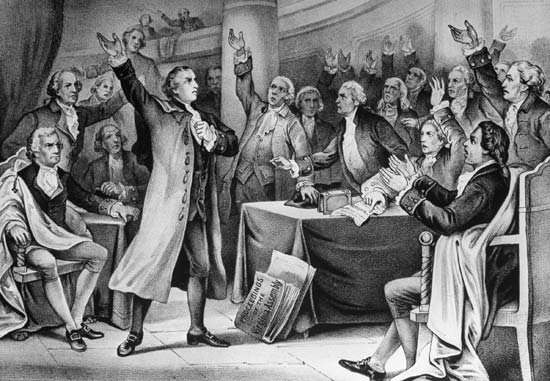
For a decade, revolutionary sentiments had been brewing in Virginia and Patrick Henry had always been in the thick of it, stirring the pot. Henry became particularly enflamed by the Stamp Act of 1764, which prompted him to give his so-called "treason speech," spurring the Burgesses to pass the Virginia Resolves banning the act. Tensions between the colonies and the Crown continued to build, and in 1775, Massachusetts patriots began making preparations for war. Henry believed that Virginia should follow suit. At a meeting held in St. John's Church in Richmond, Henry presented resolutions to make ready Virginia's defenses. Seeking to persuade his fellow delegates of the urgency of his message, he gave a rousing and memorable speech, climaxing is that now famous line, "Give me liberty of give me death!"
The battle, sir, is not to the strong alone; it is to the vigilant, the active, the brave. Besides, sir, we have no election. If we were base enough to desire it, it is now too late to retire from the contest. There is no retreat but in submission and slavery! Our chains are forged! Their clanking may be heard on the plains of Boston! The war is inevitable -- and let it come! I repeat it, sir, let it come! It is in vain, sir, to extenuate the matter. Gentlemen may cry, "Peace! Peace!" -- but there is no peace. The war is actually begun! The next gale that sweeps from the north will bring to our ears the clash of resounding arms! Our brethren are already in the field! Why stand we here idle? What is it that gentlemen wish? What would they have? Is life so dear, or peace so sweet, as to be purchased at the price of chains and slavery? Forbid it, Almighty God! I know not what course others may take; but as for me, give me liberty, or give me death!
June 6, 1984; Pointe du Hoc, France
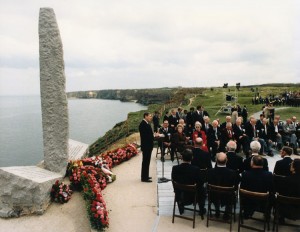
What the Army Rangers did on D-Day at Pointe Du Hoc is a tale every man worth his salt should be familiar with. Pointe du Hoc was a sheer 100 foot cliff located in-between Omaha and Utah beaches. Perched atop the cliff sat six casemates capable of being manned, armed, and taking out the men on the beaches. As the Germans fired upon them, the Rangers scaled the cliff using ropes and ladders, found the guns (which had been moved from the casemates) and destroyed them. Without reinforcements for two days, the Rangers alone held their position and fended off German counterattacks. These skirmishes proved deadly; only 90 of the original 225 Ranger landing force survived.
On the 40 th anniversary of D-Day, President Reagan gave a moving tribute to these men, many of whom were present at the occasion.
These are the boys of Pointe du Hoc. These are the men who took the cliffs. These are the champions who helped free a continent. These are the heroes who helped end a war. Gentlemen, I look at you and I think of the words of Stephen Spender's poem. You are men who in your 'lives fought for life...and left the vivid air signed with your honor'... Forty summers have passed since the battle that you fought here. You were young the day you took these cliffs; some of you were hardly more than boys, with the deepest joys of life before you. Yet you risked everything here. Why? Why did you do it? What impelled you to put aside the instinct for self-preservation and risk your lives to take these cliffs? What inspired all the men of the armies that met here? We look at you, and somehow we know the answer. It was faith, and belief; it was loyalty and love. The men of Normandy had faith that what they were doing was right, faith that they fought for all humanity, faith that a just God would grant them mercy on this beachhead or on the next. It was the deep knowledge -- and pray God we have not lost it -- that there is a profound moral difference between the use of force for liberation and the use of force for conquest. You were here to liberate, not to conquer, and so you and those others did not doubt your cause. And you were right not to doubt.
27. John F. Kennedy, " The Decision to Go to the Moon"
May 25, 1961; Houston, TX
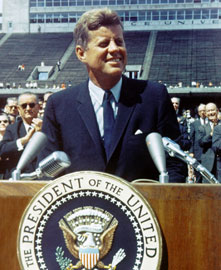
On April 12, 1961, the Soviets launched the first man into space. Khrushchev used this triumph as prime evidence of communism's superiority over decadent capitalism. Embarrassed, the United States feared it was falling behind the Soviet Union and losing the "space race." After consulting with political and NASA officials, Kennedy decided it was time for America to boldly go where no man had gone before by putting a man on the moon. The feat would not only catapult the nation over the Soviet Union, but also allow man to more fully explore the mysteries of space. And this mission would be accomplished by the end of the 1960's. When was the last time a president had the cajones to publicly issue a straightforward, ambitious goal and set a timeline for its success?
There is no strife, no prejudice, no national conflict in outer space as yet. Its hazards are hostile to us all. Its conquest deserves the best of all mankind, and its opportunity for peaceful cooperation many never come again. But why, some say, the moon? Why choose this as our goal? And they may well ask why climb the highest mountain? Why, 35 years ago, fly the Atlantic? Why does Rice play Texas? We choose to go to the moon. We choose to go to the moon in this decade and do the other things, not because they are easy, but because they are hard, because that goal will serve to organize and measure the best of our energies and skills, because that challenge is one that we are willing to accept, one we are unwilling to postpone, and one which we intend to win, and the others, too.
July 5, 1852; Rochester, NY
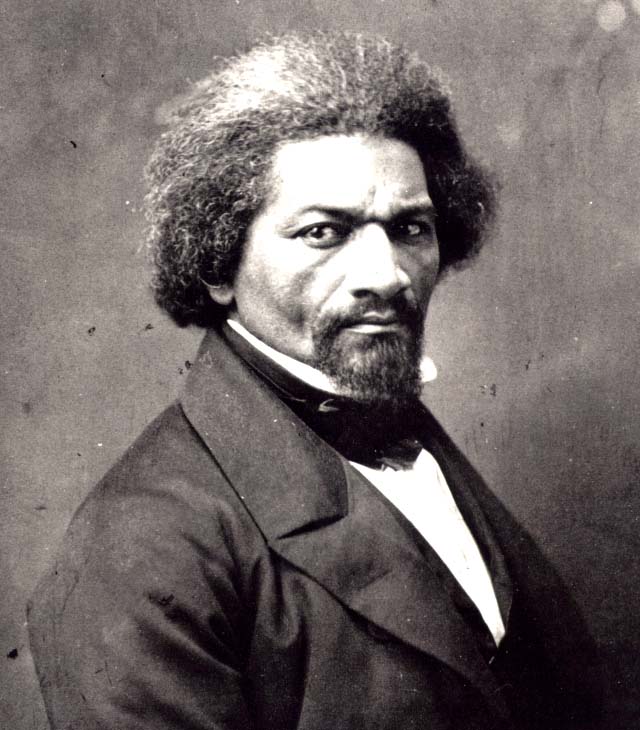
Frederick Douglass, former slave, abolitionist, and engineer on the underground railroad, was a popular speaker on the anti-slavery circuit. He traveled thousands of miles each year, giving hundreds of speeches. Yet the money he earned from lecturing was not enough to become financially comfortable, and he and his family struggled. Douglass was disillusioned by the repercussions of the Fugitive Slave Act, and his abolitionist leanings grew more strident and bold. If the citizens of Rochester, New York had expected to be flattered by Douglass when they asked him to speak on the Fourth, they were soon disavowed of that idea. Douglass took the opportunity to defiantly point out the ripe hypocrisy of a nation celebrating their ideals of freedom and equality while simultaneously mired in the evil of slavery. While the speech surely made even the most liberal audience members squirm; nonetheless, the crowed let loose in "universal applause" when Douglass finished.
I am not included within the pale of this glorious anniversary! Your high independence only reveals the immeasurable distance between us. The blessings in which you this day rejoice are not enjoyed in common. The rich inheritance of justice, liberty, prosperity, and independence bequeathed by your fathers is shared by you, not by me. The sunlight that brought life and healing to you has brought stripes and death to me. This Fourth of July is yours, not mine. Youmay rejoice, I must mourn. To drag a man in fetters into the grand illuminated temple of liberty, and call upon him to join you in joyous anthems, were inhuman mockery and sacrilegious irony. Do you mean, citizens, to mock me, by asking me to speak today?
Read what books had the biggest influence on Frederick Douglass.
May 12, 1962; West Point, New York
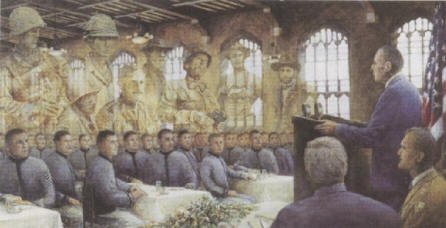
General Douglas MacArthur, General of the Army and a man who fought in three wars, knew something of "Duty, Honor, Country." In 1962, MacArthur was in the twilight of his life and came to West Point to accept the Sylvanus Thayer Award and participate in his final cadet roll call. His address reflects upon and celebrates the brave and courageous men who came before, men he personally led, men who embodied "Duty, Honor, Country."
There are many great speeches in this list, but I hope you will pause to read the entirety of this one. Picking an excerpt was quite difficult, as so many of the passages are inspiring. A must read for all men.
You are the leaven which binds together the entire fabric of our national system of defense. From your ranks come the great captains who hold the nation's destiny in their hands the moment the war tocsin sounds. The Long Gray Line has never failed us. Were you to do so, a million ghosts in olive drab, in brown khaki, in blue and gray, would rise from their white crosses thundering those magic words: Duty, Honor, Country . This does not mean that you are war mongers. On the contrary, the soldier, above all other people, prays for peace, for he must suffer and bear the deepest wounds and scars of war. But always in our ears ring the ominous words of Plato, that wisest of all philosophers: "Only the dead have seen the end of war." The shadows are lengthening for me. The twilight is here. My days of old have vanished, tone and tint. They have gone glimmering through the dreams of things that were. Their memory is one of wondrous beauty, watered by tears, and coaxed and caressed by the smiles of yesterday. I listen vainly, but with thirsty ears, for the witching melody of faint bugles blowing reveille, of far drums beating the long roll. In my dreams I hear again the crash of guns, the rattle of musketry, the strange, mournful mutter of the battlefield. But in the evening of my memory, always I come back to West Point. Always there echoes and re-echoes: Duty, Honor, Country .
April 23, 1910; Paris , France
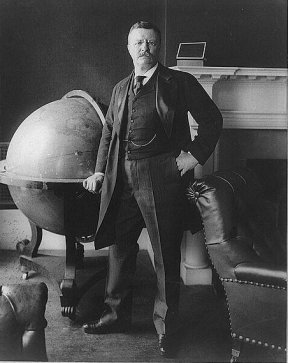
At the end of Theodore Roosevelt's second term in office, he set out to tour Africa and Europe, hoping to allow his successor, President Taft, to step into the enormous shoes TR had left and become his own man. After a safari in Africa, he traveled throughout Europe. While in France, he was invited to speak at the historic University of Paris. Roosevelt used the opportunity to deliver a powerful address on the requirements of citizenship, the characteristics which would keep democracies like France and the United States robust and strong. This speech is famous for the "man in the arena" quote, but the entire speech is an absolute must read.
Let the man of learning, the man of lettered leisure, beware of that queer and cheap temptation to pose to himself and to others as a cynic, as the man who has outgrown emotions and beliefs, the man to whom good and evil are as one. The poorest way to face life is to face it with a sneer. There are many men who feel a kind of twister pride in cynicism; there are many who confine themselves to criticism of the way others do what they themselves dare not even attempt. There is no more unhealthy being, no man less worthy of respect, than he who either really holds, or feigns to hold, an attitude of sneering disbelief toward all that is great and lofty, whether in achievement or in that noble effort which, even if it fails, comes to second achievement. A cynical habit of thought and speech, a readiness to criticise work which the critic himself never tries to perform, an intellectual aloofness which will not accept contact with life's realities - all these are marks, not as the possessor would fain to think, of superiority but of weakness. They mark the men unfit to bear their part painfully in the stern strife of living, who seek, in the affection of contempt for the achievements of others, to hide from others and from themselves in their own weakness. The rôle is easy; there is none easier, save only the rôle of the man who sneers alike at both criticism and performance. It is not the critic who counts; not the man who points out how the strong man stumbles, or where the doer of deeds could have done them better. The credit belongs to the man who is actually in the arena, whose face is marred by dust and sweat and blood; who strives valiantly; who errs, who comes short again and again, because there is no effort without error and shortcoming; but who does actually strive to do the deeds; who knows great enthusiasms, the great devotions; who spends himself in a worthy cause; who at the best knows in the end the triumph of high achievement, and who at the worst, if he fails, at least fails while daring greatly, so that his place shall never be with those cold and timid souls who neither know victory nor defeat.
May 13, 1940; House of Commons, London
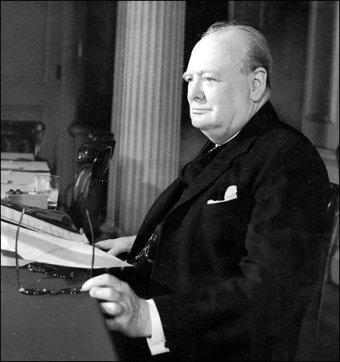
Winston Churchill's first speech to the House of Commons as Britain's new Prime Minister got off to an auspicious start. His welcome to that assembly was quite tepid, while outgoing PM Neville Chamberlain was enthusiastically applauded (the world did not yet know just how disastrous his appeasement policies would prove and did not trust Churchill). But Churchill's first speech, the first of three powerful oratories he gave during the Battle of France, would prove that England was in more than capable hands. A seemingly unstoppable Hitler was advancing rapidly across Europe, and Churchill wasted no time in calling his people to arms. While TR had actually been the first to utter the phrase, "blood, sweat and tears," it was Churchill's use of these words that would leave an inedible and inspiring impression upon the world's mind.
Worthy Excerpt
I say to the House as I said to ministers who have joined this government, I have nothing to offer but blood, toil, tears, and sweat. We have before us an ordeal of the most grievous kind. We have before us many, many months of struggle and suffering. You ask, what is our policy? I say it is to wage war by land, sea, and air. War with all our might and with all the strength God has given us, and to wage war against a monstrous tyranny never surpassed in the dark and lamentable catalogue of human crime. That is our policy. You ask, what is our aim? I can answer in one word. It is victory. Victory at all costs - Victory in spite of all terrors - Victory, however long and hard the road may be, for without victory there is no survival.
December 8, 1941; Washington, D.C.
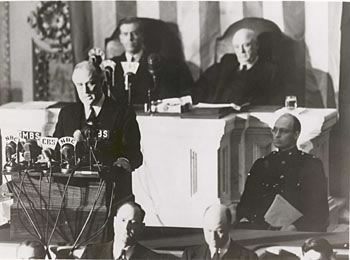
The attack on Pearl Harbor, December 7, 1941, shocked the United States to its core, outraging a nation that had hoped to stay out of the mounting turmoil in Asia and Europe. Overnight, the country united in desire to enter the war. The day after the attacks, FDR addressed the nation in a brief, but electrifying speech, declaring war on Japan and giving assurance that the United States would attain victory.
Be sure to listen to the audio of the speech. Imagine every American family, rattled and worried, listening around the radio to what their president would say. They knew their whole world was about to change forever. Listen to the reaction of Congress as they applaud and cheer FDR's words. The emotion is so very real and palatable; it truly transports you back to that critical moment in time.
Mr. Vice President, Mr. Speaker, members of the Senate and the House of Representatives: yesterday, December 7, 1941- a date which will live in infamy -the United States of America was suddenly and deliberately attacked by naval and air forces of the Empire of Japan..... But always will our whole nation remember the character of the onslaught against us. No matter how long it may take us to overcome this premeditated invasion, the American people in their righteous might will win through to absolute victory. I believe that I interpret the will of the Congress and of the people when I assert that we will not only defend ourselves to the uttermost but will make it very certain that this form of treachery shall never again endanger us. Hostilities exist. There is no blinking at the fact that our people, our territory and our interests are in grave danger. With confidence in our armed forces-with the unbounding determination of our people-we will gain the inevitable triumph-so help us God.
33 A.D.; Jerusalem
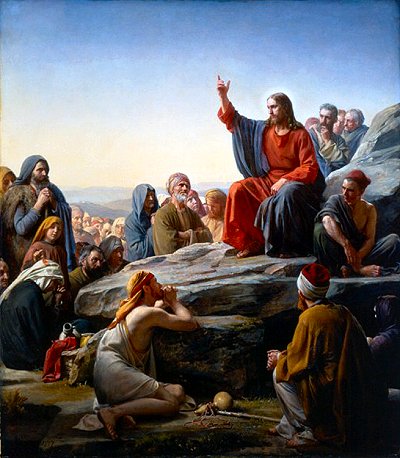
Whether one believes that Jesus of Nazareth was the Son of God or simply a wise teacher, it is impossible to deny the impact of perhaps the world's most famous speech: The Sermon on the Mount. No speech has been more pondered, more influential, or more quoted. It introduced a prayer now familiar the world over and uttered in trenches, churches, and bedsides around the globe. It introduced a code of conduct billions of believers have adopted as their lofty, if not not always attainable, goal. While much of the sermon has roots in Jewish law, the advice given in the Beatitudes represented a dramatic and radical departure from the eye for an eye system of justice known in the ancient world. The standards of behavior outlined in the sermon have given believers and non-believers alike plenty to contemplate and discuss in the two thousand years since it was given.
Blessed are the poor in spirit: for theirs is the kingdom of heaven. Blessed are they that mourn: for they shall be comforted. Blessed are the meek: for they shall inherit the earth. Blessed are they which do hunger and thirst after righteousness: for they shall be filled. Blessed are the merciful: for they shall obtain mercy. Blessed are the pure in heart: for they shall see God. Blessed are the peacemakers: for they shall be called the children of God. Blessed are they which are persecuted for righteousness' sake: for theirs is the kingdom of heaven.
See Matthew Chapter 5-7 for full text.
August 28, 1963; Washington, D.C.
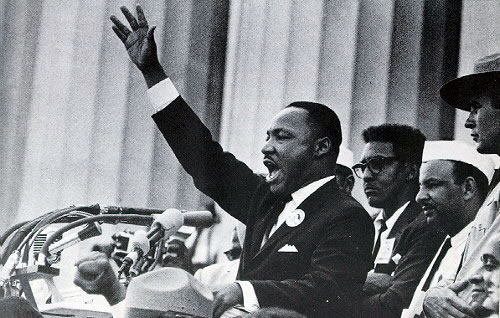
Martin Luther King Jr.'s "I Have a Dream Speech" is hands down one of the greatest, if not the greatest, pieces of oratory in American history. King's charisma, skills in rhetoric, and passion, place him in a league of his own. A century after slavery ended, a century after African-Americans were promised full equality, black children were being hosed down in the streets, spat upon, bused to separate schools, turned away from restaurants, and denied treatment as full human beings. In this midst of this egregious track record, Dr. King voiced a clear, compelling message of hope, a dream that things would not always be as they were, and that a new day was coming.
Many people have seen excerpts of the speech, but a surprisingly number of adults my age I have never sat down and watched the speech in its entirety. I challenge you to do just that. It is just as electrifying and moving today as it was in 1963.
I have a dream that one day down in Alabama, with its vicious racists, with its governor having his lips dripping with the words of interposition and nullification - one day right there in Alabama little black boys and black girls will be able to join hands with little white boys and white girls as sisters and brothers. I have a dream today. I have a dream that one day every valley shall be exalted, and every hill and mountain shall be made low, the rough places will be made plain, and the crooked places will be made straight, and the glory of the Lord shall be revealed and all flesh shall see it together. This is our hope. This is the faith that I go back to the South with. With this faith we will be able to hew out of the mountain of despair a stone of hope. With this faith we will be able to transform the jangling discords of our nation into a beautiful symphony of brotherhood. With this faith we will be able to work together, to pray together, to struggle together, to go to jail together, to stand up for freedom together, knowing that we will be free one day. This will be the day, this will be the day when all of God's children will be able to sing with new meaning "My country 'tis of thee, sweet land of liberty, of thee I sing. Land where my father's died, land of the Pilgrim's pride, from every mountainside, let freedom ring!"
Listen to the speech here .
November 19, 1863; Gettysburg, Pennsylvania
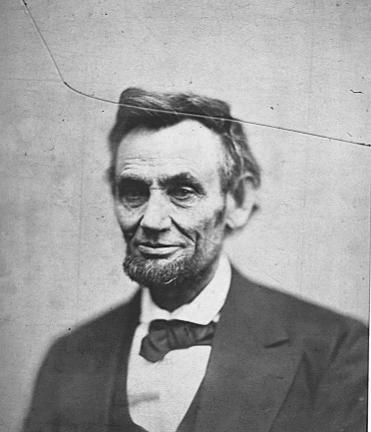
272 words. 3 minutes long. Yet, the Gettysburg Address is unarguably one of the greatest pieces of rhetoric in American history. Dr. J Rufus Fears (one of the great modern orators) argues that the Gettysburg Address, along with the Constitution and the Declaration of Independence, form the three founding documents of American freedom. And I have to agree.
The Battle of Gettysburg left 8,000 men dead. The bodies were too numerous to bury properly and many were at first placed in shallow graves. Weeks after the battle, heads and arms were sticking up through the ground and the smell of rotting flesh was sickening.
Money was raised for a proper reburial, and it was decided that the new cemetery should be dedicated, to sweeten the air of Gettysburg, to solemnize this place of death. As was traditional, a great orator, in this case, Edward Everett, was asked to give a solemn and grand speech as a memorial to the fallen men. Lincoln was asked 2 months later, almost as a causal afterthought. He was to add a few remarks to Everett's, a function much like the man with the ceremonial scissors who cuts the ribbon. Legends has it that Lincoln's remarks were the product of pure inspiration, penned on the back of an envelope on the train chugging its way to the soon-to-be hallowed grounds of Gettysburg.
On the day of the dedication, Everett kept the crowd enthralled for a full two hours. Lincoln got up, gave his speech, and sat down even before the photographer had finished setting up for a picture. There was a long pause before anyone applauded, and then the applause was scattered and polite.
Not everyone immediately realized the magnificence of Lincoln's address. But some did. In a letter to Lincoln, Everett praised the President for his eloquent and concise speech, saying, "I should be glad if I could flatter myself that I came as near to the central idea of the occasion, in two hours, as you did in two minutes."
And of course, in time, we have come to fully appreciate the genius and beauty of the words spoken that day. Dr. Fears argues that Lincoln's address did more than memorialize the fallen soldiers at Gettysburg; it accomplished nothing short of transforming the entire meaning of the Civil War. There were no details of the battle mentioned in the speech, no mentioning of soldier's names, of Gettysburg itself, of the South nor the Union, states rights nor secession. Rather, Lincoln meant the speech to be something far larger, a discourse on the experiment testing whether government can maintain the proposition of equality. At Gettysburg, the Constitution experienced a transformation. The first birth has been tainted by slavery. The men, of both North and South, lying in the graves at Gettysburg had made an atoning sacrifice for this great evil. And the Constitution would be reborn, this time living up to its promises of freedom and equality for all.
Four score and seven years ago our fathers brought forth on this continent, a new nation, conceived in liberty, and dedicated to the proposition that all men are created equal. Now we are engaged in a great civil war, testing whether that nation, or any nation so conceived and so dedicated, can long endure. We are met on a great battlefield of that war. We have come to dedicate a portion of that field, as a final resting place for those who here gave their lives that that nation might live. It is altogether fitting and proper that we should do this. But in a larger sense, we cannot dedicate - we cannot consecrate - we cannot hallow - this ground. The brave men, living and dead, who struggled here, have consecrated it, far above our poor power to add or detract. The world will little note, nor long remember, what we say here, but it can never forget what they did here. It is for us the living, rather, to be dedicated here to the unfinished work which they who fought here have thus far so nobly advanced. It is rather for us to be here dedicated to the great task remaining before us - that from these honored dead we take increased devotion to that cause for which they gave the last full measure of devotion - that we here highly resolve that these dead shall not have died in vain - that this nation, under God, shall have a new birth of freedom - and that government of the people, by the people, for the people, shall not perish from the earth.
Related Posts
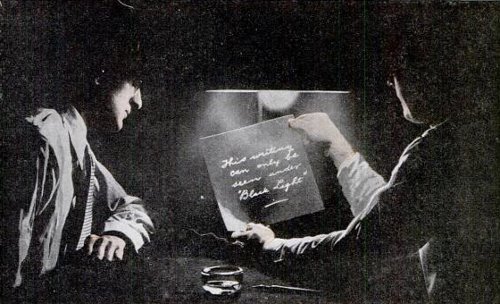

10 of the Most Famous and Inspirational Speeches from History
By Dr Oliver Tearle (Loughborough University)
What makes a great and iconic speech? There are numerous examples of brilliant orators and speechmakers throughout history, from classical times to the present day. What the best speeches tend to have in common are more than just a solid intellectual argument: they have emotive power, or, for want of a more scholarly word, ‘heart’. Great speeches rouse us to action, or move us to tears – or both.
But of course, historic speeches are often also associated with landmark, or watershed, moments in a nation’s history: when Churchill delivered his series of wartime speeches to Britain in 1940, it was against the backdrop of a war which was still in its early, uncertain stages. And when Martin Luther King stood in front of the Lincoln Memorial in 1963, he was addressing a crowd who, like him, were marching for justice, freedom, and civil rights for African Americans.
Let’s take a closer look at ten of the best and most famous speeches from great moments in history.
Abraham Lincoln, ‘ Gettysburg Address ’ (1863).
The Gettysburg Address is one of the most famous speeches in American history, yet it was extremely short – just 268 words, or less than a page of text – and Abraham Lincoln, who gave the address, wasn’t even the top billing .
The US President Abraham Lincoln gave this short address at the dedication of the Soldiers’ National Cemetery in Gettysburg, Pennsylvania on 19 November 1863. At the time, the American Civil War was still raging, and the Battle of Gettysburg had been the bloodiest battle in the war, with an estimated 23,000 casualties.
Lincoln’s speech has been remembered while Edward Everett’s – the main speech delivered on that day – has long been forgotten because Lincoln eschewed the high-flown allusions and wordy style of most political orators of the nineteenth century. Instead, he addresses his audience in plain, homespun English that is immediately relatable and accessible.
Sojourner Truth, ‘ Ain’t I a Woman? ’ (1851).
Sometimes known as ‘Ar’n’t I a Woman?’, this is a speech which Sojourner Truth, a freed African slave living in the United States, delivered in 1851 at the Women’s Convention in Akron, Ohio. The women in attendance were being challenged to call for the right to vote.
In her speech, Sojourner Truth attempts to persuade the audience to give women the vote . As both an ex-slave and a woman, Sojourner Truth knew about the plight of both groups of people in the United States. Her speech shows her audience the times: change is coming, and it is time to give women the rights that should be theirs.
John Ball, ‘ Cast off the Yoke of Bondage ’ (1381).
The summer of 1381 was a time of unrest in England. The so-called ‘Peasants’ Revolt’, led by Wat Tyler (in actual fact, many of the leaders of the revolt were more well-to-do than your average peasant), gathered force until the rebels stormed London, executing a number of high-ranking officials, including the Archbishop of Canterbury and Lord Chancellor, Simon Sudbury.
Alongside Tyler, the priest John Ball was an important leading figure of the rebellion. His famous couplet, ‘When Adam delved and Eve span, / Who was then the gentleman?’ sums up the ethos of the Peasants’ Revolt: social inequality was unheard of until men created it.
Winston Churchill, ‘ We Shall Fight on the Beaches ’ (1940).
Winston Churchill had only recently assumed the role of UK Prime Minister when he gave the trio of wartime speeches which have gone down in history for their rhetorical skill and emotive power. This, for our money, is the best of the three.
Churchill gave this speech in the House of Commons on 4 June 1940. Having brought his listeners up to speed with what has happened, Churchill comes to the peroration of his speech : by far the most famous part. He reassures them that if nothing is neglected and all arrangements are made, he sees no reason why Britain cannot once more defend itself against invasion: something which, as an island nation, it has always been susceptible to by sea, and now by air.
Even if it takes years, and even if Britain must defend itself alone without any help from its allies, this is what must happen. Capitulation to the Nazis is not an option. The line ‘if necessary for years; if necessary, alone’ is sure to send a shiver down the spine, as is the way Churchill barks ‘we shall never surrender!’ in the post-war recording of the speech he made several years later.
William Faulkner, ‘ The Agony and the Sweat ’ (1950).
This is the title sometimes given to one of the most memorable Nobel Prize acceptance speeches: the American novelist William Faulkner’s acceptance of the Nobel Prize for Literature at Stockholm in 1950.
In his speech, Faulkner makes his famous statement about the ‘duty’ of writers: that they should write about ‘the human heart in conflict with itself’, as well as emotions and themes such as compassion, sacrifice, courage, and hope. He also emphasises that being a writer is hard work, and involves understanding human nature in all its complexity. But good writing should also remind readers what humankind is capable of.
Emmeline Pankhurst, ‘ The Plight of Women ’ (1908).
Pankhurst (1858-1928) was the leader of the British suffragettes, campaigning – and protesting – for votes for women. After she realised that Asquith’s Liberal government were unlikely to grand women the vote, the Women’s Social and Political Union, founded by Pankhurst with her daughter Christabel, turned to more militant tactics to shift public and parliamentary opinion.
Her emphasis in this speech is on the unhappy lot most women could face, in marriage and in motherhood. She also shows how ‘man-made’ the laws of England are, when they are biased in favour of men to the detriment of women’s rights.
This speech was given at the Portman Rooms in London in 1908; ten years later, towards the end of the First World War, women over 30 were finally given the vote. But it would be another ten years, in 1928 – the year of Pankhurst’s death – before the voting age for women was equal to that for men (21 years).
Franklin Roosevelt, ‘ The Only Thing We Have to Fear Is Fear Itself ’ (1933).
This is the title by which Roosevelt’s speech at his inauguration in 1933 has commonly become known, and it has attained the status of a proverb. Roosevelt was elected only a few years after the Wall Street Crash of 1929 which ushered in the Great Depression.
Roosevelt’s famous line in the speech, which offered hope to millions of Americans dealing with unemployment and poverty, was probably inspired by a line from Henry David Thoreau, a copy of whose writings FDR had been gifted shortly before his inauguration. The line about having nothing to fear except fear itself was, in fact, only added into the speech the day before the inauguration took place, but it ensured that the speech went down in history.
Marcus Tullius Cicero, ‘ Among Us You Can Dwell No Longer ’ (63 BC).
Of all of the great classical orators, perhaps the greatest of all was the Roman statesman, philosopher, and speechmaker, Cicero (whose name literally means ‘chickpea’).
This is probably his best-known speech. At the Temple of Jupiter in Rome, Cicero addressed the crowd, but specifically directed his comments towards Lucius Catiline, who was accused of plotting a conspiracy to set fire to the capital and stage and insurrection. The speech was considered such a fine example of Roman rhetoric that it was a favourite in classrooms for centuries after, as Brian MacArthur notes in The Penguin Book of Historic Speeches .
Queen Elizabeth I, ‘ The Heart and Stomach of a King ’ (1588).
Queen Elizabeth I’s speech to the troops at Tilbury is among the most famous and iconic speeches in English history. On 9 August 1588, Elizabeth addressed the land forces which had been mobilised at the port of Tilbury in Essex, in preparation for the expected invasion of England by the Spanish Armada.
When she gave this speech, Elizabeth was in her mid-fifties and her youthful beauty had faded. But she had learned rhetoric as a young princess, and this training served her well when she wrote and delivered this speech (she was also a fairly accomplished poet ).
She famously tells her troops: ‘I know I have the body but of a weak and feeble woman; but I have the heart and stomach of a king, and of a king of England too’. She acknowledged the fact that her body was naturally less masculine and strong than the average man’s, but it is not mere physical strength that will win the day. It is courage that matters.
Martin Luther King, ‘ I Have a Dream ’ (1963).
Let’s conclude this selection of the best inspirational speeches with the best-known of all of Martin Luther King’s speeches. The occasion for this piece of oratorical grandeur was the march on Washington , which saw some 210,000 men, women, and children gather at the Washington Monument in August 1963, before marching to the Lincoln Memorial. King reportedly stayed up until 4am the night before he was due to give the speech, writing it out.
King’s speech imagines a collective vision of a better and more equal America which is not only shared by many Black Americans, but by anyone who identifies with their fight against racial injustice, segregation, and discrimination.
Discover more from Interesting Literature
Subscribe to get the latest posts sent to your email.
Type your email…
1 thought on “10 of the Most Famous and Inspirational Speeches from History”
- Pingback: Top Motivational Speeches That Shook the World - Kiiky
Comments are closed.
Subscribe now to keep reading and get access to the full archive.
Continue reading
- Best Fountain Pens
- How to Smoke a Cigar
- Best nerf guns for adults
- The best Netflix movies
- Best Ernest Hemingway books
10 famous speeches in history that continue to stand the test of time
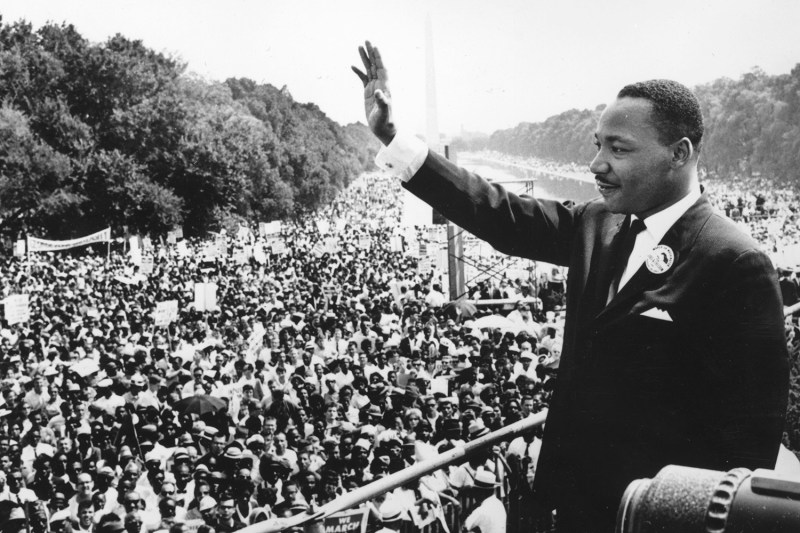
A great speech is something that combines persuasive writing, a comfort with public speaking , and a meaningful message to create an impression greater than the sum of its parts. There’s no one set of rules to govern the ideal speech, and plenty of people struggle with them even with teams of experts to help them out — just see the majority of speeches given by politicians. But once in a while, a truly great speaker and a truly great speech come together to create something that stands out and withstands the test of time, carrying meaning with it through generations even to those who weren’t yet born when it was given.
Martin Luther King, Jr.
Demosthenes, queen elizabeth i, george washington, abraham lincoln, chief joseph, winston churchill, john f. kennedy, barack obama, more famous speeches to inspire you.
Great speeches are more than just rhetorical flourish or impressive performance — they’re also calls to action, able to persuade and embolden the listener. These speeches can be inspiring, informative, and instructive, whether you’re interested in learning more about history or working on a speech of your own .
We’ve rounded up 10 of history’s greatest speeches, including excerpts so you can learn about how the power of a great speech can last for years.
1963 ‘I Have a Dream’ speech
The Reverend Martin Luther King, Jr. ‘s I Have a Dream speech, delivered on August 28, 1963, is one of the finest pieces of oratory in human history. It blended masterful, rich language with the oratorical technique of repetition and it was utterly fearless.
King would be dead by an assassin’s bullet less than five years after delivering his most famous speech. His words were no mere rhetoric; they were an affirmation of the value of human life and the expression of a cause for which he would give his own.
“I say to you today, my friends, so even though we face the difficulties of today and tomorrow, I still have a dream. It is a dream deeply rooted in the American dream. I have a dream that one day this nation will rise up and live out the true meaning of its creed, ‘We hold these truths to be self-evident, that all men are created equal’ … “I have a dream that my four little children will one day live in a nation where they will not be judged by the color of their skin but by the content of their character.”
341 BCE ‘Third Philippic’
Though you may not have heard of the Athenian orator Demosthenes, consider the fact that one of history’s most famed speakers of all time, Cicero, cited his ancient forebear 300 years later. Demosthenes’ Third Philippic , so-called because it was the third speech he gave devoted to convincing his fellow Athenians to take up arms against the encroaching forces of Phillip of Macedon, literally led men to war. At the end of his speech, delivered in 341 BCE, the Athenian Assembly moved at once against their rival, spurred on by lines damning the past inaction of his fellow citizens:
“You are in your present plight because you do not do any part of your duty, small or great; for of course, if you were doing all that you should do, and were still in this evil case, you could not even hope for any improvement. As it is, Philip has conquered your indolence and your indifference; but he has not conquered Athens. You have not been vanquished, you have never even stirred.
1588 ‘Spanish Armada’ speech t o the troops at Tilbury
In 1588, English monarch Queen Elizabeth I gave one of the manliest speeches in history, even at one point, putting down her own body for being female. As the “mighty” Spanish Armada, a flotilla of some 130 ships, sailed toward Britain with plans of invasion, the queen delivered a rousing address at Tilbury, Essex, England. As it turned out, a storm and some navigational errors took care of the Spanish warships for the most part. Still, it was a bold speech that helped bolster a nation. This speech also made Queen Elizabeth famous for the armor she wore in front of her troops.
“I am come amongst you, as you see, at this time, not for my recreation and disport, but being resolved, in the midst and heat of the battle, to live and die amongst you all; to lay down for my God, and for my kingdom, and my people, my honour and my blood, even in the dust. I know I have the body but of a weak and feeble woman; but I have the heart and stomach of a king, and of a king of England too, and think foul scorn that Parma or Spain, or any prince of Europe, should dare to invade the borders of my realm: To which rather than any dishonour shall grow by me, I myself will take up arms, I myself will be your general, judge, and rewarder of every one of your virtues in the field.”
1783 Resignation speech
To grasp the true power of George Washington ‘s resignation as the commander-in-chief of the U.S. military (then known as the Continental Army) on December 23, 1783, you have to go beyond the words themselves and appreciate the context. Washington was in no way obliged to resign his commission, but did so willingly and even gladly, just as he would later refuse a third term as president of the nation, establishing a precedent honored into the 1940s and thereafter enshrined in law. Despite being the most powerful man in the fledgling military and then becoming the most powerful man in the United States, the staid and humble Washington was never hungry for power for himself; he just happened to be the best man for the job(s).
Even in his last address as leader of the nation’s armed forces, Washington made it all about America, and not about himself:
“Happy in the confirmation of our Independence and Sovereignty, and pleased with the opportunity afforded the United States of becoming a respectable Nation, I resign with satisfaction the Appointment I accepted with diffidence. A diffidence in my abilities to accomplish so arduous a task, which however was superseded by a confidence in the rectitude of our Cause, the support of the Supreme Power of the Union, and the patronage of Heaven.”
1863 ‘Gettysburg Address’
There’s a reason many people consider the Gettysburg Address to be the best speech in American history: It probably is. In just 275 words on November 19, 1863, near Gettysburg, Pennsylvania, President Abraham Lincoln managed to express the following sentiments:
- America is both a place and a concept, both of which are worth fighting.
- Fighting is horrible, but losing is worse.
- We have no intention of losing.
Ironically, one line in Lincoln’s speech proved to be laughably inaccurate. Midway through the speech, he humbly said: “The world will little note, nor long remember what we say here.” In fact, the world continues to remember his brief yet very stirring address.
“In a larger sense, we cannot dedicate, we cannot consecrate — we cannot hallow — this ground. The brave men, living and dead, who struggled here have consecrated it far above our poor power to add or detract …
“It is for us the living, rather, to be dedicated here to the unfinished work which they who fought here have thus far so nobly advanced. It is rather for us to be here dedicated to the great task remaining before us; that from these honored dead we take increased devotion to that cause for which they here gave the last full measure of devotion; that we here highly resolve that these dead shall not have died in vain; that this nation, under God, shall have a new birth of freedom, and that government of the people, by the people, for the people, shall not perish from the Earth.”
1877 Surrender speech
On October 5, 1877, Nez Perce tribe leader Chief Joseph delivered a short, impromptu, and wrenching speech that many see as the lamentation of the end of an era for Native Americans and the lands that were stolen from them. Overtaken by the United States Army during a desperate multi-week retreat toward Canada, Chief Joseph surrendered to General Howard with this bleak, moving message:
“I am tired of fighting. Our chiefs are killed. Looking Glass is dead. Toohoolhoolzote is dead. The old men are all dead. It is the young men who say, ‘yes’ or ‘no.’ He who led the young men [Olikut] is dead. It is cold, and we have no blankets. The little children are freezing to death. My people, some of them, have run away to the hills, and have no blankets, no food. No one knows where they are — perhaps freezing to death. I want to have time to look for my children and see how many of them I can find. Maybe I shall find them among the dead. Hear me, my chiefs! I am tired. My heart is sick and sad. From where the sun now stands I will fight no more forever.”
1939 ‘Luckiest Man’ speech
No one wants a deadly disease named after them, but that’s what happened to baseball legend Lou Gehrig , who died at 37 after a brief battle with ALS, commonly known as “Lou Gehrig’s disease.” Following a career in which the Hall of Fame player earned many of baseball’s top honors and awards, Gehrig delivered one of the most touching speeches of the 20th century, a speech in which he brought comfort to those mourning his illness even as his health fell apart.
In essence, Gehrig told people not to worry about one dying man, but instead to celebrate all life had to offer as he listed all the wonderful things that occurred in his own life. In so doing, he brought solace to many and created a model of selflessness. Gehrig delivered this short speech at Yankee Stadium on July 4, 1939.
“Fans, for the past two weeks you have been reading about a bad break. Yet today I consider myself the luckiest man on the face of the earth. I have been in ballparks for 17 years and have never received anything but kindness and encouragement from you fans … “So I close in saying that I may have had a tough break, but I have an awful lot to live for.”
1940 ‘We Shall Fight on the Beaches’ speech
Winston Churchill delivered many superlative speeches in his day, including the 1946 address that created the term “Iron Curtain” to describe the boundary of Britain’s recent ally, the Soviet Union, and a 1940 speech praising the heroism of the British Royal Air Force in which he uttered the line: “Never was so much owed by so many to so few.”
But it was his bold and bolstering speech delivered on June 4, 1940, to the British Parliament’s House of Commons — commonly referred to as We Shall Fight on the Beaches — that most exemplifies the famed leader. These were more than just words — these were a promise to his nation that they were all in the fight wholeheartedly together and it was a heads-up to the Axis powers that attacking the Brits had been a bad idea.
“We shall go on to the end, we shall fight in France, we shall fight on the seas and oceans, we shall fight with growing confidence and growing strength in the air, we shall defend our Island, whatever the cost may be, we shall fight on the beaches, we shall fight on the landing grounds, we shall fight in the fields and in the streets, we shall fight in the hills; we shall never surrender.”
1961 inaugural address
Much of President John F. Kennedy ‘s pithy 1,366-word inaugural address, delivered on January 20, 1961, was well-written and meaningful, but as often happens, his speech has stood the test of time thanks to one perfect phrase. Amidst an address filled with both hope and dire warnings (“Man holds in his hands the power to abolish all forms of human poverty and all forms of human life,” the latter being a clear reference to atomic weapons), he issued a direct appeal to Americans everywhere to stand up for their country. You know the line:
“And so, my fellow Americans: Ask not what your country can do for you — ask what you can do for your country. My fellow citizens of the world: Ask not what America will do for you, but what together we can do for the freedom of man.”
2004 Democratic National Convention keynote address
When our future president – then a candidate for the U.S. Senate in Illinois – Barack Obama delivered a 17-minute speech on the evening of July 27, 2004, at the Democratic National Convention endorsing presidential candidate John Kerry, the personal trajectory of one man and the history of an entire nation shifted dramatically. Already an up-and-coming politician gaining traction in his home state of Illinois, Obama’s keynote address that night transformed him into a national figure and paved the way for his journey to becoming the first POTUS of color. What was it about the speech that so moved the country?
Partly, it was simply the excellent writing, most of which Obama handled himself. Perhaps more so, it was the message of the speech, which spoke to the “abiding faith in the possibilities of this nation.” In short, Obama reminded us of who we were supposed to be as citizens of this nation. And for a flickering moment, many of us heard him.
“There’s not a liberal America and a conservative America; there’s the United States of America. There’s not a Black America and white America and Latino America and Asian America; there’s the United States of America … “We are one people, all of us pledging allegiance to the stars and stripes, all of us defending the United States of America. In the end, that’s what this election is about. Do we participate in a politics of cynicism, or do we participate in a politics of hope?”
While we’ve taken an in-depth look at some of history’s most famous speeches, the list goes much further than those 10. Here are a few more great speeches that helped shape history that still have the power to inspire.
- 1941 – President Franklin Delano Roosevelt – Day of Infamy speech – Roosevelt’s address to Congress on December 8, 1941, came the day after the attack on Pearl Harbor. It’s best known for its opening line: “Yesterday, December 7, 1941 – a date which will live in infamy – the United States of America was suddenly and deliberately attacked by naval and air forces of the Empire of Japan.” The speech spurred Congress to declare war on Japan and thrust the U.S. into World War II.
- 1933 – President Franklin Delano Roosevelt – First Inaugural Address – Considering FDR served four terms during the end of the Great Depression and through World War II, it stands to reason that he would have some pretty famous speeches. His first inaugural address from 1933 is also remembered for one powerful line. As he discussed his plan to pull the country out of the Great Depression, he uttered this iconic line: “So, first of all, let me assert my firm belief that the only thing we have to fear is … fear itself.”
- 1986 – President Ronald Reagan – Address to the Nation on the Explosion of the Space Shuttle Challenger – when Reagan addressed the country on the night of January 28, 1986, the U.S. was reeling from seeing the Space Shuttle Challenger explode, just seconds after launch, killing the crew, which included Christa McAuliffe, who was to be NASA’s first teacher in space. Reagan was to have delivered his State of the Union speech to Congress that night but canceled it in the wake of the Challenger disaster. The speech included these memorable words of condolence: “We will never forget them, nor the last time we saw them, this morning, as they prepared for their journey and waved goodbye and ‘slipped the surly bonds of earth’ to ‘touch the face of God.'”
- 2001 – President George W. Bush – Address to the nation after 9/11 – The morning of September 11, 2001, Bush was at a Florida elementary school to meet with children. He would have no idea that the day would end with him addressing the country after the horrific terrorist attacks that brought down the World Trade Center and damaged the Pentagon. That night, Bush gave the country words of hope, saying that the attacks did nothing to damage the American spirit. “Today, our fellow citizens, our way of life, our very freedom came under attack in a series of deliberate and deadly terrorist acts,” Bush said. “The pictures of airplanes flying into buildings, fires burning, huge structures collapsing, have filled us with disbelief, terrible sadness, and a quiet, unyielding anger. These acts of mass murder were intended to frighten our nation into chaos and retreat. But they have failed; our country is strong.”
We hope you’re feeling more inspired and determined to make your own history after perusing this list. For more historical inspiration, check out ten of our favorite Black History films , a list of fantastic history books to read , a group of iconic photographs of people who changed history , and seven amazing books documenting LGBTQ+ history — not to mention the importance of historical heroes who have been often overlooked . However you intend to change your present and future, we wish you nothing but the best of luck.
Editors’ Recommendations
- The 10 best Hugh Jackman movies of all time
- The 5 best Super Bowl commercials of all time (and the 4 worst)
- 2024 Oscars nominations: The 10 biggest snubs (it’s not just Barbie)
- From college to the barbershop, here are the 10 best Simpsons episodes of all time, ranked
- Famous last words from the most badass men of history

Alright, fellas, gather 'round and listen up. Golf Pride is bringing back a real classic — the V55 Heritage grip — and this time, it's available in both corded and rubber options.
That's right; you can relive the glory days of the V55 with the grip that's been trusted by champions and amateurs alike for years. But there's a catch: It's only available for a limited time.
It used to be you didn't want to click on an email or link because it was a scammer pretending to be a prince trying to give away their money. Now, you never know if the meme or video you are about to click on is going to be someone trolling you into hearing Rick Astley's 1987 hit Never Gonna Give You Up. If you haven't been Rickrolled yet, tell us your secret. Embracing the iconic nature of the song, Rick Astley re-recorded the jam, but with a twist aimed at bringing awareness to a good cause.
There's animation, then there's Pixar. The animation studio owned by Disney revolutionized computer-generated entertainment in the late 1990s, and it has never looked back since. While Disney is known for bringing magic to the movie screen, Pixar's thematically rich stories and ultra-fleshed-out characters transcend the medium, making critics aware of the greatness that lies within CGI imagery. Pixar's reputation relied more on creativity and abstract, yet relatable concepts in its early years, while it's resided on the sequel content more in recent times. Whether you like one of the company's franchises or its standalone films more, you've surely been touched by the ethereal and effervescent style of Pixar. Here are the 10 best Pixar movies, ranked.
- Consumer Many large companies fail to provide sufficient information about their products and services. We bridge this gap by conducting in-depth research to address your unanswered questions
- Collectibles
The 10 Most Important and Influential Speeches in History
- by history tools
- May 25, 2024
Throughout history, the spoken word has demonstrated a remarkable power to inspire change, influence minds, and shape the course of human events. While countless speeches have been delivered over the centuries, a select few stand out as pivotal turning points that defined an era and left an indelible mark. What sets these speeches apart is a combination of the historic significance of when they were given, the rhetorical brilliance of the speaker, and the lasting impact of their message.
As a historian, I‘ve analyzed hundreds of notable speeches, and in my expert opinion, these are ten of the most important and influential in world history:
1. Pericles‘ Funeral Oration (431 BC)
Pericles, the famed Athenian statesman, delivered this classic oration near the end of the first year of the Peloponnesian War. Honoring soldiers who had died defending the city-state against Sparta, Pericles used the occasion to champion Athenian democracy and ideals.
In the speech, he extolled the unique virtues of Athens, praising its system of government, glorious achievements, and the unflinching bravery of its citizens. "Our constitution does not copy the laws of neighboring states," Pericles declared. "We are rather a pattern to others than imitators ourselves."
Pericles‘ oration exemplifies the political rhetoric of ancient Greece. Its influence endures to the present day, with many scholars regarding it as a masterpiece of persuasive speaking. The speech itself is also a valuable historical source documenting the Athenian self-image and value system during the classical era.
2. Pope Urban II‘s Speech at the Council of Clermont (1095)
Pope Urban II‘s fiery sermon at the Council of Clermont launched the First Crusade and initiated centuries of religiously-motivated conflict. Speaking to a large crowd of French clergymen and nobles, Urban called for Christians across Europe to take up arms, travel to the Holy Land, and liberate Jerusalem from Muslim rule.
Urban‘s speech was a masterful work of persuasion. He painted vivid pictures of Christians being tortured and holy places desecrated. He promised spiritual rewards for those who took up the cause. "All who die by the way, whether by land or by sea… shall have immediate remission of sins," he proclaimed. Thousands responded to Urban‘s call, setting off a major historical chain reaction.
The crusades had profound and far-reaching consequences for relations between the Christian and Muslim worlds that reverberate to this day. Urban‘s speech thus stands as an enormously influential example of the power of rhetoric to inspire action on a mass scale.
3. Martin Luther‘s Speech at the Diet of Worms (1521)
In 1521, German monk and reformer Martin Luther was summoned before the Diet of Worms and ordered to recant his famous 95 theses criticizing practices of the Catholic Church. In a dramatic moment, Luther refused to back down, declaring "Here I stand, I can do no other, so help me God. Amen."
As a key figure in the Protestant Reformation, Luther‘s act of defiance was enormously significant. His speech crystalized his challenge to papal authority and defense of the primacy of individual conscience and scriptural interpretation. Soon after, Luther was excommunicated and his writings banned, but the wheels of the Reformation were already in motion.
Luther‘s bold stand inspired others to break with the Church and join the growing reform movement. Within a few decades, Protestantism had spread across much of northern Europe, fundamentally altering the religious landscape and course of Western civilization. The echoes of Luther‘s forceful words continue to shape Christian thought and identity to the present.
4. Patrick Henry‘s "Give Me Liberty or Give Me Death" Speech (1775)
With revolution brewing in the American colonies, Virginia statesman Patrick Henry delivered this rousing call to arms at the Second Virginia Convention in Richmond. As debates raged over whether to organize a militia to resist British rule, Henry argued forcefully in favor of preparing for war.
Henry‘s speech is renowned for its ardent, uncompromising language and palpable sense of urgency. "The battle, sir, is not to the strong alone; it is to the vigilant, the active, the brave," Henry proclaimed. His speech built to a stirring crescendo with its immortal closing lines: "Is life so dear, or peace so sweet, as to be purchased at the price of chains and slavery? Forbid it, Almighty God! I know not what course others may take; but as for me, give me liberty or give me death!"
Henry‘s impassioned words helped carry the day, with the convention voting to organize a militia. His speech exemplified the revolutionary fervor and rhetoric of the American patriots and has endured as shorthand for the founding generation‘s commitment to the cause of independence.
5. Frederick Douglass‘ "What to the Slave is the Fourth of July?" Speech (1852)
Delivered to a large anti-slavery gathering in Rochester, New York, this powerful speech by abolitionist leader and former slave Frederick Douglass held a mirror to America‘s glaring hypocrisy on issues of race and freedom. Speaking on July 5th, Douglass used Independence Day as a vehicle to highlight the evils of slavery and the nation‘s failure to extend liberty to all.
With biting irony, Douglass asked "What have I, or those I represent, to do with your national independence? Are the great principles of political freedom and of natural justice, embodied in that Declaration of Independence, extended to us?" He went on to catalog slavery‘s horrors in excruciating detail.
Douglass‘ speech was a masterclass in moral rhetoric and a searing indictment of American society. It exemplified Douglass‘ skill as an orator and the uncompromising nature of his advocacy. Douglass‘ words contributed to the rising anti-slavery sentiment in the years before the Civil War and remain startlingly relevant to this day as the nation still grapples with living up to its founding creed.
6. Abraham Lincoln‘s Gettysburg Address (1863)
On November 19, 1863, at the dedication of a cemetery for Union soldiers killed in the Battle of Gettysburg, President Abraham Lincoln delivered a speech for the ages. In just 272 words, Lincoln encapsulated the very meaning of the Civil War and the promise of America‘s founding ideals.
Lincoln‘s masterful use of parallelism and repetition emphasized his key themes of equality, freedom, and democratic government. "We here highly resolve that these dead shall not have died in vain," Lincoln intoned, "that this nation, under God, shall have a new birth of freedom—and that government of the people, by the people, for the people, shall not perish from the earth."
The Gettysburg Address redefined the American experiment and crystalized the higher purpose behind the Union cause. It stands as perhaps the most iconic distillation of American values ever uttered. Lincoln‘s words not only consecrated the sacrifice of the fallen soldiers but with soaring, poetic language, held out the promise of a "new birth of freedom" for the nation. The speech endures as a north star, guiding Americans to live up to their highest ideals.
7. Emmeline Pankhurst‘s "Freedom or Death" Speech (1913)
As a leader of the British women‘s suffrage movement in the early 20th century, Emmeline Pankhurst was instrumental in the campaign to secure women the right to vote. Her 1913 speech in Hartford, Connecticut defended the increasingly militant tactics adopted by suffragettes and laid bare the stakes of the struggle.
Pankhurst described the humiliating and often brutal treatment suffragettes endured in their fight for equality. "Where peaceful means had failed, revolutionary means must be applied," she declared. In explaining their resolve, she avowed "We will put the enemy in the position where they will have to choose between giving us freedom or giving us death."
Pankhurst‘s speech exemplified the ferocity and commitment of the suffragettes and the hardships they were willing to endure in pursuit of their righteous cause. Her words helped galvanize support for women‘s suffrage on both sides of the Atlantic. In 1918, Britain granted some women the right to vote, though full voting equality wasn‘t achieved until 1928, shortly after Pankhurst‘s death.
8. Winston Churchill‘s "We Shall Fight on the Beaches" Speech (1940)
In the early days of World War II, as a German invasion of Britain appeared imminent, Prime Minister Winston Churchill delivered a defiant address to Parliament that embodied the fighting spirit of the nation. Churchill‘s soaring rhetoric and vow to never surrender in the face of Nazi aggression rallied the British people.
Churchill‘s mastery of language and ability to connect with his audience were on full display. "We shall defend our Island, whatever the cost may be," he thundered, "we shall fight on the beaches, we shall fight on the landing grounds, we shall fight in the fields and in the streets, we shall fight in the hills; we shall never surrender."
The speech was a crucial moment for Churchill and for Britain. It aimed to boost morale, stiffen resolve, and signal defiance to the enemy. Radio broadcasts spread Churchill‘s words across the globe, with the speech becoming an iconic symbol of British courage and perseverance in their "finest hour." Historians widely regard it as a decisive moment that helped turn the tide of the war.
9. Jawaharlal Nehru‘s "Tryst with Destiny" Speech (1947)
On the eve of India‘s independence from Britain in August 1947, the country‘s first Prime Minister Jawaharlal Nehru delivered this historic address to the nation. Against the backdrop of the partitioning of India and Pakistan, Nehru used the occasion to reflect on India‘s long freedom struggle and share his vision for the country‘s future.
"Long years ago, we made a tryst with destiny," Nehru began, referring to India‘s centuries-long subjugation, "and now the time comes when we shall redeem our pledge." He spoke of India‘s great contributions to world civilization and the challenges that lay ahead in fighting poverty, inequality, and disease.
The speech is renowned for its poetic language and the sense of history being made. Nehru‘s words captured the profound emotions and aspirations of the world‘s largest democracy at its birth. With radio carrying his speech across the subcontinent, Nehru‘s address was a defining statement of Indian identity, purpose, and resolve. It reverberates as a touchstone in India to this day.
10. Martin Luther King Jr.‘s "I Have a Dream" Speech (1963)
On August 28, 1963, at the March on Washington for Jobs and Freedom, Dr. Martin Luther King Jr. delivered a speech for the ages. Speaking to a massive crowd from the steps of the Lincoln Memorial, King‘s address was a defining moment of the American civil rights movement and an iconic call for justice and equality.
King‘s mastery of language and delivery, his use of metaphor and historical and religious allusions, all created an unforgettable impact. He used a phrase from a traditional hymn to express his stirring vision in terms that still resound: "I have a dream that one day this nation will rise up and live out the true meaning of its creed: ‘We hold these truths to be self-evident, that all men are created equal.‘"
The televised speech reached a vast audience and contributed to the groundswell of support for civil rights legislation. King‘s words gave voice to the hopes and dreams of generations who had suffered discrimination and oppression. Today, the speech endures as one of the most recognizable and quoted in American history, and continues to inspire those fighting for social justice.
Metrics and data on selected speeches:
| Speech | Audience Size | Contemporaneous Media Coverage |
|---|---|---|
| "I Have a Dream" speech | -250,000 in person -TV audience: 40 million | -Front page headlines in newspapers nationwide – Lead story on network TV news |
| Gettysburg Address | -15,000-20,000 in person | -Printed in newspapers nationwide -Mixed reviews, with some criticizing speech as inadequate |
| "We Shall Fight on the Beaches" speech | -Parliament in person – Radio broadcast to millions | -Printed in newspapers nationwide -Excerpts published internationally -Elevated Churchill‘s stature |
- Foner, E. (2014). Give Me Liberty!: An American History. W. W. Norton & Company.
- Garrow, D. J. (1986). Bearing the Cross: Martin Luther King, Jr., and the Southern Christian Leadership Conference. William Morrow & Co.
- Hansen, D. D. (2003). The Dream: Martin Luther King, Jr., and the Speech that Inspired a Nation. Ecco.
- Keegan, J. (1989). The Second World War. Viking.
- Manchester, W. & Reid, P. (2012). The Last Lion: Winston Spencer Churchill: Defender of the Realm, 1940-1965. Little, Brown and Company.
In summary, each of these speeches stands as a turning point in history – through the power of their language, the passion of their delivery, and the lasting significance of their message. From ancient times to the modern era, they exemplify the vital role of oratory in shaping human events. While only a sample of history‘s most important addresses, these speeches had an outsized impact in defining their times and continue to resonate long after their echoes faded away. As a historian, I believe studying the context and impact of these pivotal moments of eloquence and persuasion provides invaluable insight into the tides of history and the human condition.
Related posts:
- 10 Profound Quotes About Knowledge From History‘s Greatest Minds
- 10 Empowering Quotes About Motivation From Eminent Figures Throughout History
- Uncovering Russia‘s Overlooked Democratic Legacy
- Riches to Ruins: The History of London from the Romans to the Great Fire
- A Regal Legacy: 10 Iconic Pieces from the Royal Ceremonial Dress Collection That Showcase the Evolution of Royal Fashion
- Wrapped Up: The Fascinating History and Evolution of Condoms
- The Most Expensive Historical Items Ever Sold at Auction: A Historian‘s Perspective
- 10 Extraordinary Love Stories That Changed History
For full functionality of this site it is necessary to enable JavaScript. Click here for instructions on how to enable JavaScript in your web browser.
Influential Speeches
- CommonLit is a nonprofit that has everything teachers and schools need for top-notch literacy instruction: a full-year ELA curriculum, benchmark assessments, and formative data. Browse Content Who We Are About
This site uses cookies to improve user experience. By continuing to browse, you accept the use of cookies and other technologies.
10 Famous Speeches That Shaped History
These powerful speeches continue to linger in the public imagination.
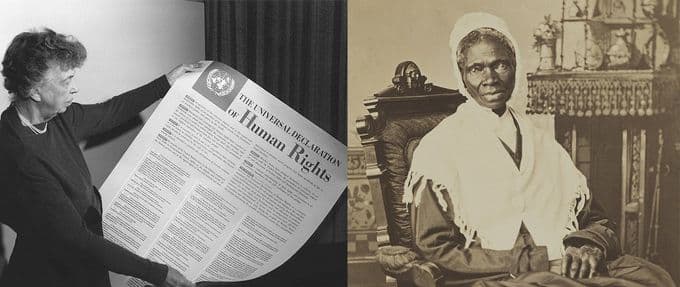
- Photo Credit: Wikipedia
The best speeches have left a mark on society for generations. They reshaped our world, held us accountable, and inspired us to rise against all odds and achieve great things. These speeches transcend time and place, offering wisdom that stirs souls long after the original speakers have been silenced.
A speech can be charismatic and still lack true meaning, but truly great oratories appeal to the audience's hearts, minds, and values. These speeches rise above the rest both because of the passion with which they were delivered, and the very words themselves. Here, we’ve rounded up eight powerful speeches that captured important historical moments and have proven unforgettable.
Dust off exclusive book deals and tales from the past when you join The Archive 's newsletter.
“ain’t i a woman”, sojourner truth, 1851.
Born into slavery in 1797, Sojourner Truth became a well-known abolitionist and women’s rights activist. She delivered this powerful speech at the 1851 Women’s Rights Convention held in Akron, Ohio. In it, she laid bare the double standards facing Black women, who were often pushed to the side when it came to conversations about racism and sexism. Her speech received greater publicity during the Civil War, when several different versions were circulated by feminists and abolitionists.
Related: Deepen Your Knowledge of the Past With 8 of the Most Influential Books in History
“That man over there says that women need to be helped into carriages, and lifted over ditches, and to have the best place everywhere. Nobody ever helps me into carriages, or over mud-puddles, or gives me any best place! And ain't I a woman? Look at me! Look at my arm! I have ploughed and planted, and gathered into barns, and no man could head me! And ain't I a woman? I could work as much and eat as much as a man - when I could get it - and bear the lash as well! And ain't I a woman?”
“When They Go Low, We Go High”
Michelle obama, 2016.
Michelle Obama uttered her now-famous catchphrase at the 2016 Democratic National Convention, when speaking in support of Hillary Clinton’s bid for the presidency. She was referring to the importance of setting a good example for your children and the next generation by staying true to your values and not stooping to the level of those who would demean you. It's a message that's more important than ever in the age of Internet mud-slinging.
“Our motto is: when they go low, we go high. With every word we utter, with every action we take, we know our kids are watching us. We as parents are their most important role models. Let me tell you, Barack and I take that same approach to our jobs as President and First Lady because we know that our words and actions matter, not just to our girls but the children across this country.”
"I Have a Dream"
Dr. martin luther king jr., 1963.
One of the greatest speeches in American history is Martin Luther King's "I Have a Dream" speech, which was delivered on August 28, 1963 on the steps of the Lincoln Memorial in Washington, D.C. In it, he advocated for an end to racism in prose that continues to strike people’s hearts to this day.
Related: 16 Books About MLK That Reveal the Man Behind the Civil Rights Icon
King—a staunch social activist and Baptist minister—was arguably the most prominent leader of the American Civil Rights Movement of the 50s and 60s. King's speech brought into focus the injustice of racial inequality and police brutality in America. He delivered this speech to over 250,000 civil rights supporters. By the mid-1960s, both the Civil Rights Act and the Voting Rights Act were enacted in part due to King's words and actions.
"I have a dream that my four children will one day live in a nation where they will not be judged by the color of their skin but by the content of their character."
The Farewell Address
George washington, 1796.
During George Washington’s time as commander-in-chief of the Continental Army, and later as the first president of the United States, he wielded a lot of power. He could have managed to overtake control of the nation, much like the king from whom the fledgling nation was determined to break free, and the world was watching to see what would happen.
Related: General George Washington: Before the Presidency
Instead, his modest resignation from his post as the commander-in-chief of the American military in 1783 strengthened the foundation of the republic, and his refusal to accept a third term as president of the nation established a precedent that was later enshrined into law. In the now-famous farewell address that he penned when he stepped down from the presidency, Washington discussed the importance of unity and checks and balances, and warned against the dangers of political factions and despotism.
"However [political factions] may now and then answer popular ends, they are likely in the course of time and things, to become potent engines, by which cunning, ambitious, and unprincipled men will be enabled to subvert the power of the people and to usurp for themselves the reins of government..."
"Tear down this wall!"
Ronald reagan, 1987.
The Berlin Wall divided East and West Germany into two different nations; one ruled by democracy and one by communism. Echoing many leaders in the international community, President Ronald Reagan demanded that General Secretary of the Communist Party of the Soviet Union Mikhail Gorbachev aid in reunifying Germany.
Related: The Best Presidential Biographies For History Buffs
Reagan delivered his speech when the Cold War was at its peak, and his advisors feared his address would anger the Soviet leader. But the President gave his speech nonetheless. Reagan’s words received little attention at the time, but when the Cold War ended a few years later it became one of the most well-known speeches by an American president.
“General Secretary Gorbachev, if you seek peace, if you seek prosperity for the Soviet Union and Eastern Europe, if you seek liberalization: Come here to this gate! Mr. Gorbachev, open this gate! Mr. Gorbachev, tear down this wall!”
"I Am Prepared to Die"
Nelson mandela, 1964.
Nelson Mandela is one of the most controversial and loved figures in history. His speech " I Am Prepared to Die" defined South African democracy. Mandela delivered his three-hour-long address from the defendant dock to testify while addressing the charges that faced him as a result of his fight against South Africa's apartheid. Although his words did not save him from being convicted, his powerful speech struck the minds of the people listening, and it stimulated unrest in the South African people.
Related: Recharge with 10 Books About Inspirational People
Mandela was imprisoned for 27 years, but his speech and courage were vital in demolishing the apartheid system in his country. He was later released in 1990, won the Nobel Peace Prize in 1993, and became the country's first black head of state and the first leader to be elected in a fully representative democratic election.
"I have cherished the ideal of a democratic and free society in which all persons live together in harmony and with equal opportunities. It is an ideal which I hope to live for and to achieve. But if needs be, it is an ideal for which I am prepared to die.”
Address to The United Nations On the Universal Declaration of Human Rights
Eleanor roosevelt, 1948.
As the wife of President Franklin D. Roosevelt, Eleanor Roosevelt was America's First Lady for 12 years. She was described as a dedicated humanitarian and activist throughout her life. After the death of her husband, she was appointed the first U.S delegate to the United Nations by President Harry S. Truman. Eleanor Roosevelt achieved her life's most remarkable work when she drafted and presented the Universal Declaration of Human Rights.
Related: The Fascinating Platforms of 10 First Ladies
The cruelties of World War II inspired the declaration, whose purpose was to ensure that such tragic human rights abuses would not happen again. The most translated document globally, the Universal Declaration of Human Rights lays out the rights and freedoms of all human beings. Roosevelt was instrumental in the adoption of the document, and she explained its significance in a passionate 1948 address to the United Nations.
“At a time when there are so many issues on which we find it difficult to reach a common basis of agreement, it is a significant fact that 58 states have found such a large measure of agreement in the complex field of human rights. This must be taken as testimony of our common aspiration...to lift men everywhere to a higher standard of life and to a greater enjoyment of freedom. Man’s desire for peace lies behind this Declaration.”
Inaugural Address
John f. kennedy, 1961.
On January 20, 1961, John F. Kennedy was sworn in as the 35th president of the United States. His pithy inaugural address on that day was well-written and meaningful, and it has become one of the most famous speeches by an American leader. JFK's speech was a call to service for the "new generation Americans - born in this century, tempered by war, disciplined by a hard and bitter peace, proud of our ancient heritage." He issued a direct appeal to American citizens to stand up for their nation at the height of the Cold War and a time of great social change.
"And so, my fellow Americans: Ask not what your country can do for you – ask what you can do for your country. My fellow citizens of the world: Ask not what America will do for you, but what together we can do for the freedom of man."
"We Shall Fight On The Beaches"
Winston churchill, 1940.
"We shall fight on the beaches" is the popular title given to the speech delivered by British Prime Minister Winston Churchill to the House of Commons of the UK’s Parliament on June 4, 1940. He gave this speech around the time when Nazi Germany was invading many countries in Europe. In it, Churchill declared that British troops “shall go on to the end” in the face of Nazi aggression.
Related: Inspiring Winston Churchill Quotes That Will Help You Maintain a Stiff Upper Lip
With the threat of a Nazi invasion forthcoming, Churchill promised his nation would fight, alone if need be, and remain resilient. His words were designed to prompt a sense of security in the British people and inspire British troops, without which history would have been different. This strong speech was not just crucial for Churchill but also for the international stage, with America yet to enter the war.
“We shall fight on the beaches, we shall fight on the landing grounds, we shall fight in the fields and in the streets, we shall fight in the hills; we shall never surrender...”
Democratic National Convention Keynote Address
Barack obama, 2004.
Rising political star Barack Obama was just a candidate for the United States Senate when he gave the keynote address at the Democratic National Convention on July 27, 2004. However, his speech left a mark in the history of America. At the time, Obama was an upcoming politician gaining popularity in the state of Illinois. His speech that day paved the way for him to become the first Black President of the United States. But why did his address have so much significance?
First of all, it was the quality of the writing, which Obama himself handled. Secondly, it was the message of the keynote address; he reminded Americans of what they had in common rather than their differences.
"Now even as we speak, there are those who are preparing to divide us...Well, I say to them tonight, there's not a liberal America and a conservative America; there's the United States of America. There's not a Black America and white America and Latino America and Asian America; there's the United States of America."
Get historic book deals and news delivered to your inbox
© 2024 OPEN ROAD MEDIA
- We are a participant in the Amazon Services LLC Associates Program, an affiliate advertising program designed to provide a means for us to earn fees by linking to Amazon.com and affiliated sites.



























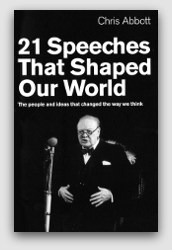
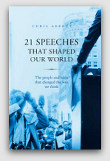

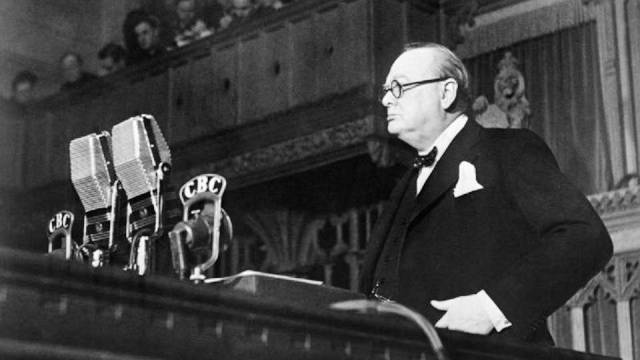
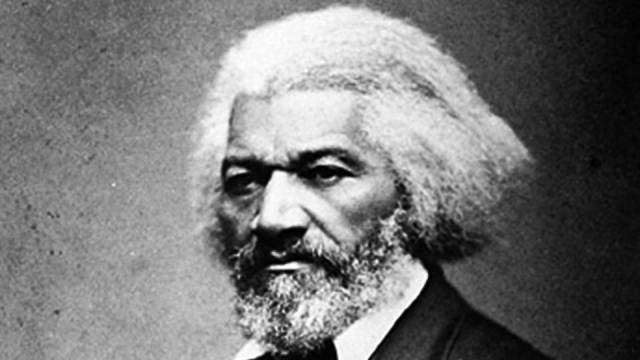
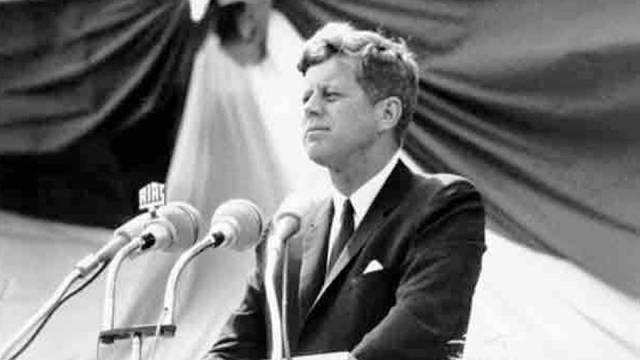
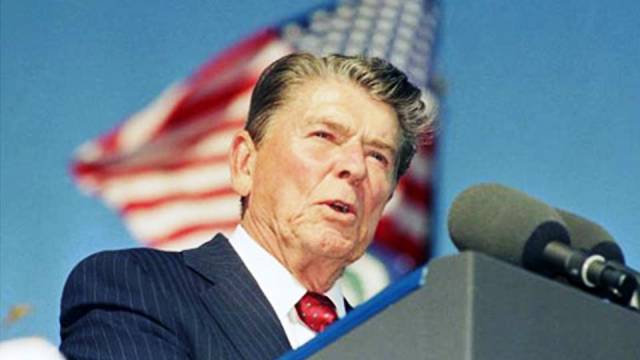
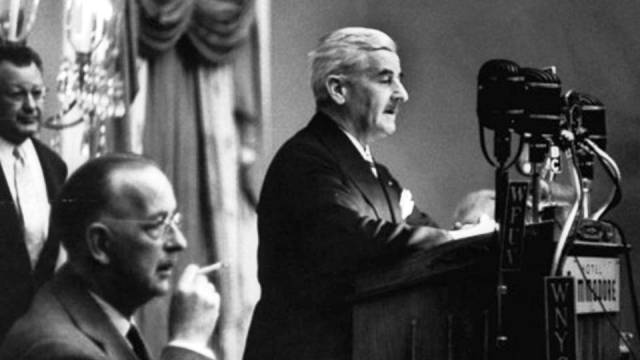
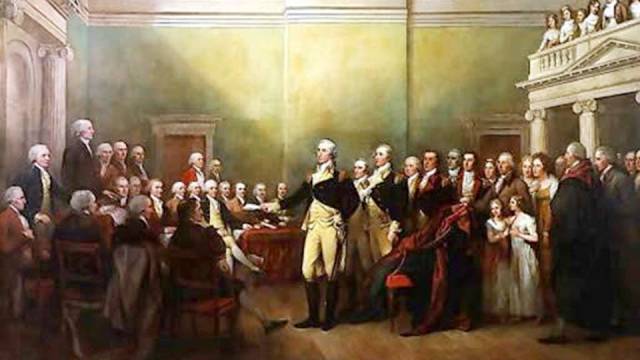
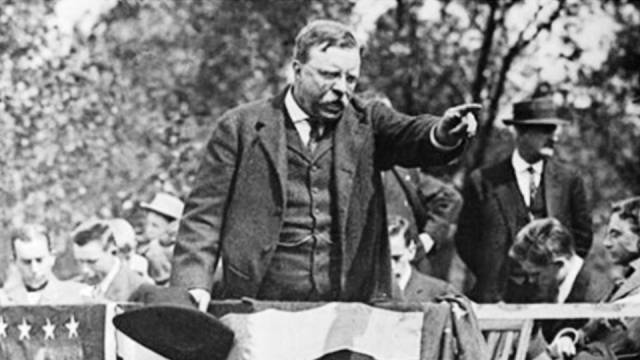
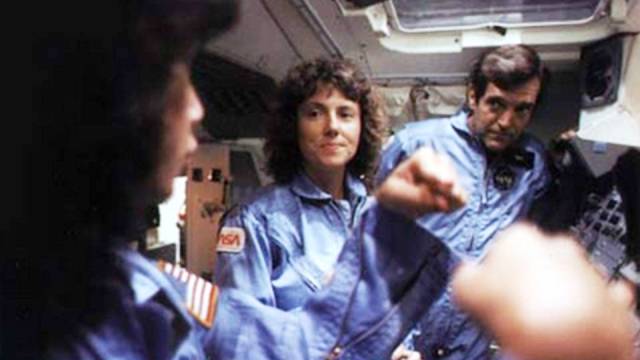
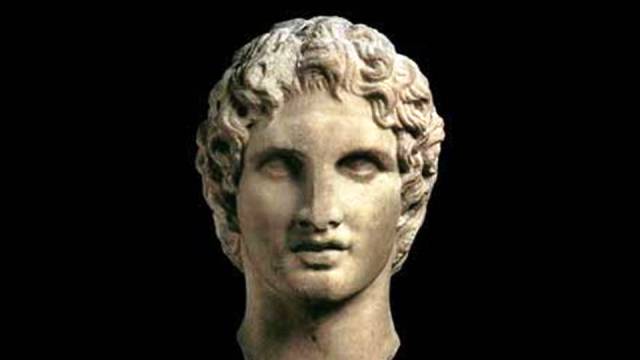
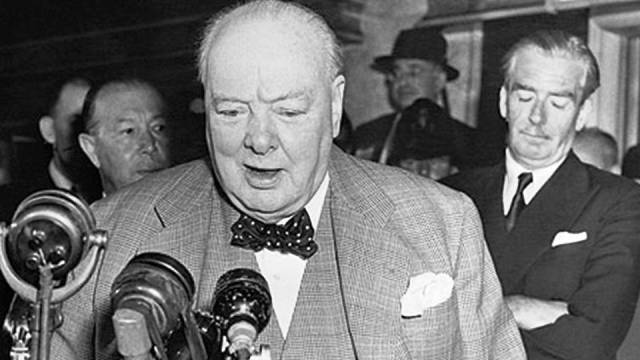
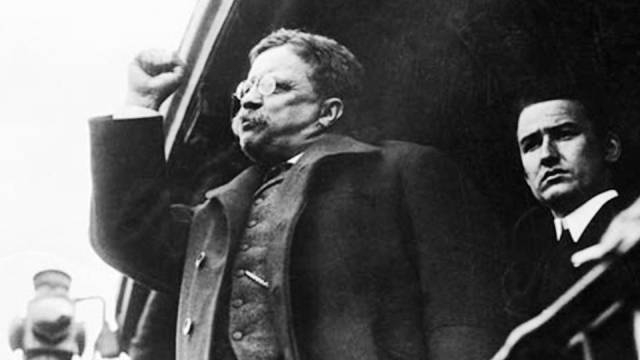
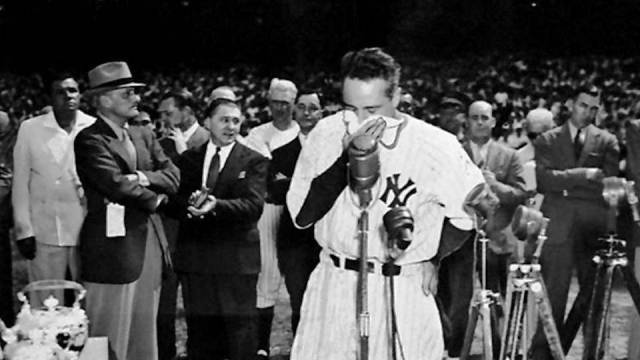
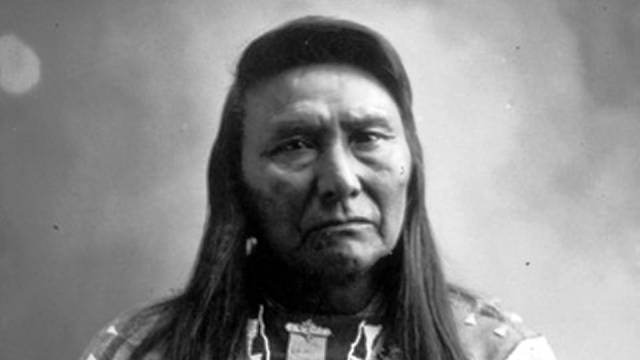
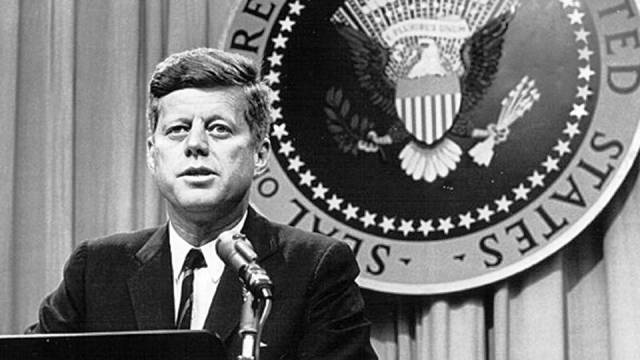
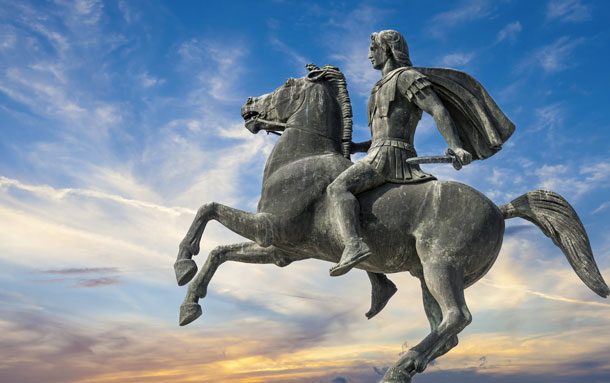
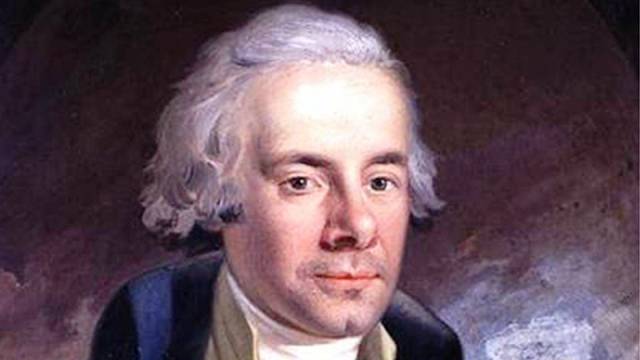
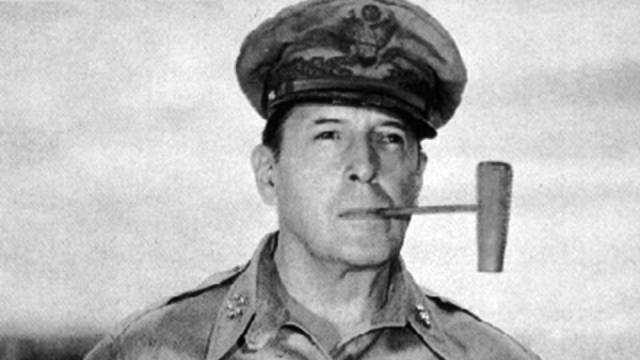
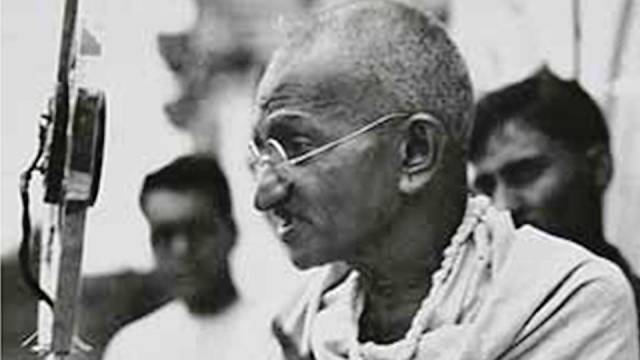
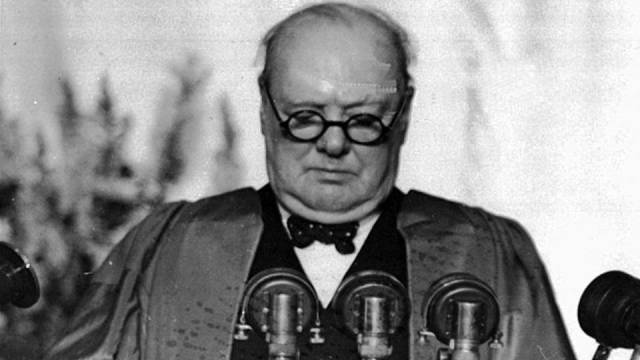
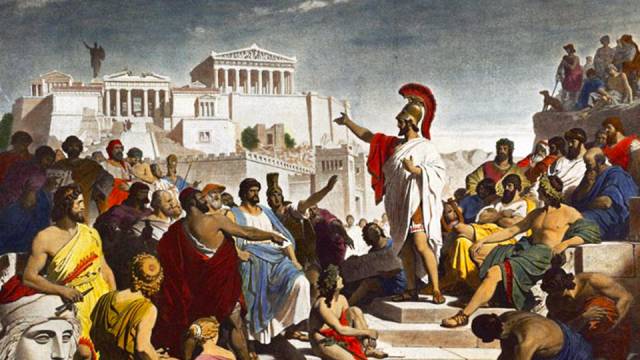
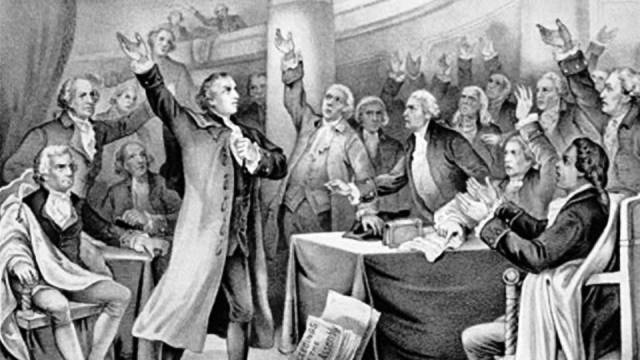
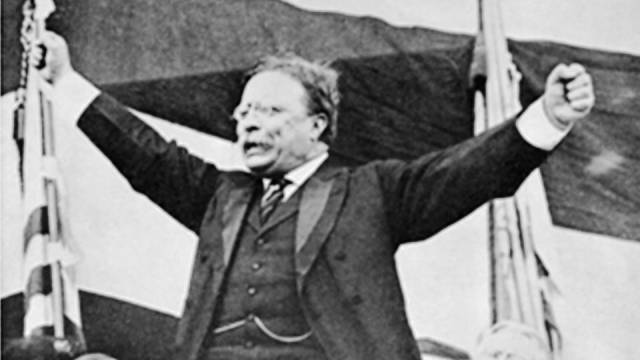
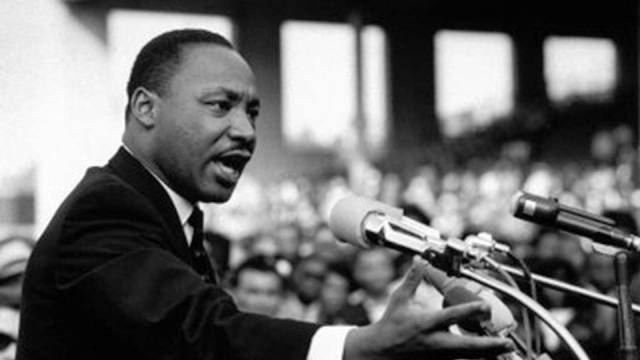
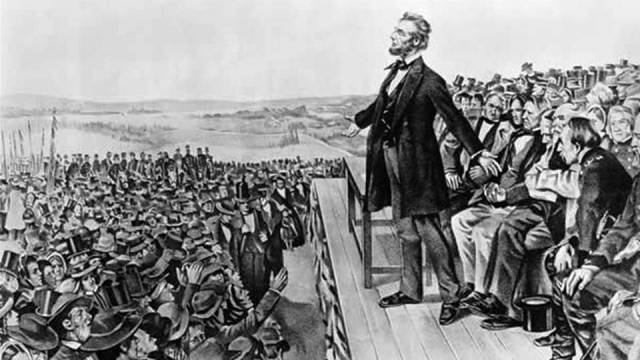
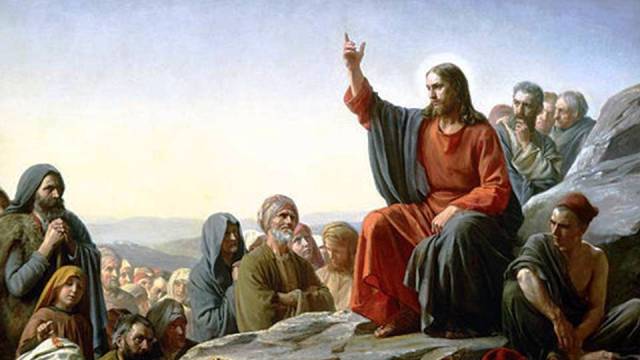











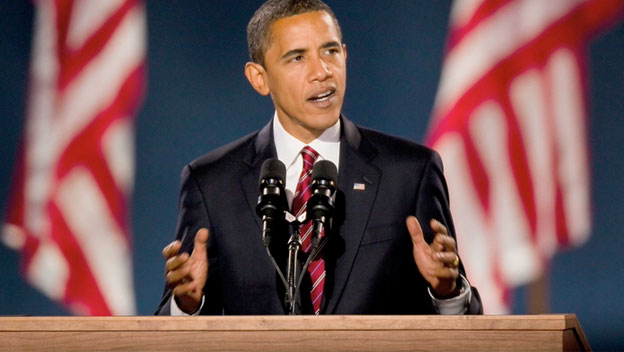
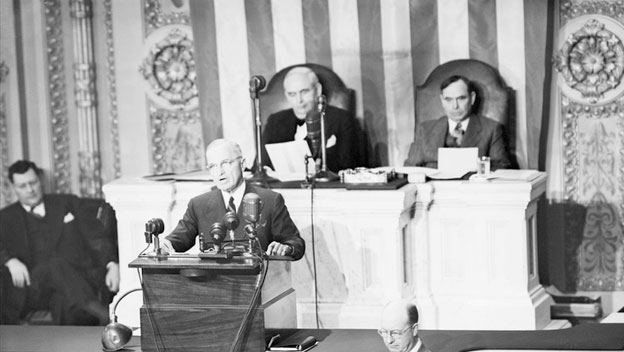
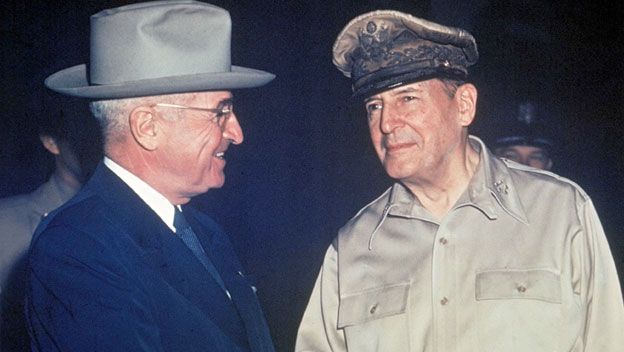
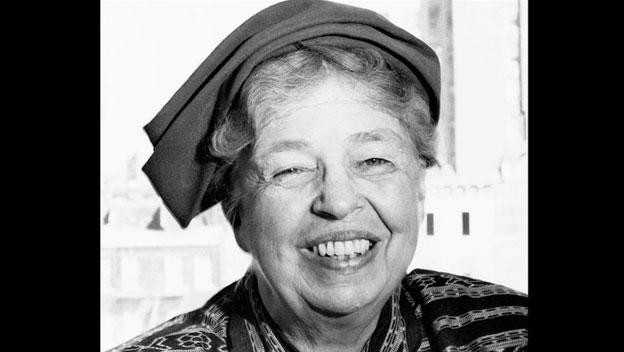



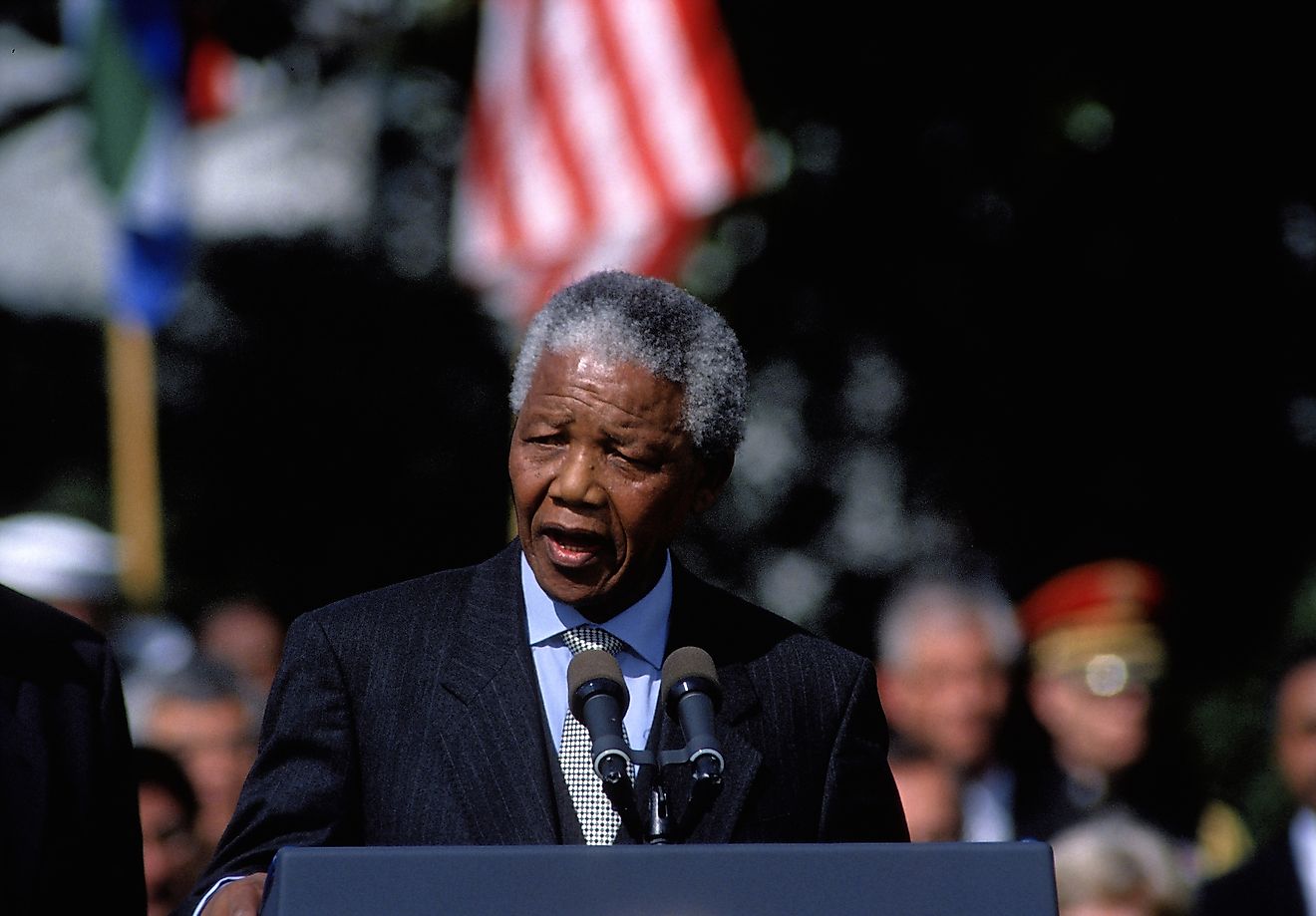
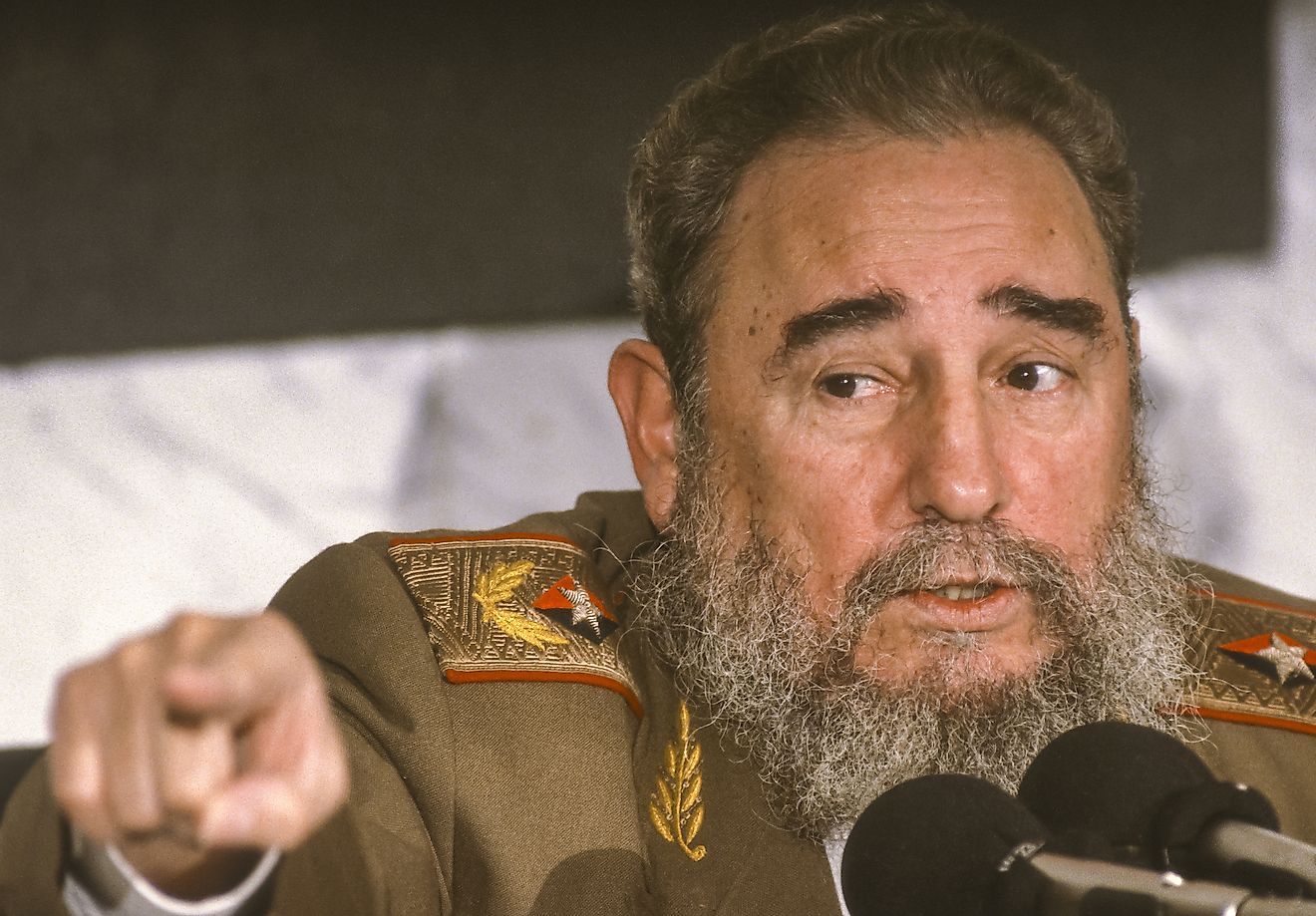
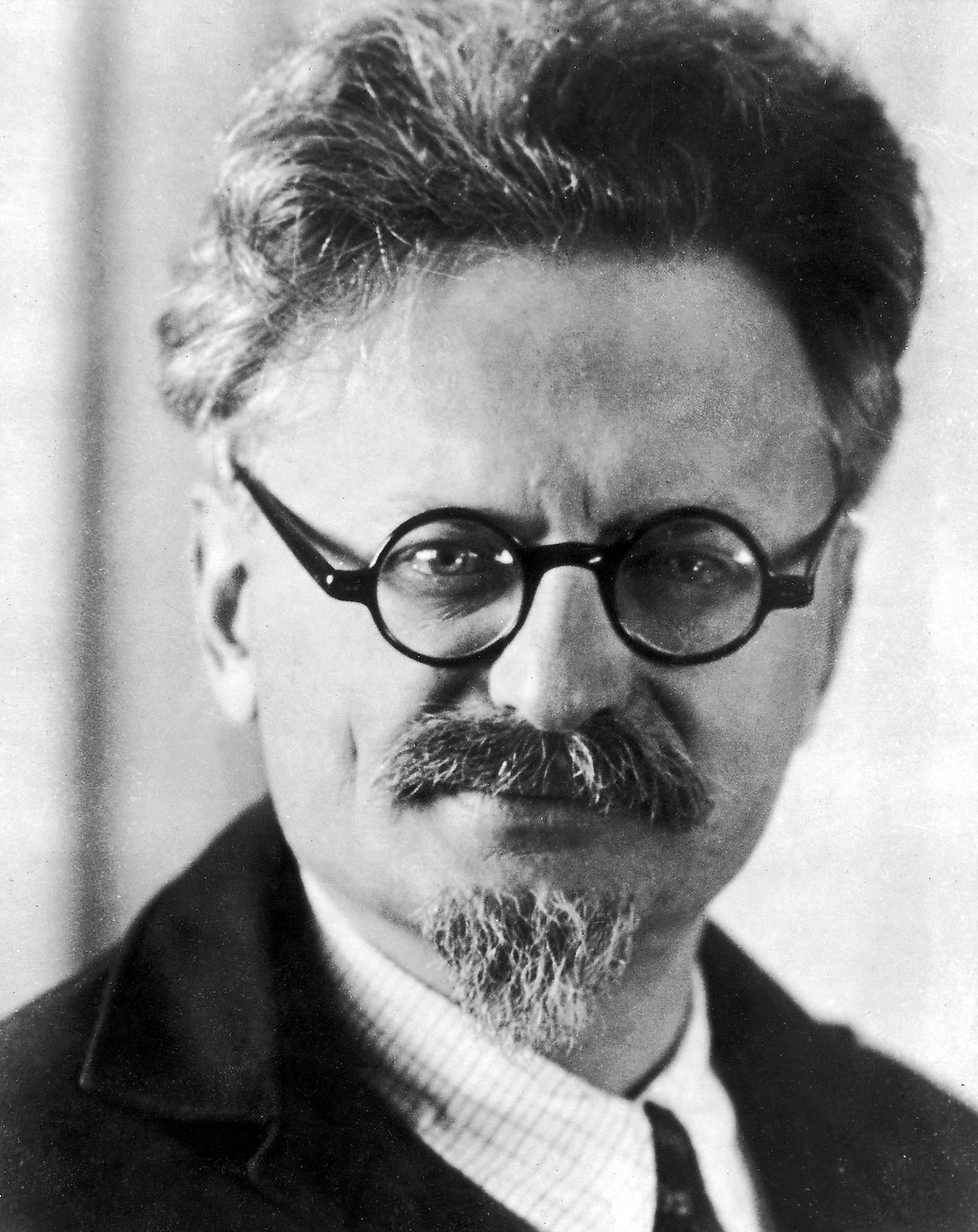
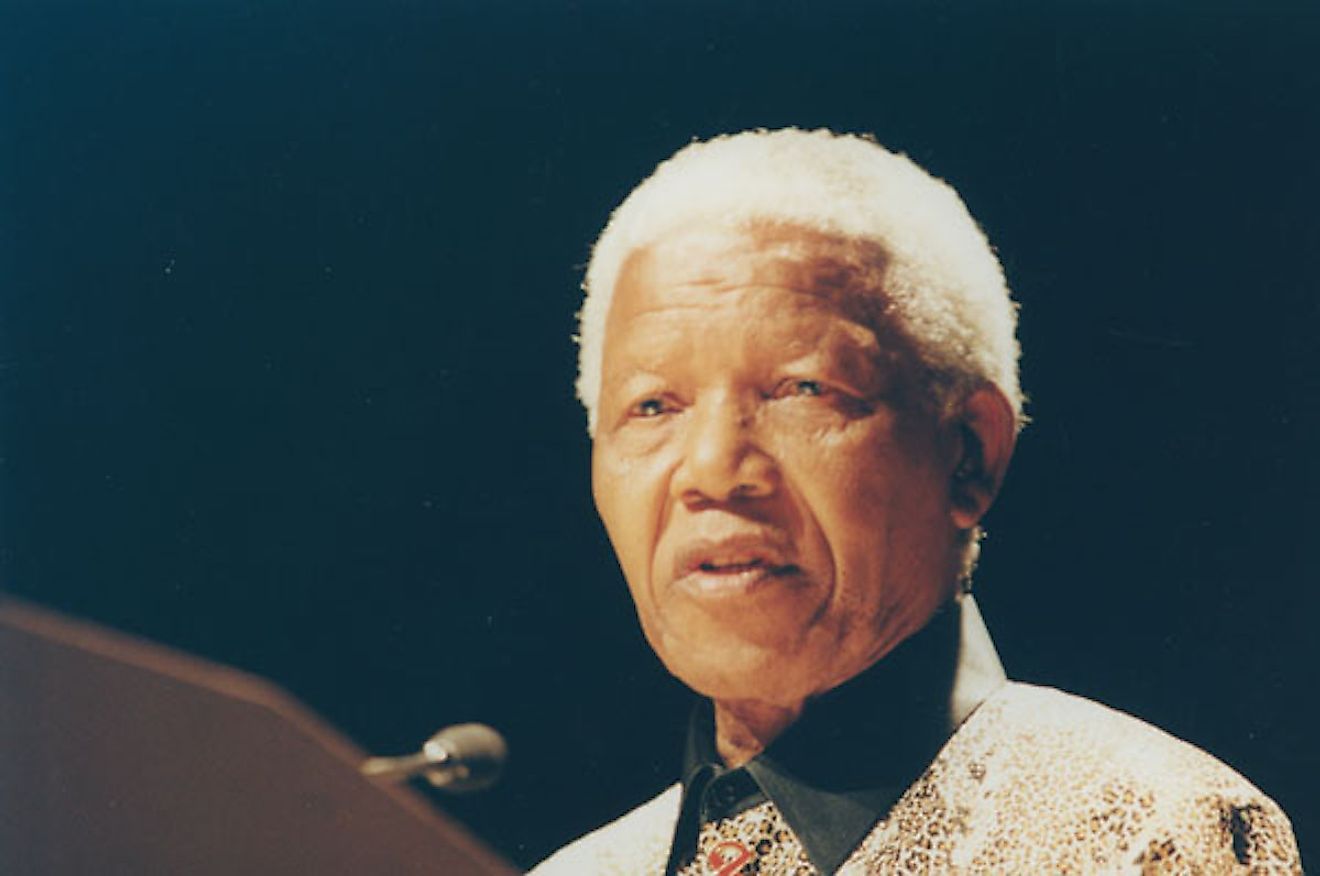
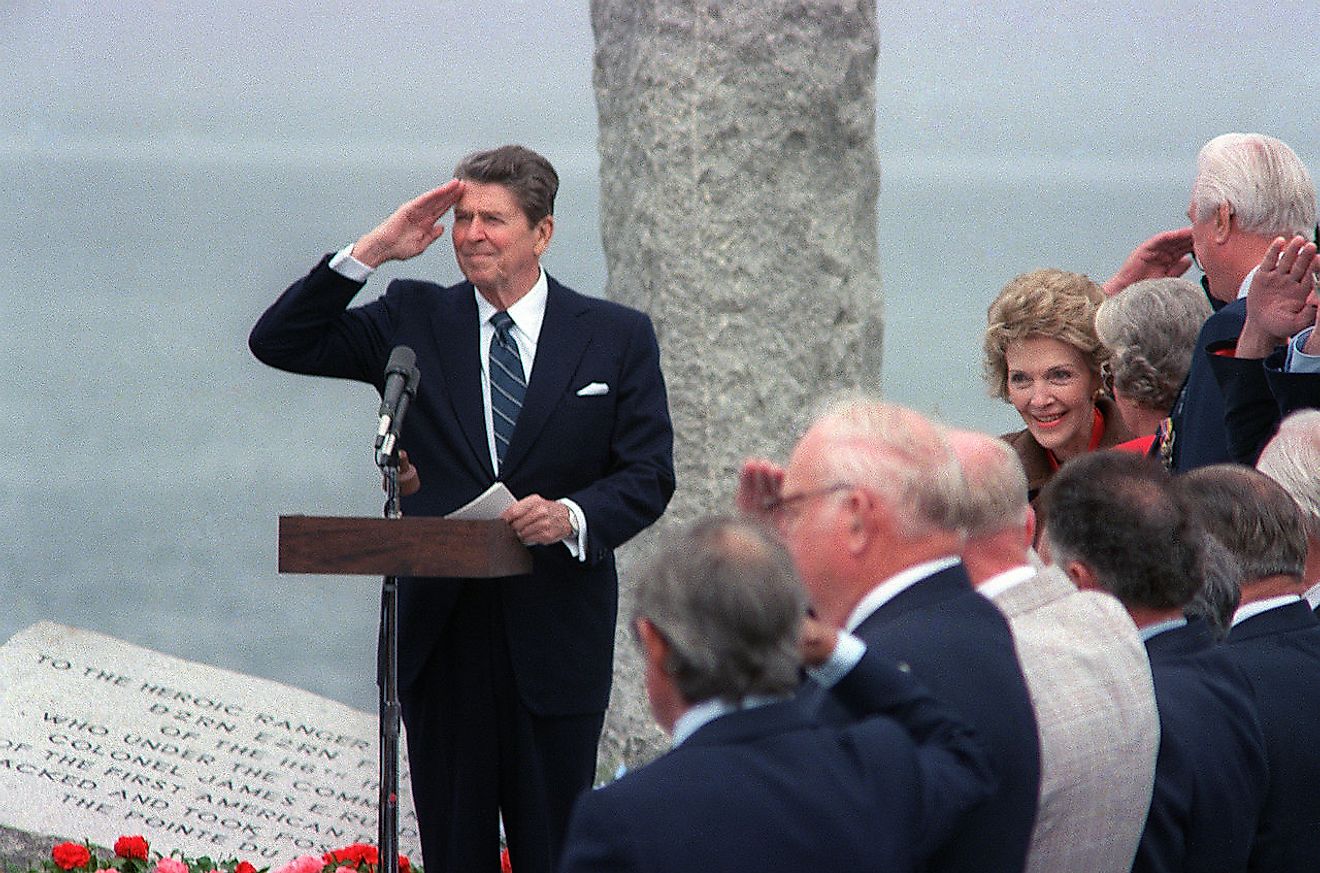
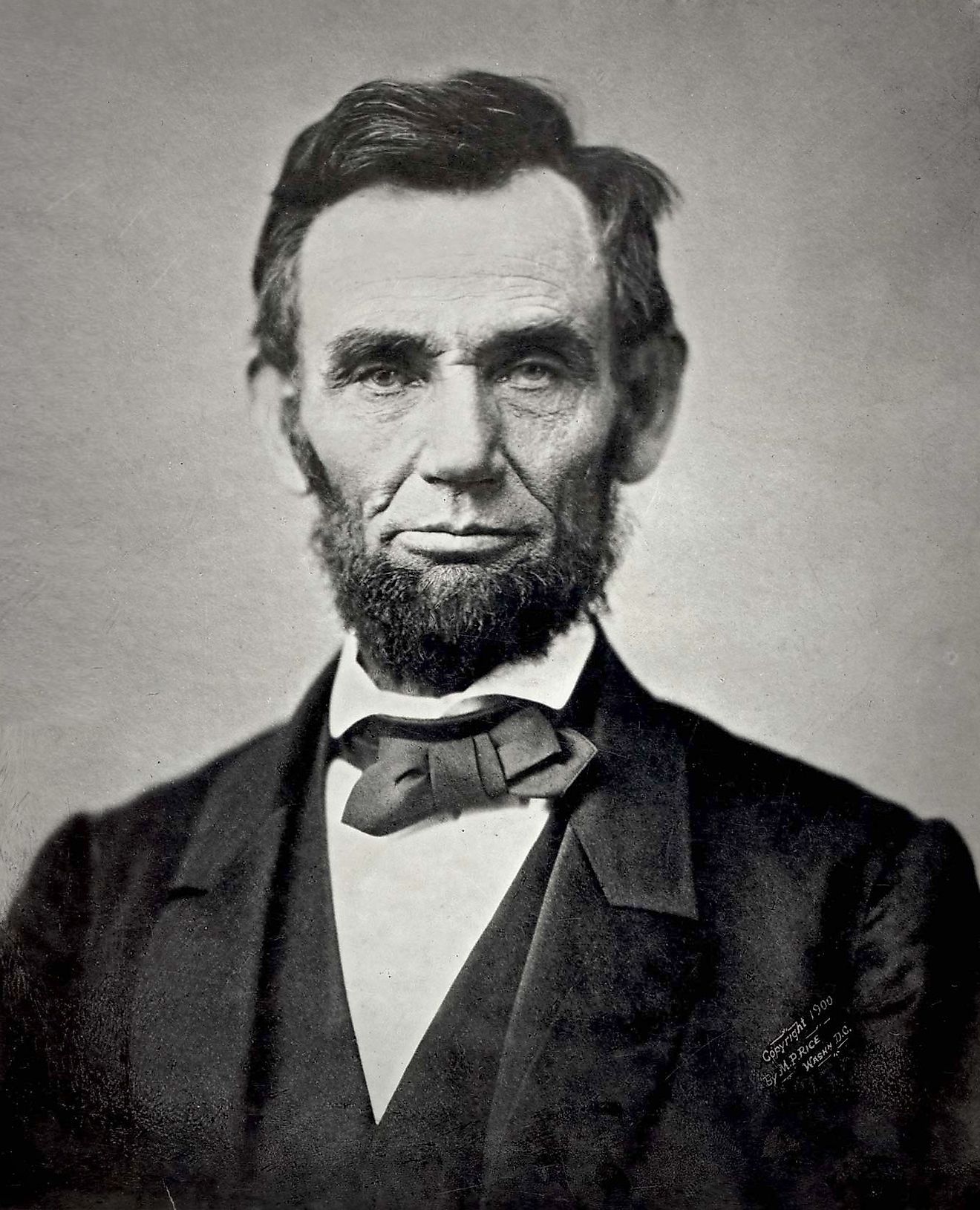
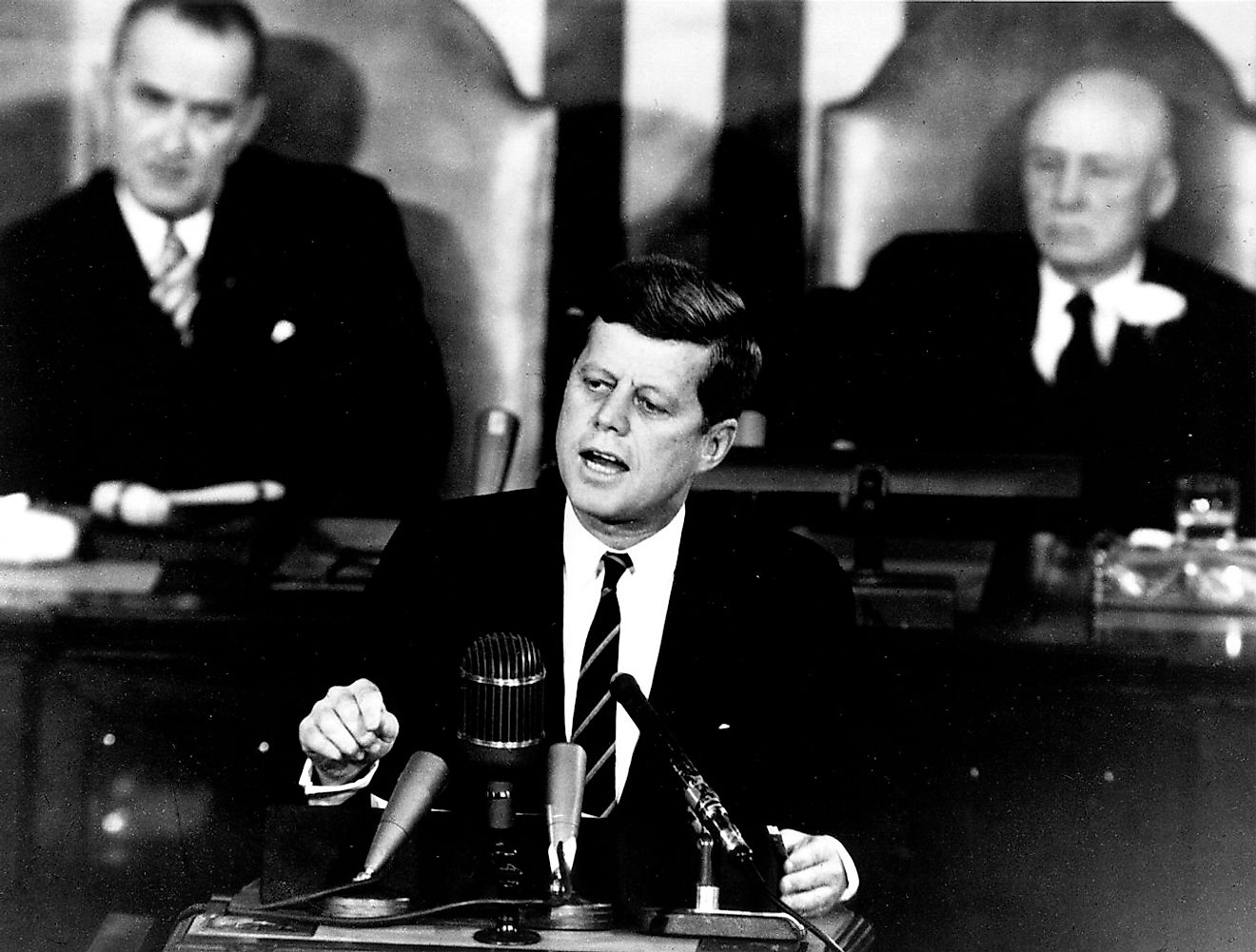
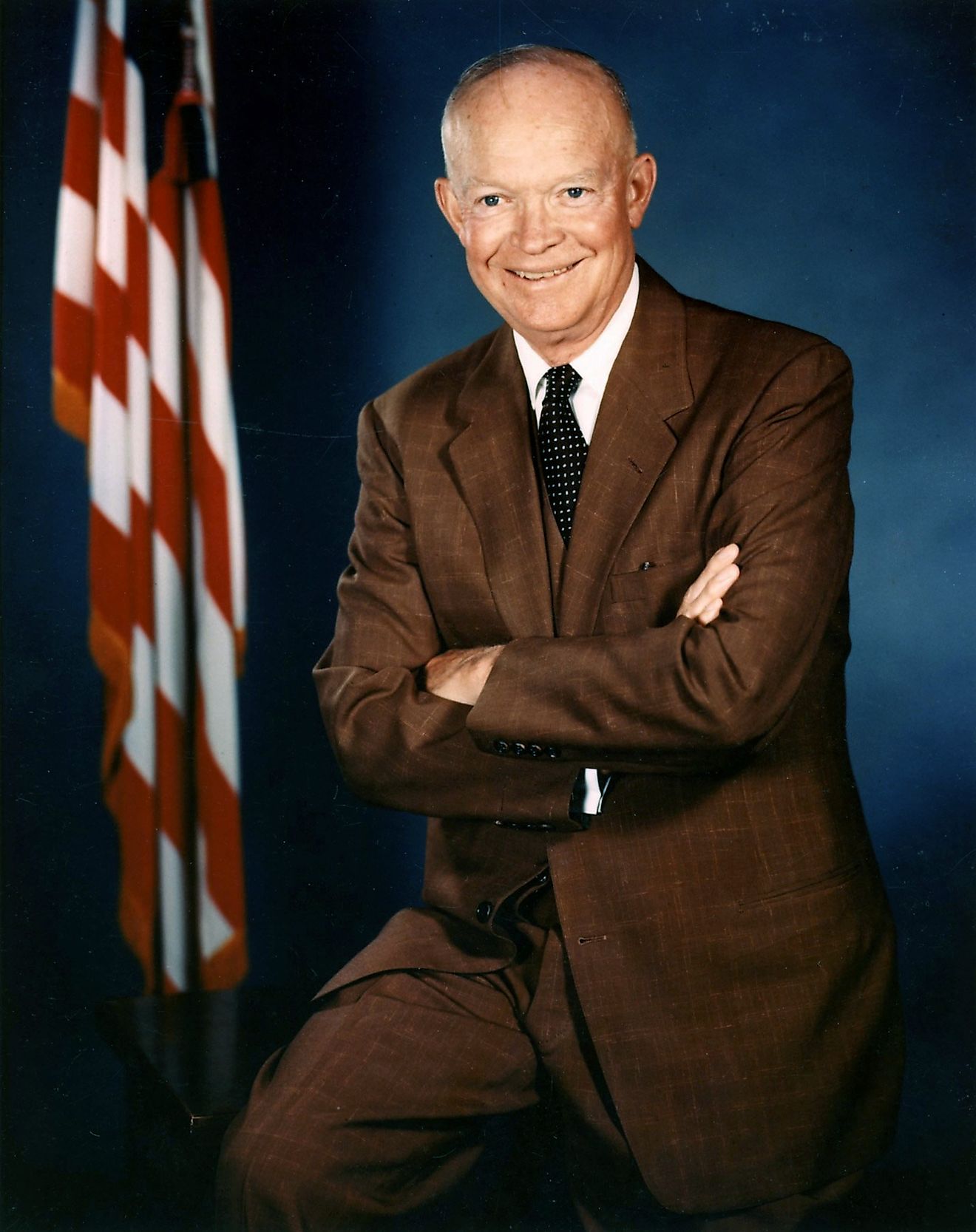
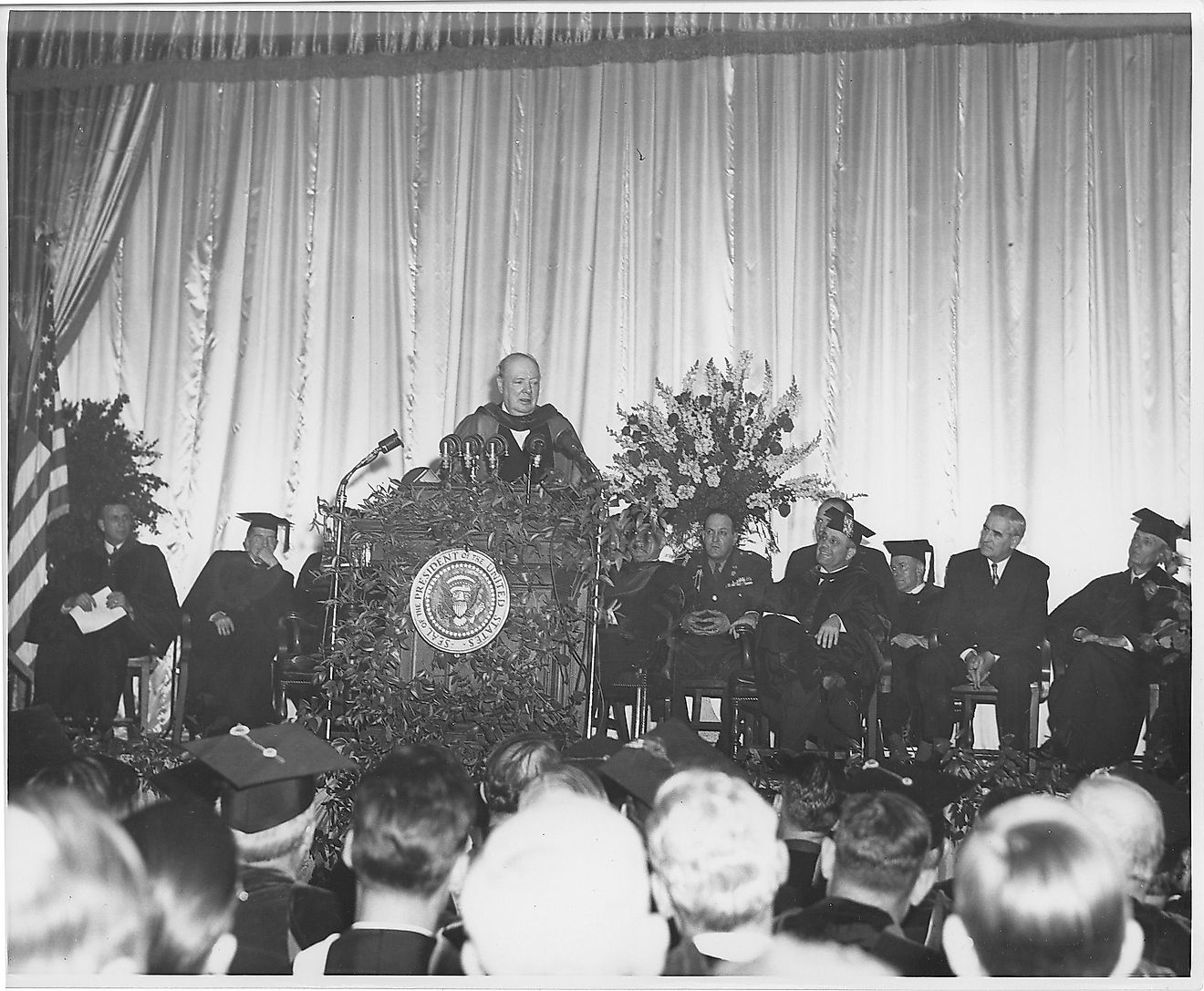
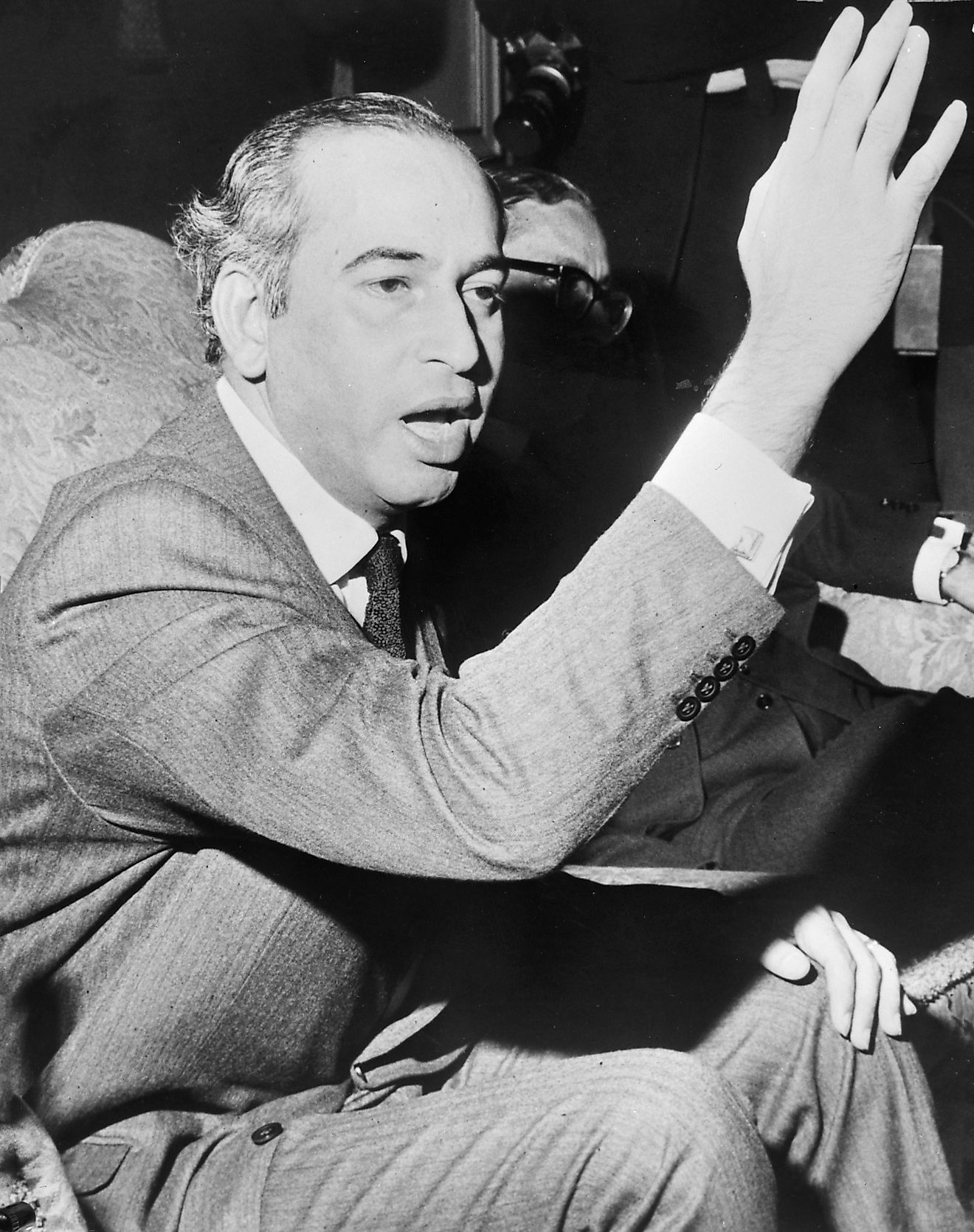
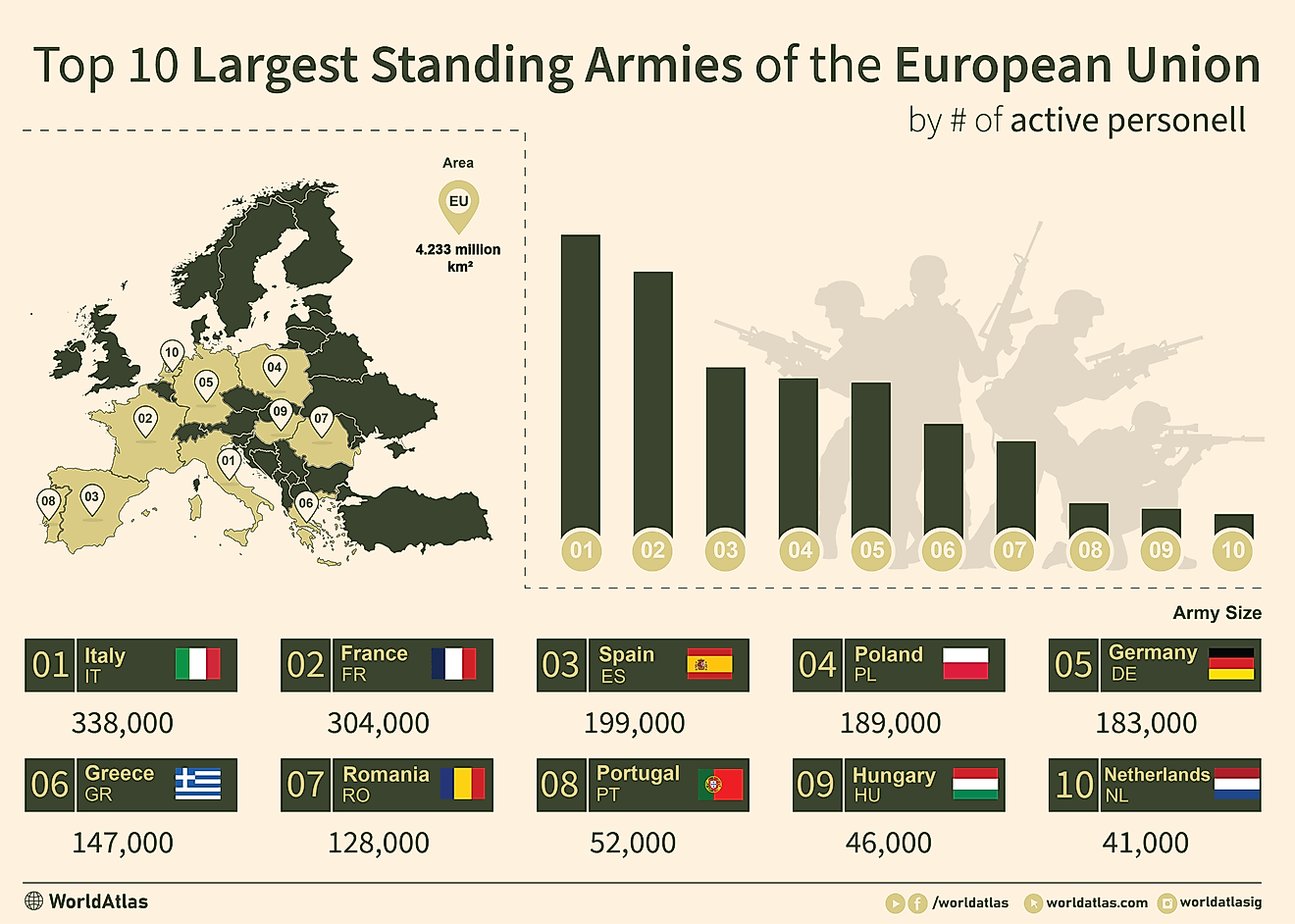
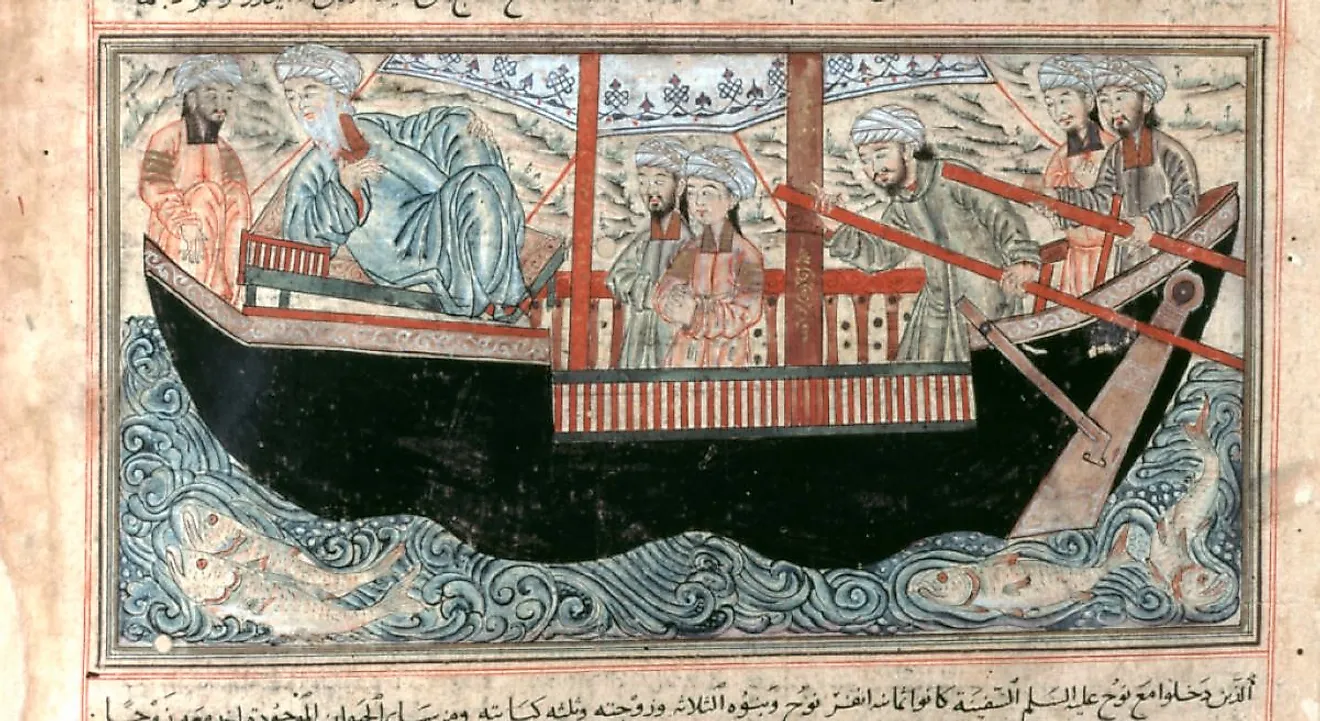
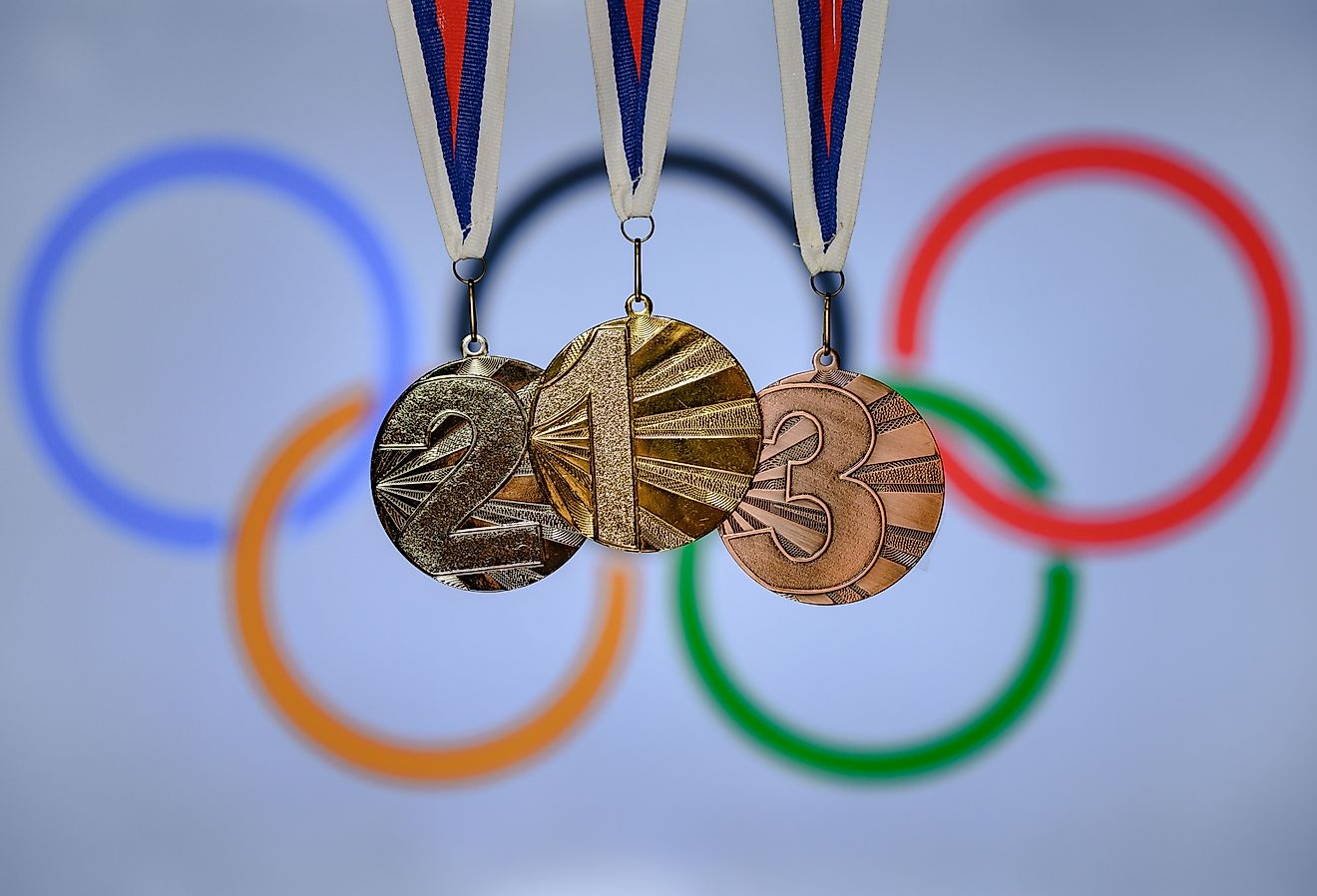

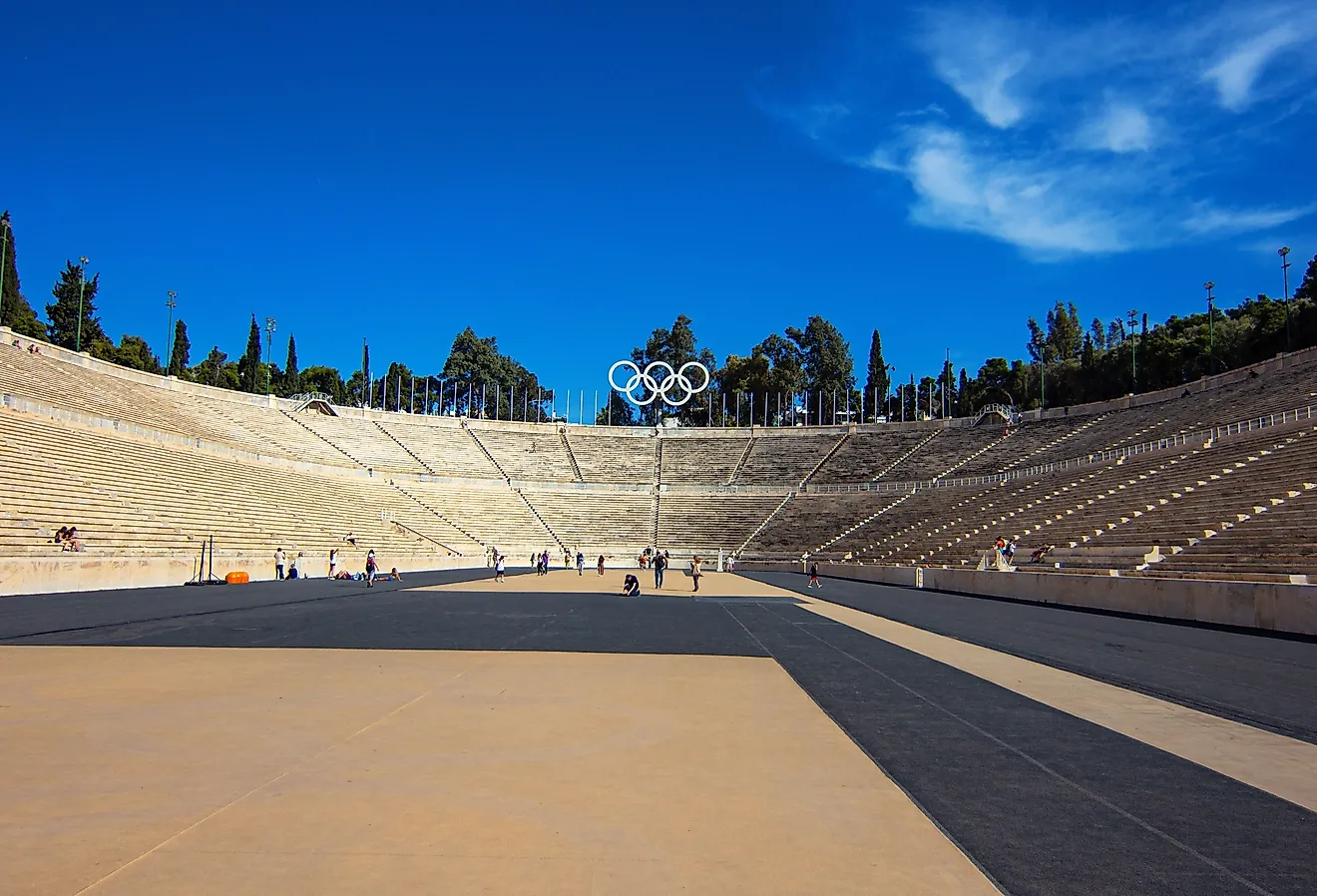



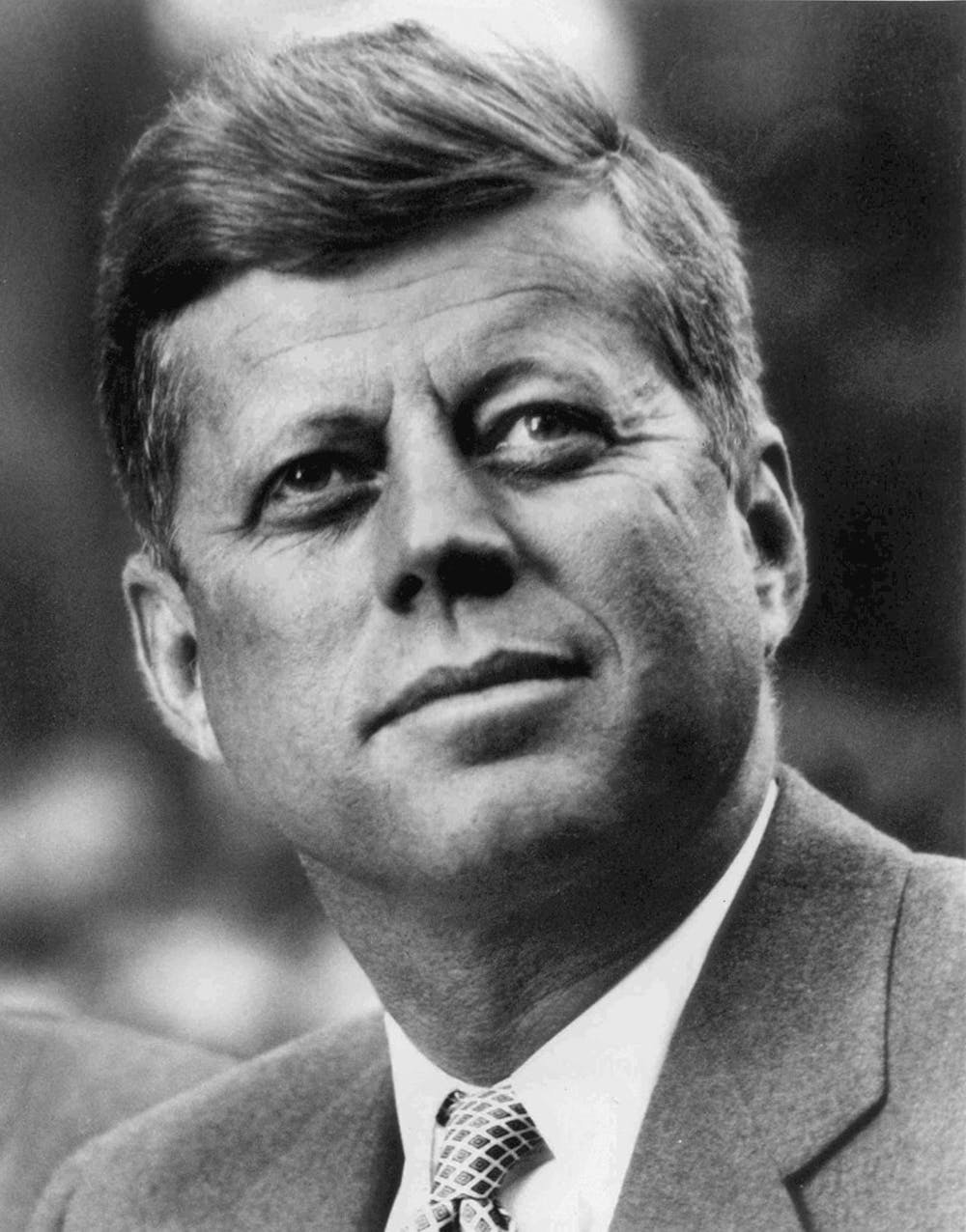
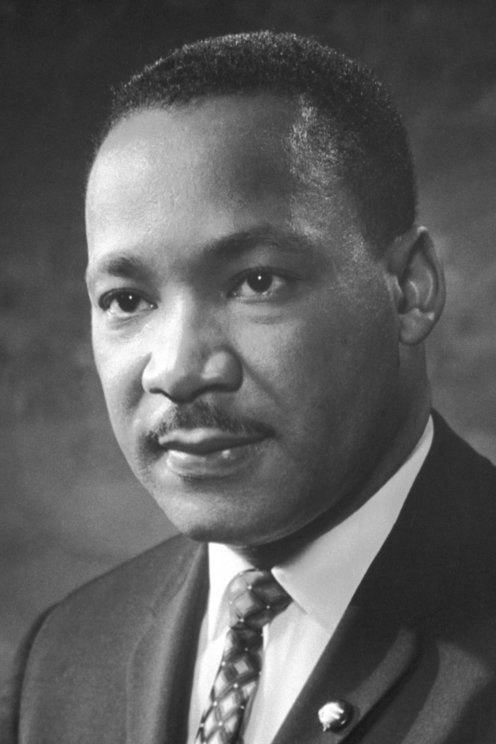
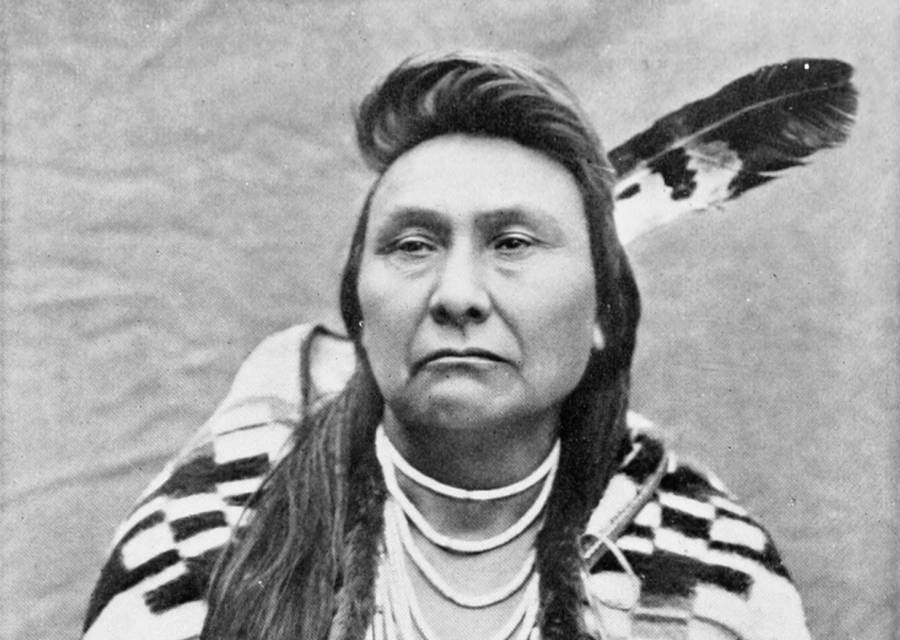
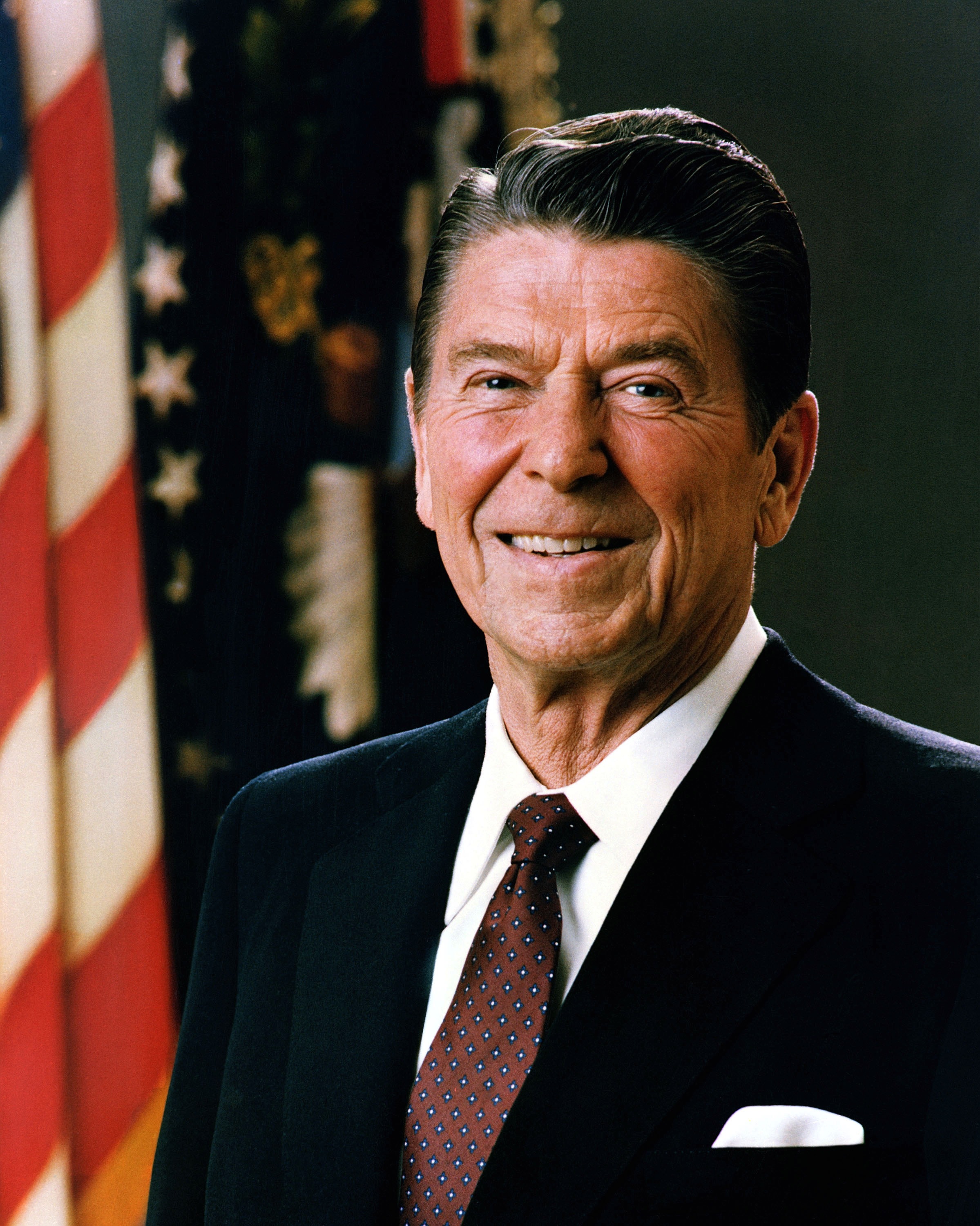
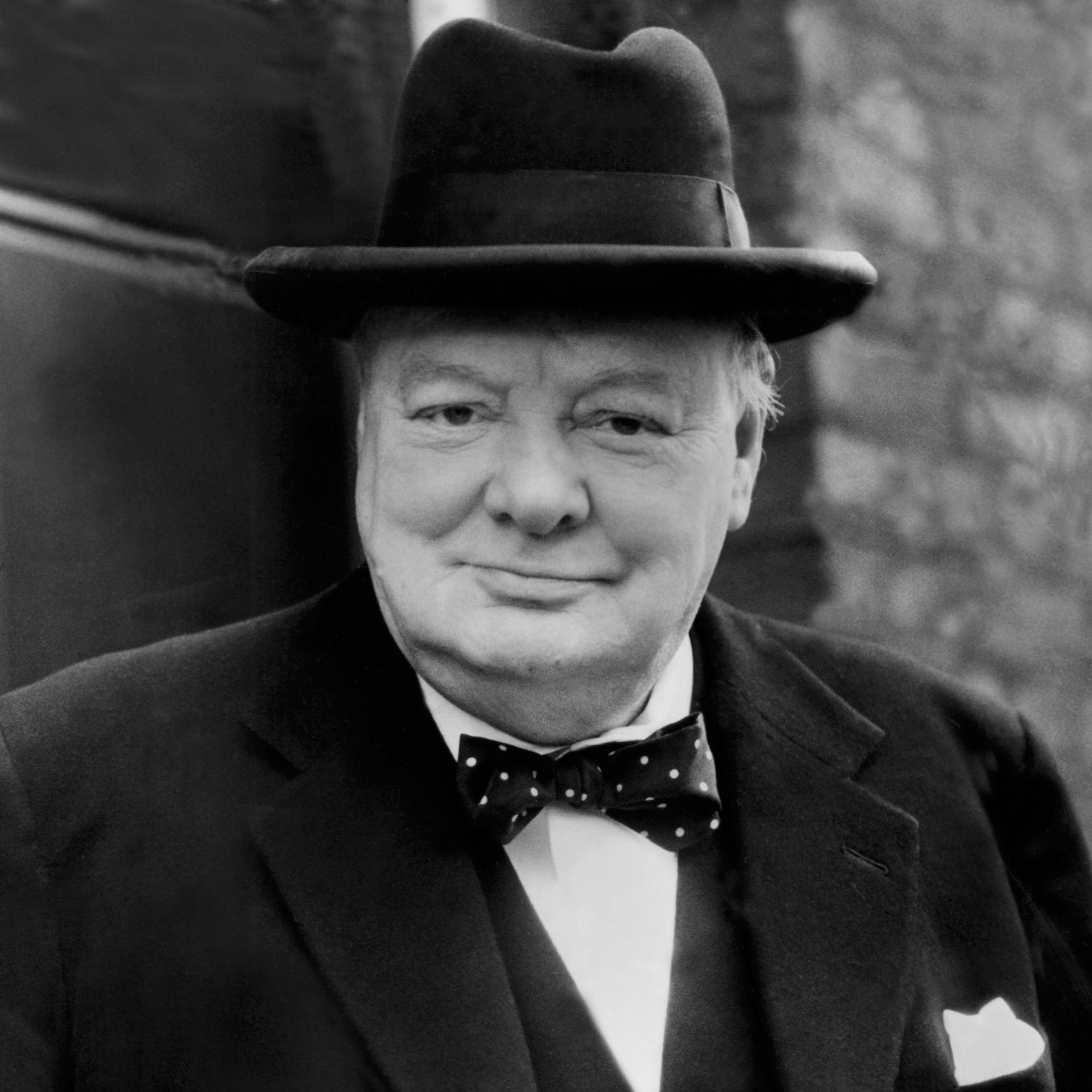
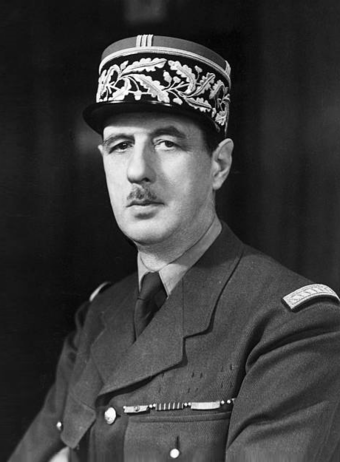
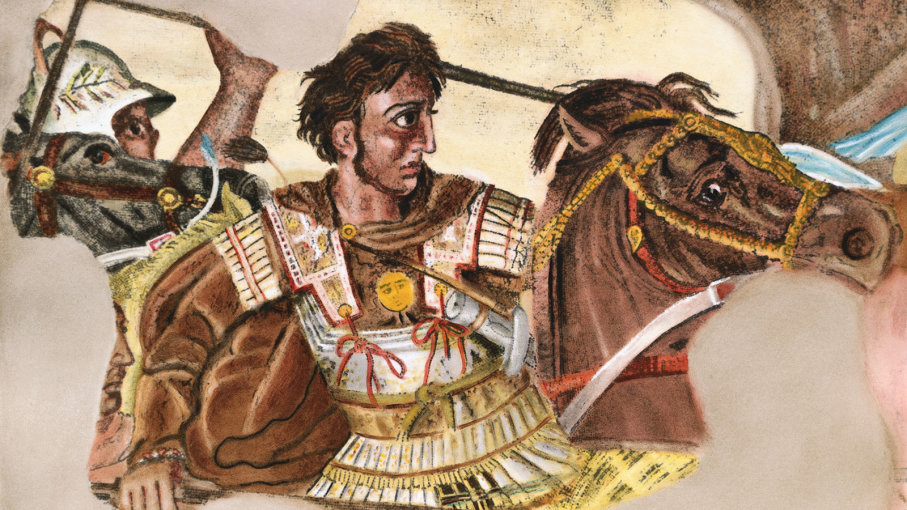

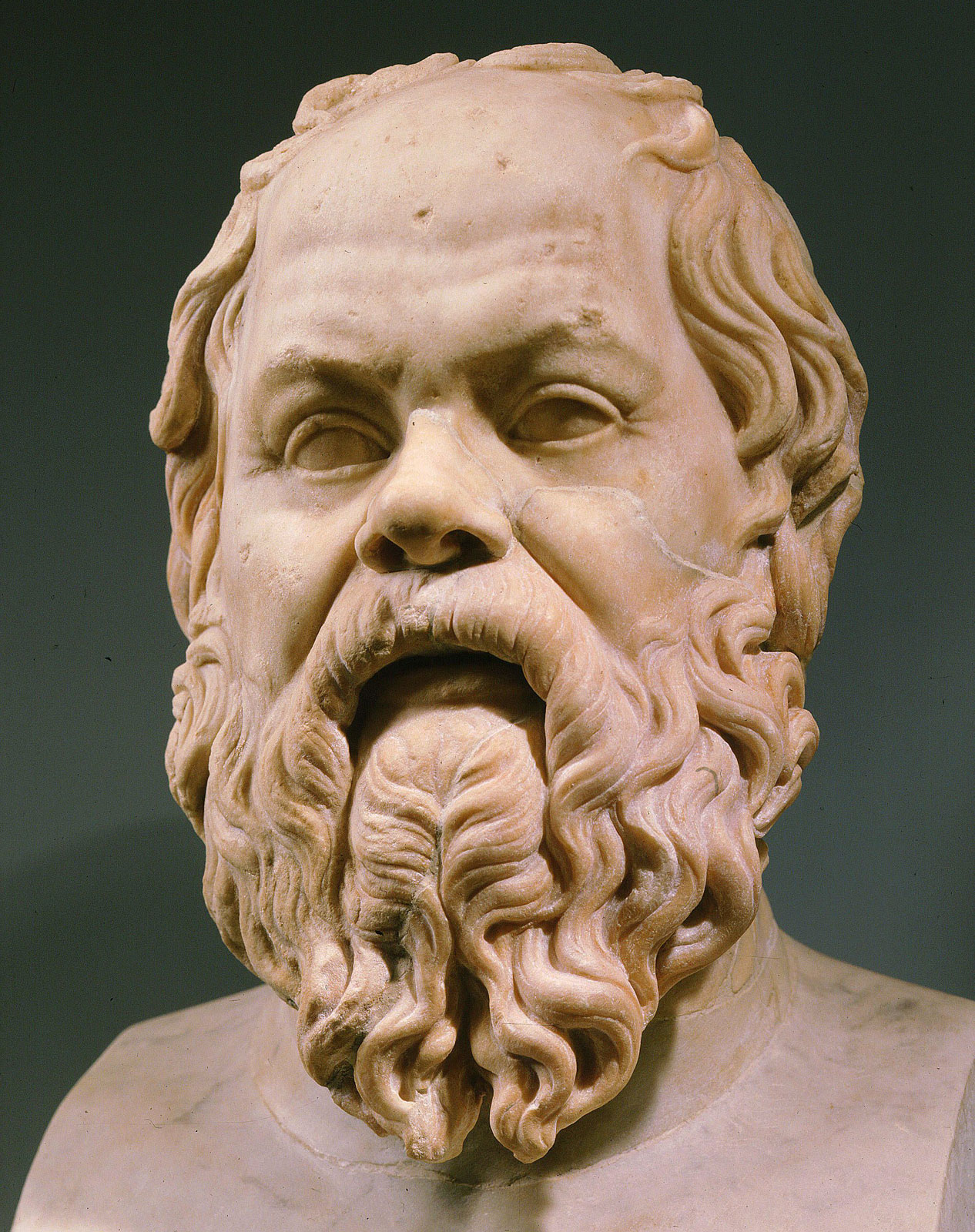
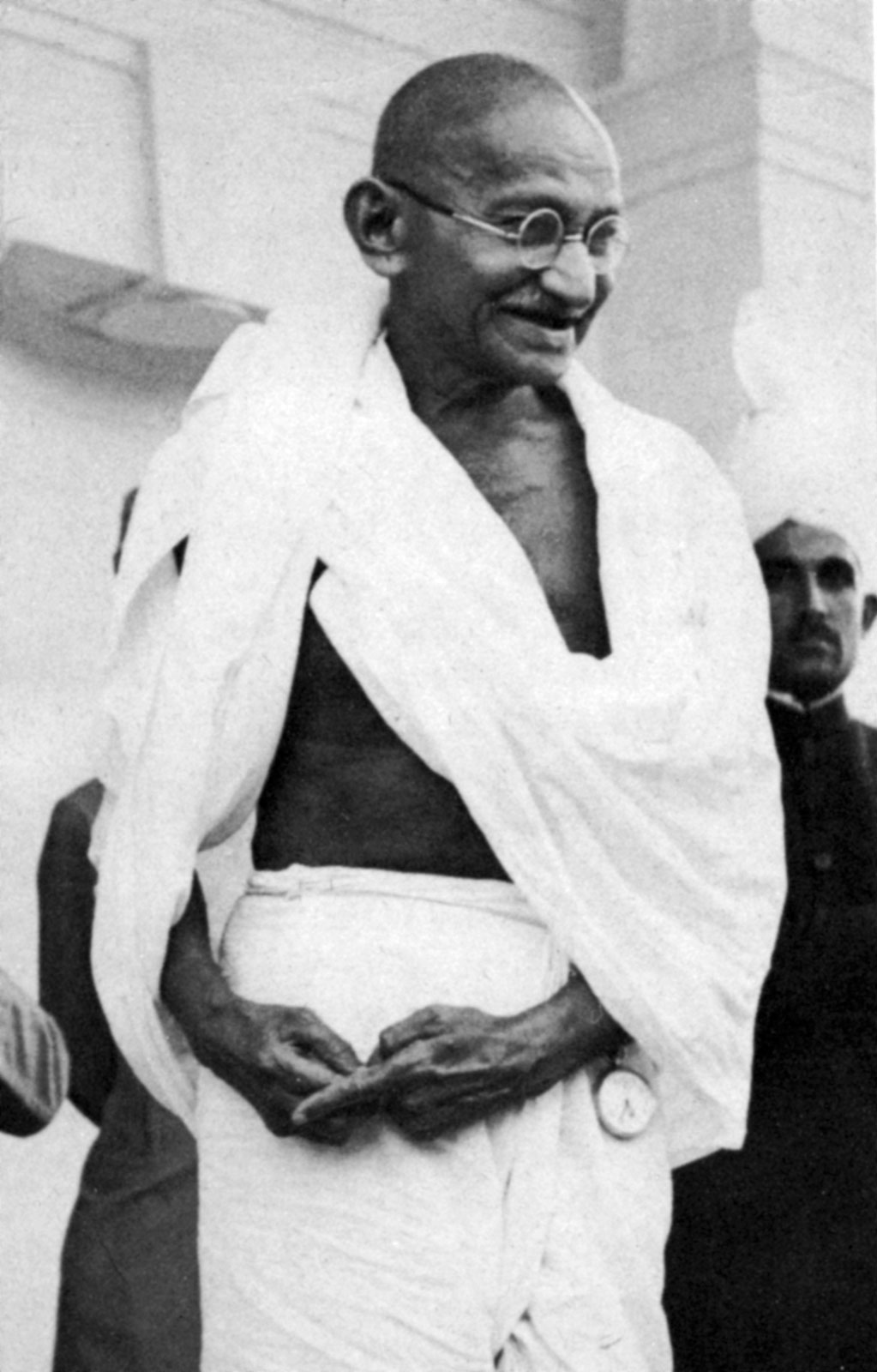
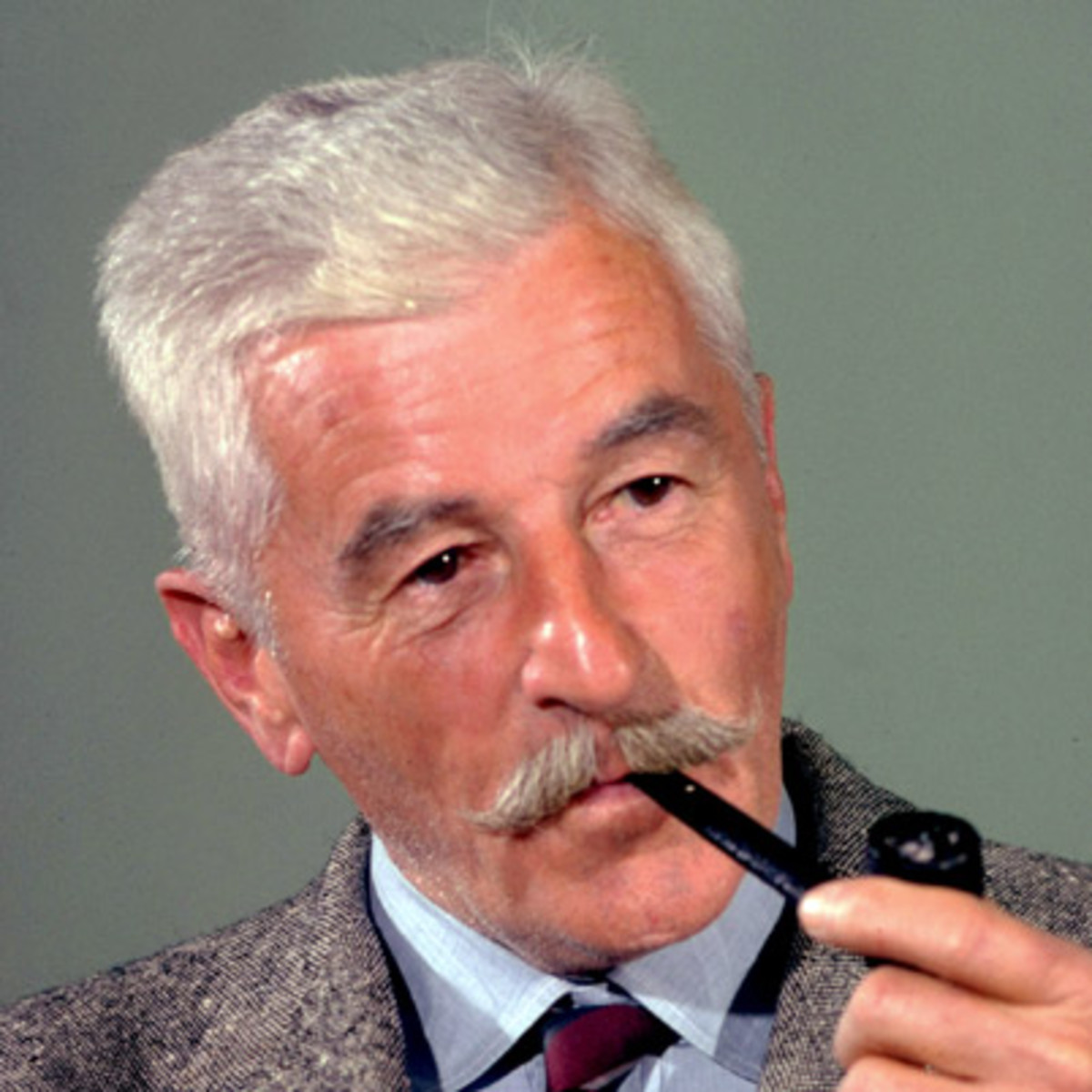
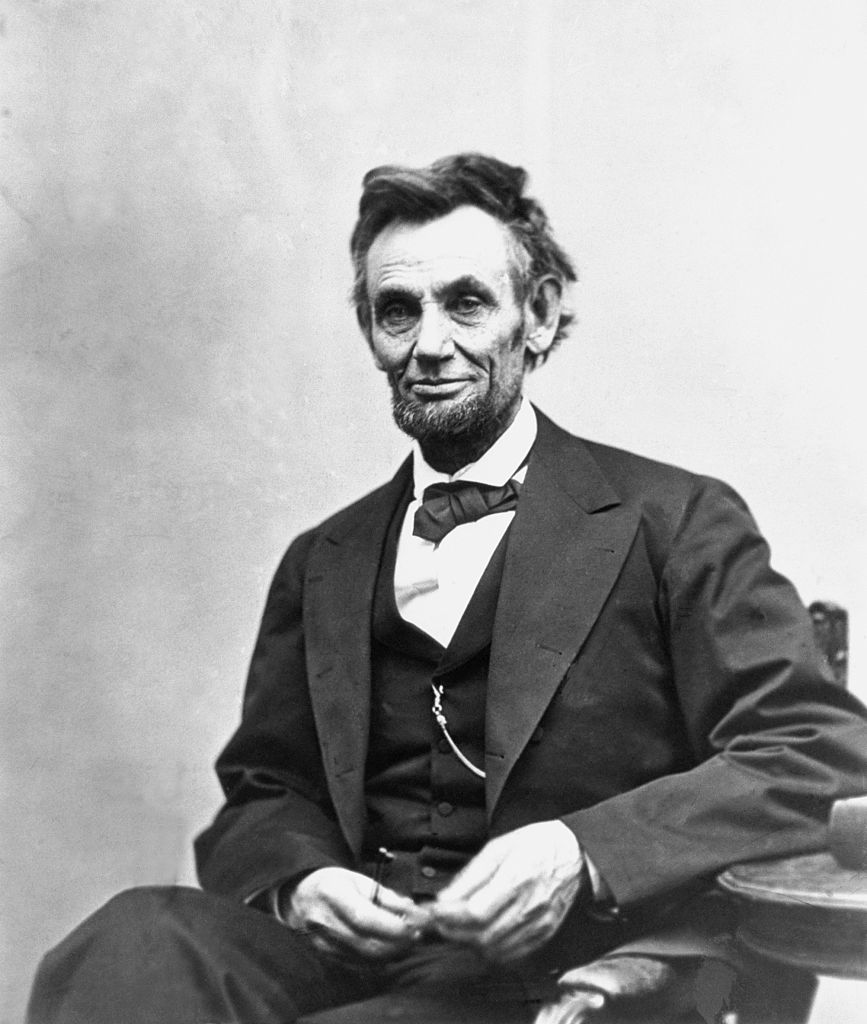
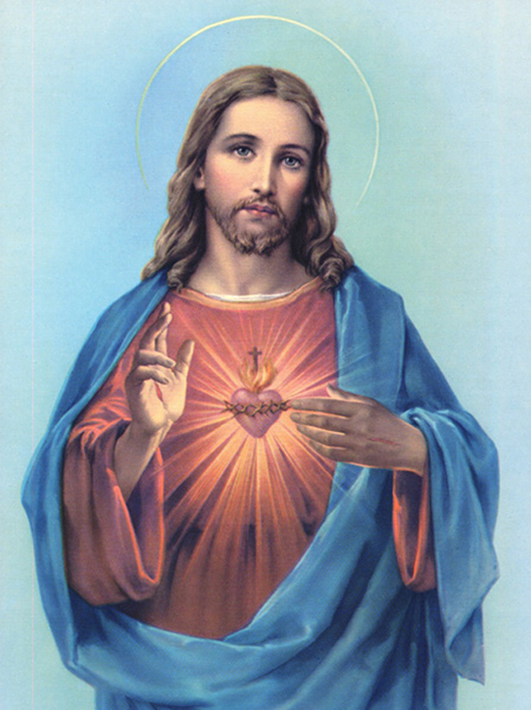
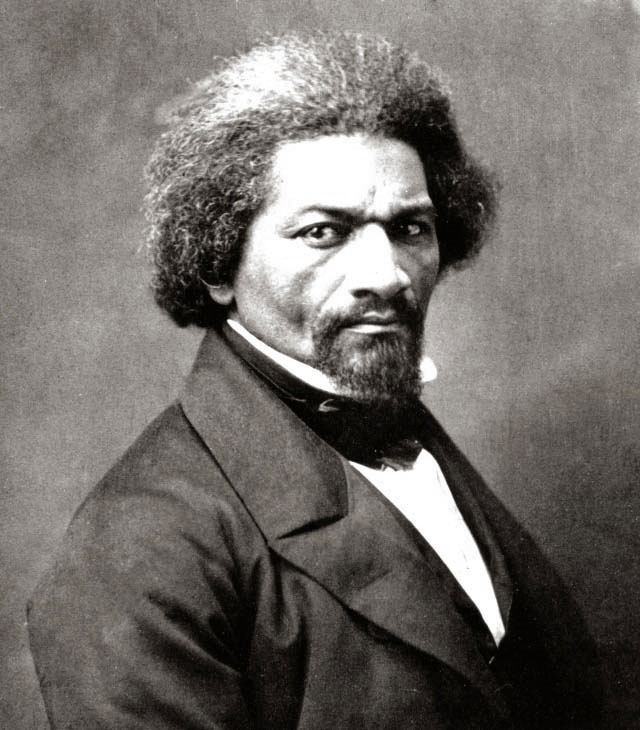
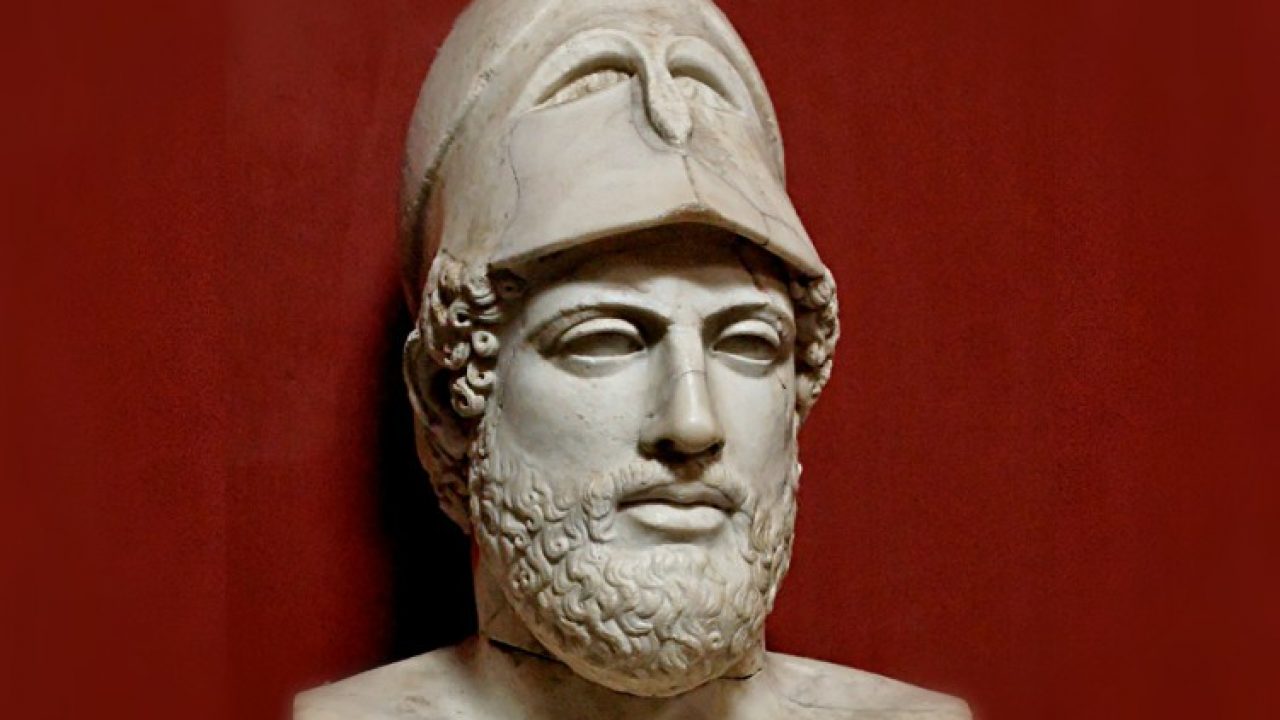





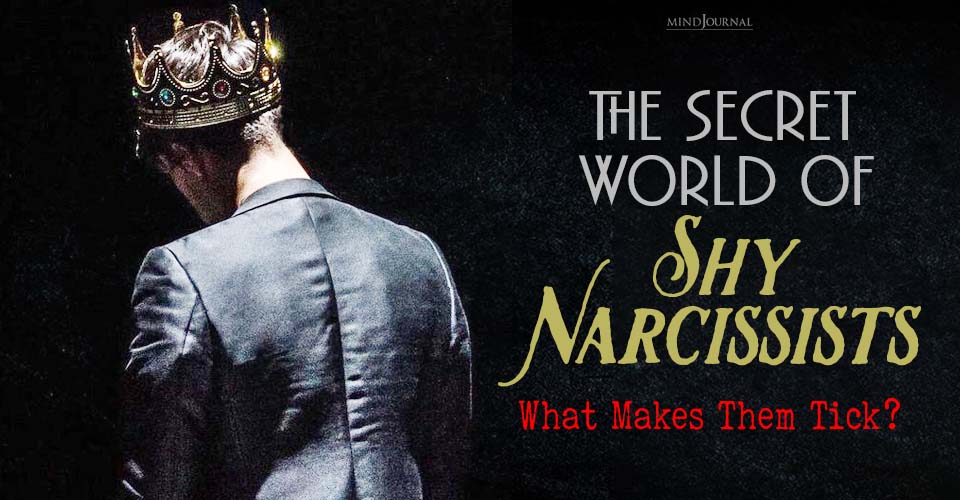
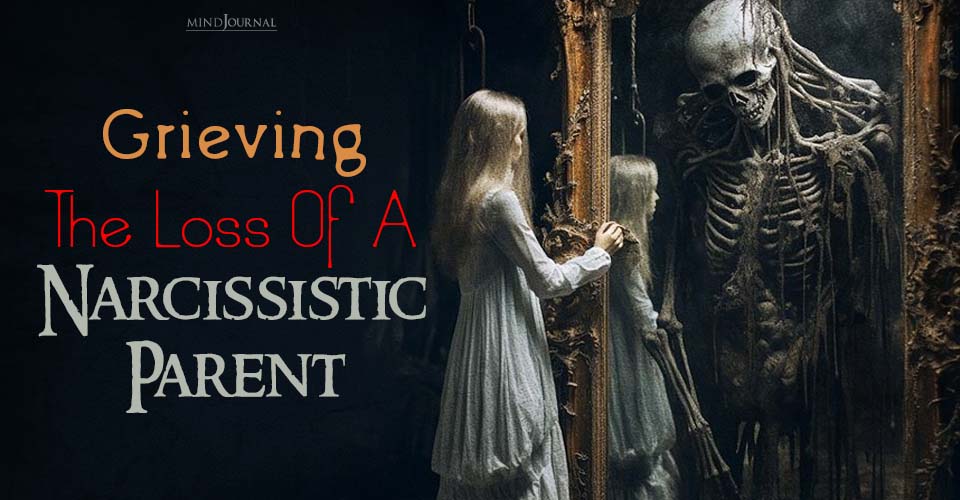

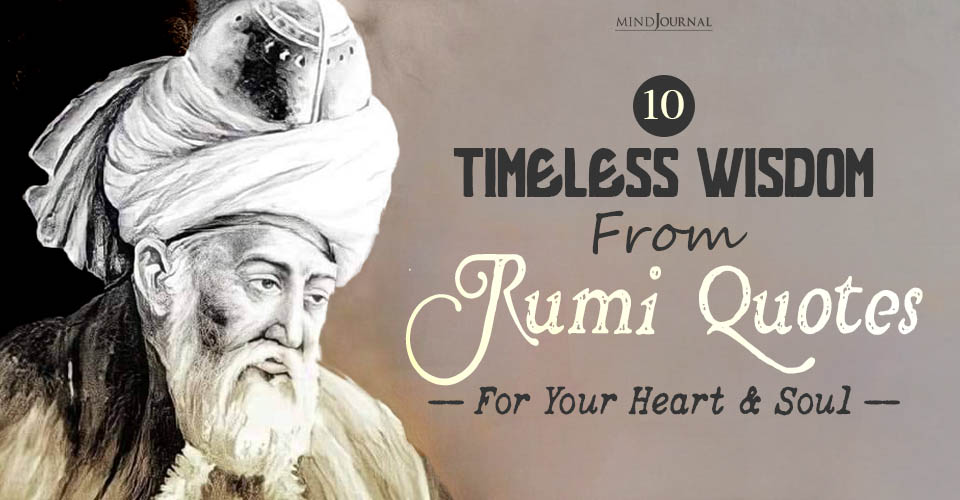






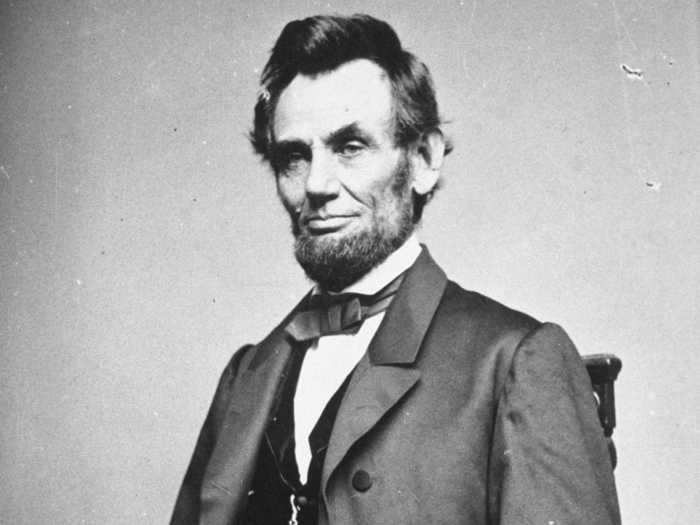
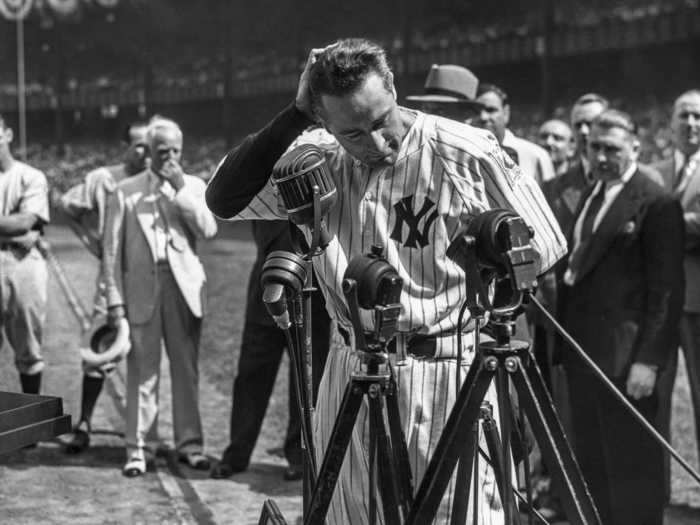
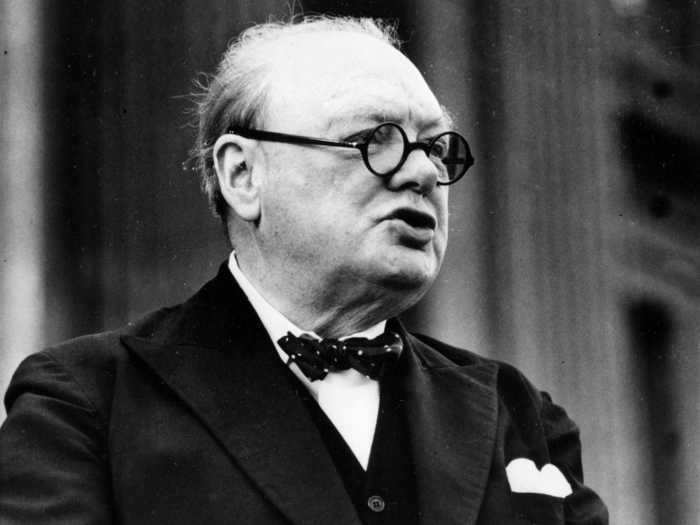
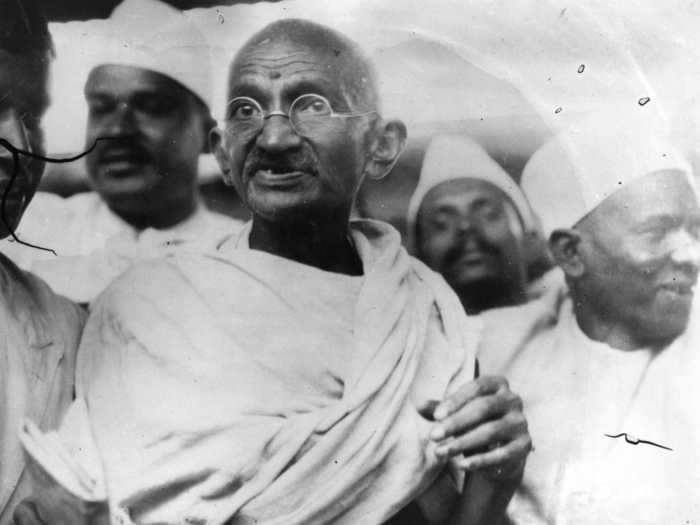
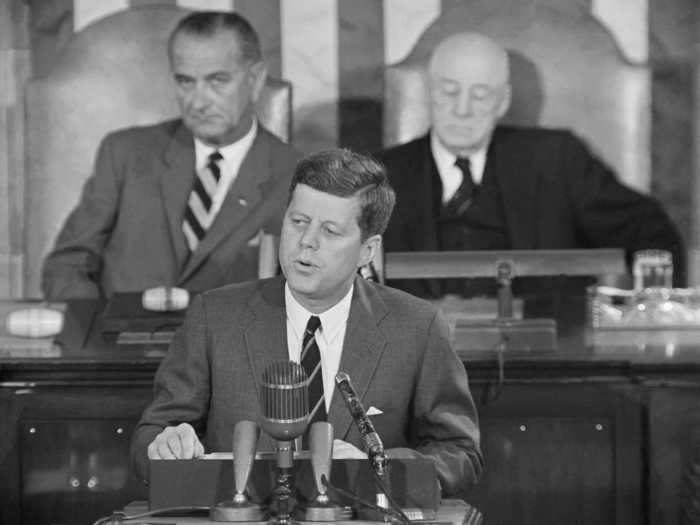
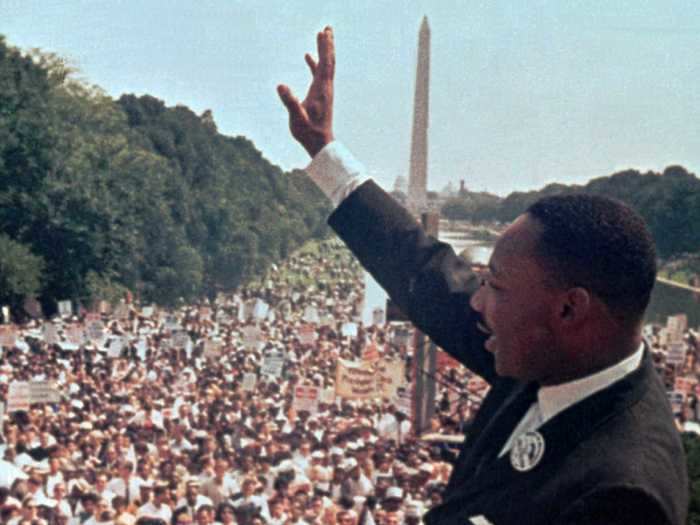
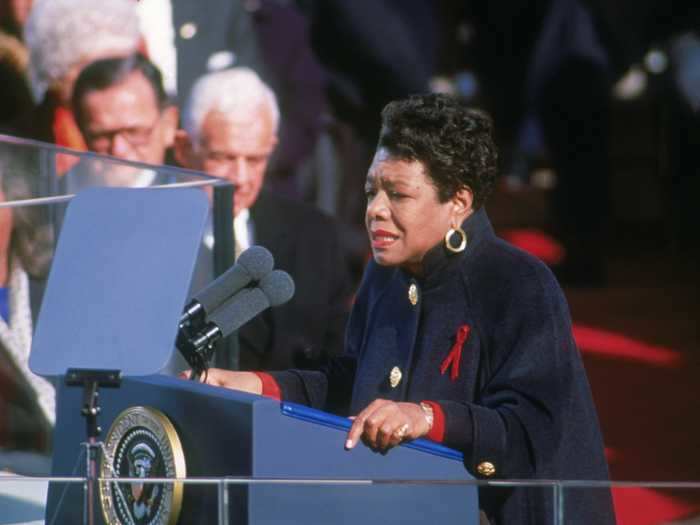
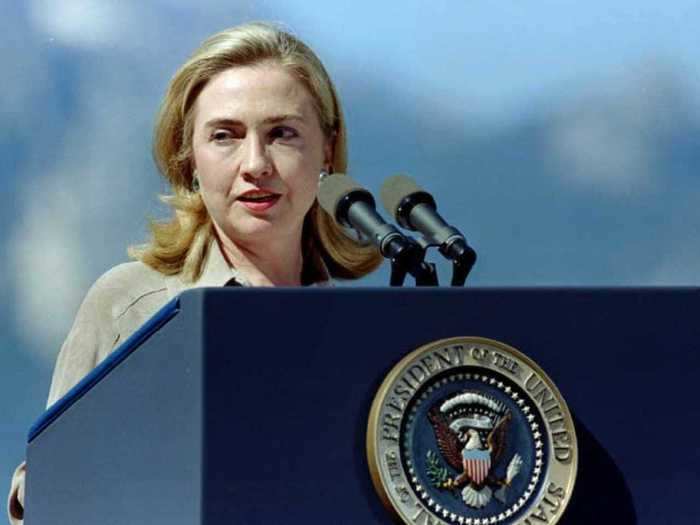
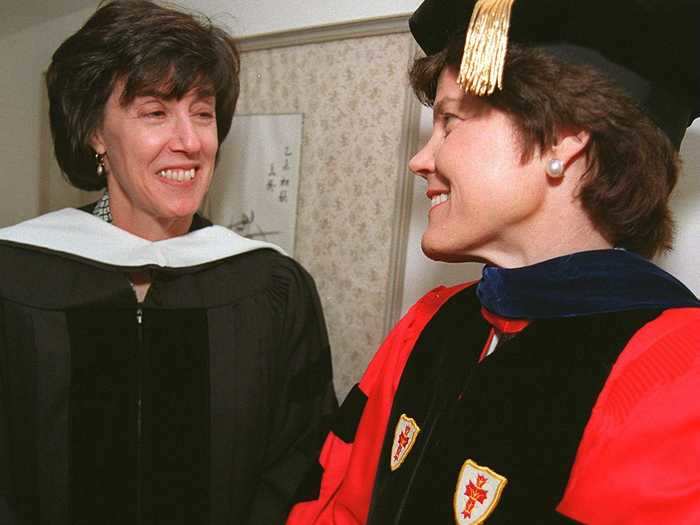
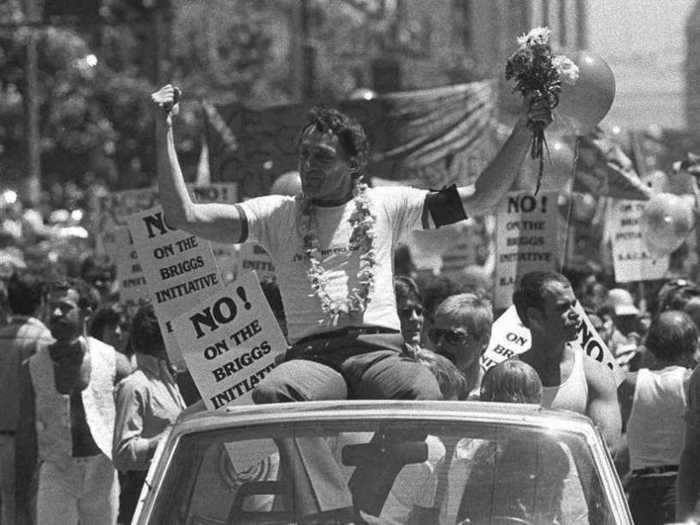
IMAGES
COMMENTS
Eventually against all odds, she led England to victory despite their underdog status in the conflict with her confident and masterful oratory. 3. Woodrow Wilson, address to Congress (April 2, 1917) "The world must be made safe for democracy. Its peace must be planted upon the tested foundations of political liberty.
These famous speeches lifted hearts in dark times, gave hope in despair, refined the characters of men, inspired brave feats, gave courage to the weary, honored the dead, and changed the course of history.. How did we compile this list? Great oratory has three components: style, substance, and impact. Style: A great speech must be masterfully constructed.
The Gettysburg Address is one of the most famous speeches in American history, yet it was extremely short - just 268 words, or less than a page of text - and Abraham Lincoln, who gave the address, wasn't even the top billing. The US President Abraham Lincoln gave this short address at the dedication of the Soldiers' National Cemetery in Gettysburg, Pennsylvania on 19 November 1863.
1963 'I Have a Dream' speech. The Reverend Martin Luther King, Jr. 's I Have a Dream speech, delivered on August 28, 1963, is one of the finest pieces of oratory in human history. It blended ...
Urban's speech thus stands as an enormously influential example of the power of rhetoric to inspire action on a mass scale. 3. Martin Luther's Speech at the Diet of Worms (1521) In 1521, German monk and reformer Martin Luther was summoned before the Diet of Worms and ordered to recant his famous 95 theses criticizing practices of the ...
President Franklin Delano Roosevelt. In 1936, FDR addresses the "Dust Bowl" problem that had caused an agricultural crisis. 9th Grade. Speech. 1310L. Study some of the most influential speeches in history and learn how they changed the world. Browse CommonLit's selection of famous speeches now.
Memorable quote: " A moment comes, which comes but rarely in history, when we step out from the old to the new, when an age ends, and when the soul of a nation, long suppressed, finds utterance ...
Dr. Martin Luther King Jr., 1963. One of the greatest speeches in American history is Martin Luther King's "I Have a Dream" speech, which was delivered on August 28, 1963 on the steps of the Lincoln Memorial in Washington, D.C. In it, he advocated for an end to racism in prose that continues to strike people's hearts to this day.
Speech Bank: Top 100 Speeches: Great New Speeches: Obama Speeches: GWB Speeches: Movie Speeches: Rhetorical Figures: Christian Rhetoric: 9/11 Speeches: News and Research: For Scholars: Rhetoric Defined: Corax v. Tisias: Plato on Rhetoric: Aristotle on Rhetoric: Comm Journals: Comm Associations: Cool Exercises: Rodman & de Ref: Speech Quiz #1 ...
Volodymyr Zelenskiy speaks to the Canadian parliament via video link. PATRICK DOYLE (REUTERS) Volodymyr Zelenskiy, the president of Ukraine, is a great communicator, and his gift for exciting people with his speeches from the heart of war, without fleeing or abandoning his people, has shaped him into a hero in the eyes of his country and audiences and governments around the world.
Memorable quote: " A moment comes, which comes but rarely in history , when we step out from the old to the new, when an age ends, and when the soul of a nation , long suppressed, finds ...
Martin Luther King, Jr. Wikimedia Commons. Speaking on the steps of the Lincoln Memorial in Washington, DC, King gave one of the most famous speeches in US history on August 28, 1963. Imploring ...
Undoubtedly one of the most famous speeches in history, when Martin Luther King took to the podium in August 1963, he cannot have known exactly how powerful his words would prove. Speaking to a crowd of 250,000 at the Lincoln Memorial, Washington D.C., King's words have been echoed by those fighting for social justice across the world.
Home U.S. Politics World Business Tech Health TIME Health Entertainment Science Newsfeed Living Sports History The TIME Vault Magazine Ideas TIME Labs Photography Videos The Goods Press Room The 100 Most Influential People Next Generation Leaders Person of the Year Top of the World
"An interesting selection of speeches… Throughout, Abbott provides a thorough historical context and argues convincingly for the relevance of the ideas expressed." Financial Times. In this thought-provoking book, Open Briefing's Executive Director, Chris Abbott, takes a close look at 21 key speeches that have shaped the world today.
The Man with the Muck-rake. Image Source. Theodore Roosevelt's "Man With the Muckrake"; address summed up the social and economic situation of the country on the historic day in 1906, when it was delivered. One of Roosevelt's most important speeches, it is of inestimable value as a guide to the man and his era.
Witness famous speeches and hear timeless words spoken by historical figures. Listen to recordings of speeches online on history.com. ... Eleanor Roosevelt Commemorates World Children's Day 0m 57s.
5. Give Me Liberty or Give Me Death Speech by Patrick Henry: March 23, 1775. In late March of 1775 the Second Virginia Convention was held at a small Episcopal church in Richmond, Va. Humble though those circumstances may have been, it was nevertheless the site of one of the most powerful call to arms in history.
During the Civil War, a time when the country was divided and its fate was insecure, Abraham Lincoln delivered speeches that managed to unite the people together. His most famous speech was delivered on November 19th, 1863. It was, of course, "The Gettysburg Address", and even though the speech was short, it had a great impact. 4. John F. Kennedy
2. Martin Luther King Jr. "I Have a Dream". August 28, 1963. Washington, D.C. Martin Luther King Jr. Martin Luther King Jr's "I have a dream" speech is one of the most talked-about and greatest speeches of this lifetime. 100 years after slavery was abolished, black people were still discriminated against.
1599: St Crispin's Day Speech by William Shakespeare as part of his history play Henry V has been famously portrayed by Laurence Olivier to raise British spirits during the Second World War, and by Kenneth Branagh in the 1989 film Henry V, and it made famous the phrase "band of brothers".
Sometimes, history turns on the words of great people. For this list, we'll be looking at pivotal speeches by famous orators. Our countdown includes famous s...
Hope that all will be all right. Without hope, not only are the gays, but the blacks, the seniors, the handicapped, the 'us-es.'. The 'us-es' will give up." Martin Luther King Jr.'s speeches can ...
In July 1988, George H.W. Bush was famous but unknown—and down in the polls by 17 points.